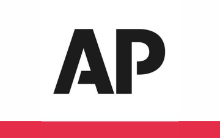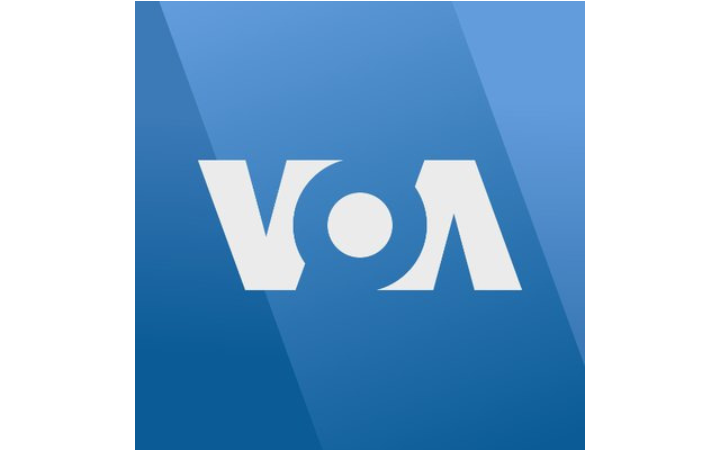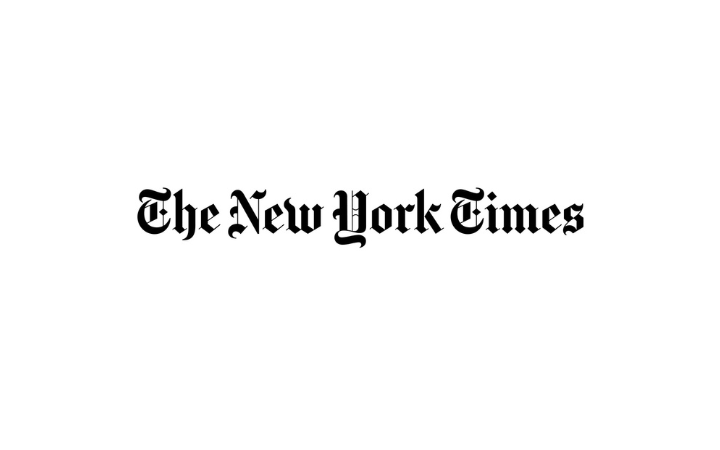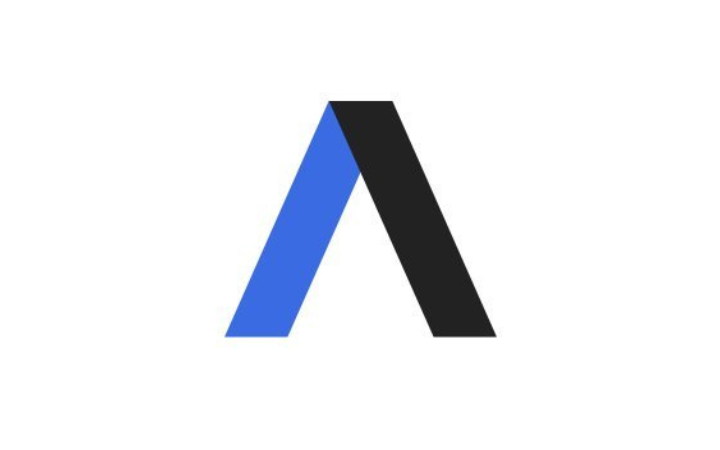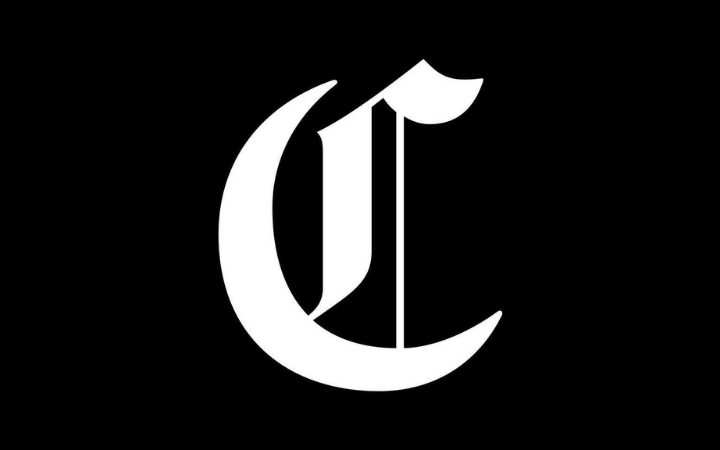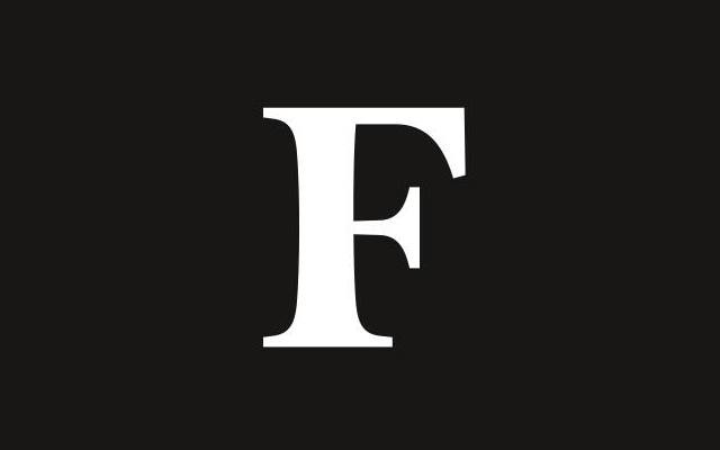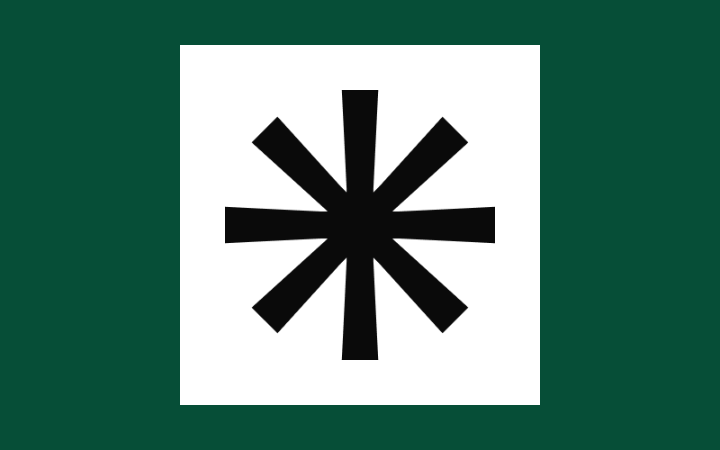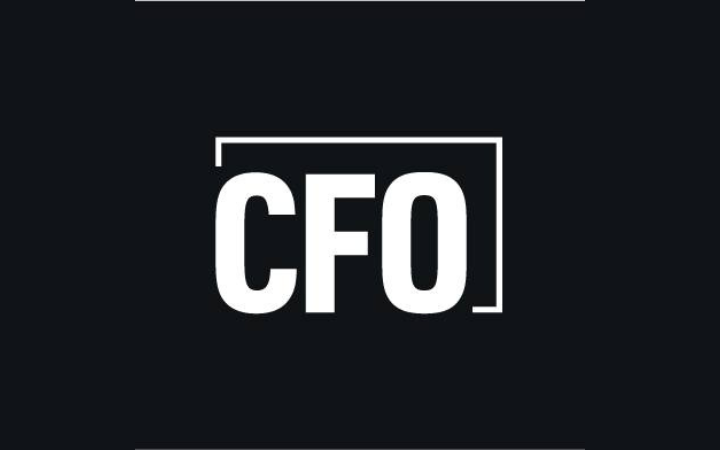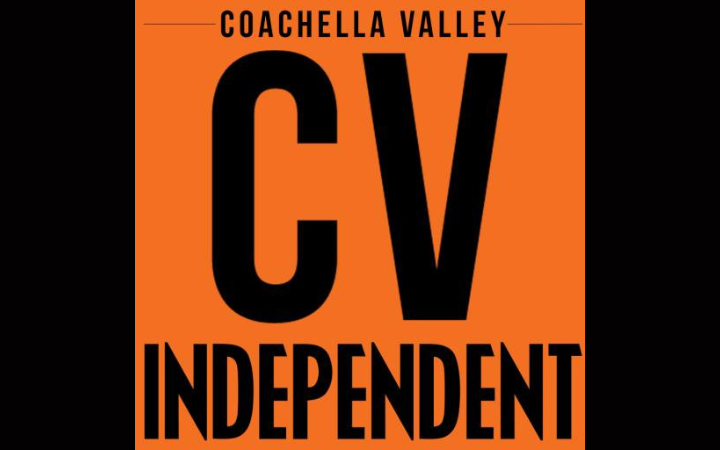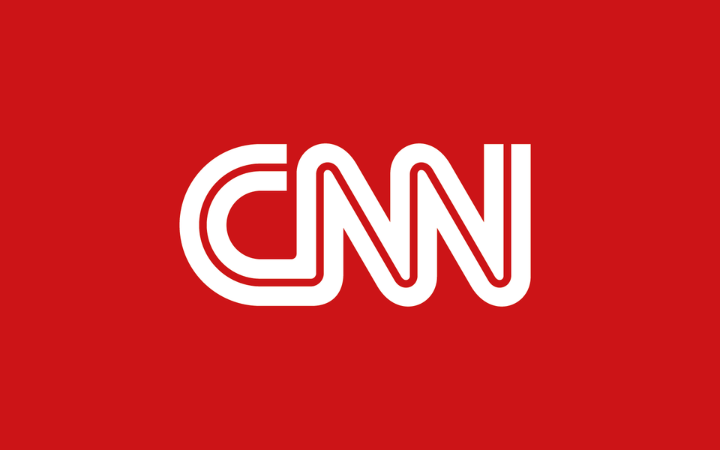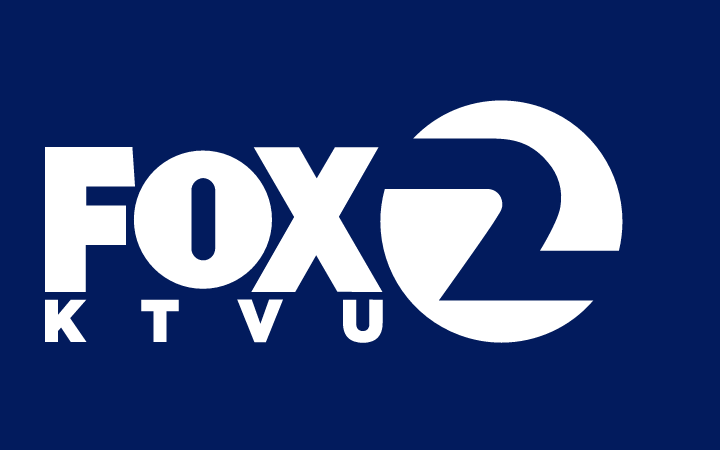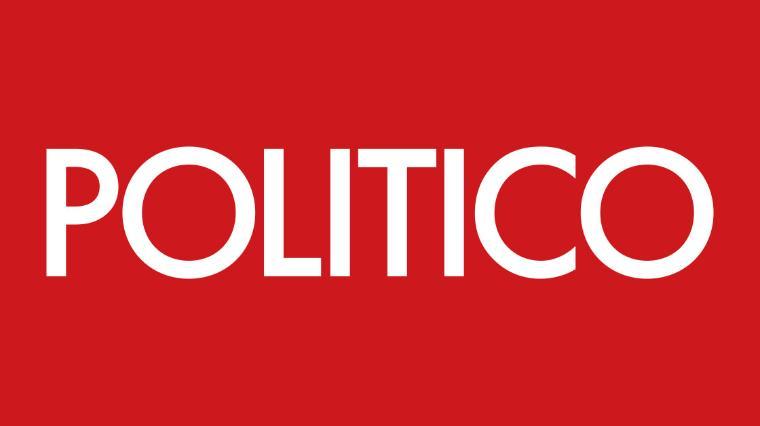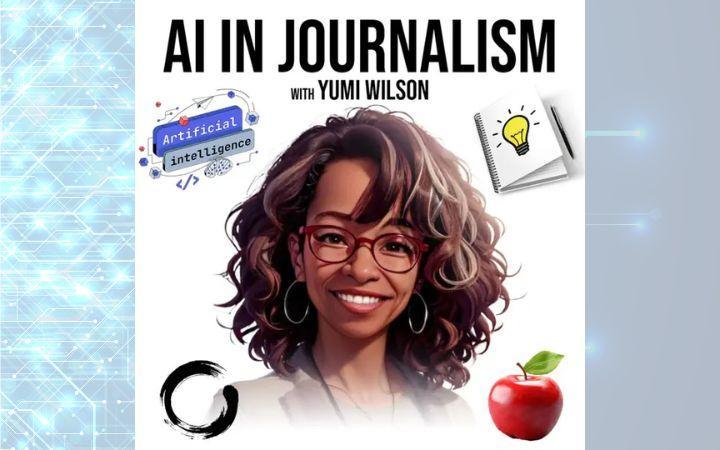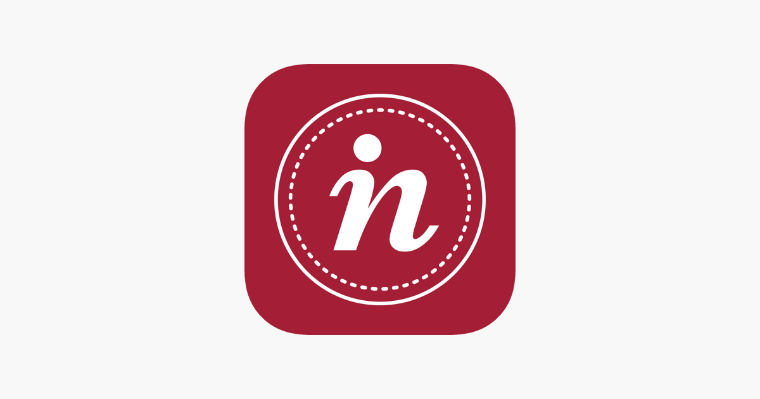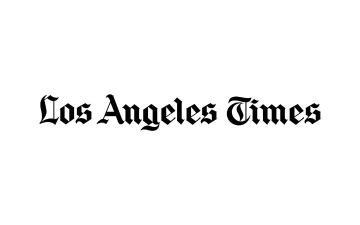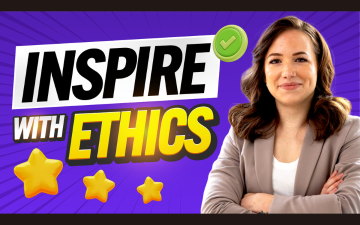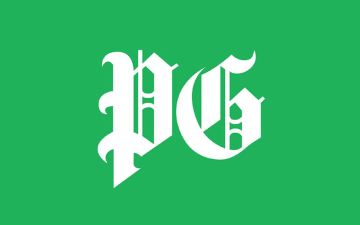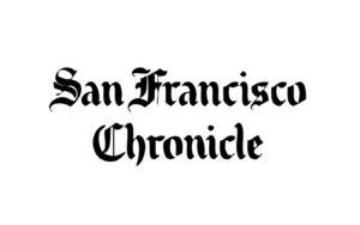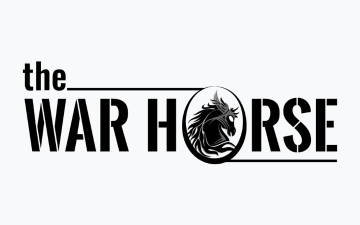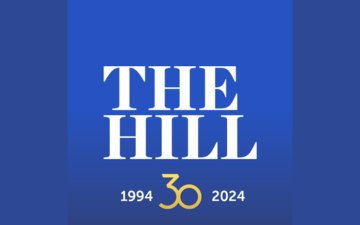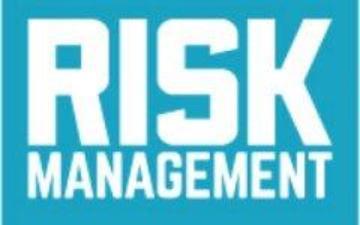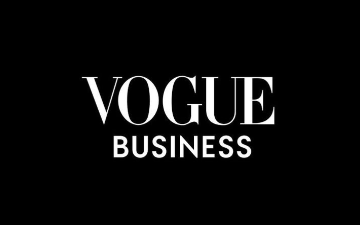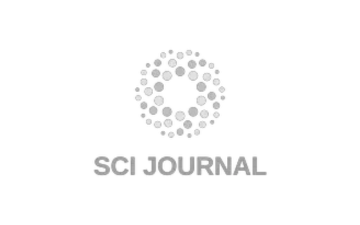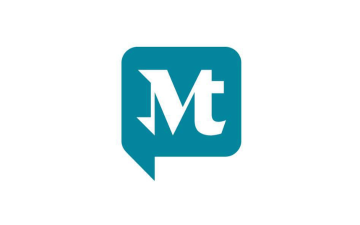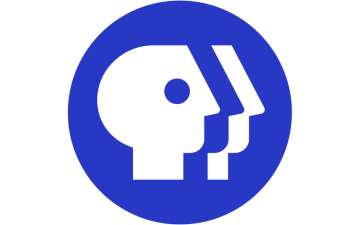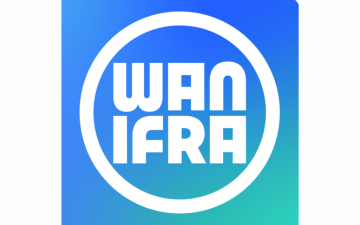-
Facebook’s biggest threat is coming from this obvious place
Ann Skeet, Director of Leadership Ethics at Markkula Center for Applied Ethics at Santa Clara University expresses her opinion about the conflict of interest within social media.
-
Can the Catholic Church help young people figure out how to use social media?
Brian Green, Director of Technology Ethics at Markkula Center for applied ethics is quoted in an article in America Magazine.
-
Is It Moral to Imbue Machines with Consciousness?
Irina Raicu, Director of Internet Ethics, comments.
-
New Windsor’s Revision of Ethics Code Has Critics
Hana Callaghan, director of Government Ethics, is quoted.
-
Our Bots, Ourselves
Irina Raicu, director of Internet Ethics, is quoted in The Ringer.
-
The Ethics Conversations Big Tech Needs to Have
Irina Raicu, director of Internet Ethics, is quoted in The Atlantic.
-
How Can We Regulate Our Savage Market for Instant News?
Irina Raicu, director of Internet Ethics, comments.
-
'Amoris Laetitia' Theology Seminars
David DeCosse hosted discussion at SCU about Pope Francis' apostolic exhortation on family life.
-
Autism Treatment Firm Lands $8-Million State Grant, Spends Big on Governor's Race
Hana Callaghan, director of Government ethics, comments.
-
The Last Final Four?
Ann Skeet, Senior Director of Leadership Ethics, is quoted.
-
Tech Giants Wrestle with Conspiracy Theories about Florida School Shooting
Irina Raicu comments.
-
Weighing Privacy vs. Disclosure in a New Era of Accountability
Sally Lehrman, Senior Director of Journalism Ethics, is quoted.
-
On the Front Line of the Battle Against Fake News
Sally Lehrman, Senior Director of Journalism Ethics, is quoted.

"If the committee votes to repeal the code and not replace it, or votes to leave it as is, 'our task is complete,' Ms. Callaghan says. Otherwise, the committee will discuss changes to the code so she can prepare a draft for a third meeting, she says. A third meeting would include more debate and recommendations. If the group reaches consensus, a completed draft code would go to the council. If not, the committee would vote on 'general recommendations (to the council) for a new ethics policy'."
Excerpted from an article in The Almanac.

“No single person creates culture, but a founder or CEO can certainly influence culture,” says Skeet. These top executives can help mold a positive and purposeful ethical culture. “If leadership in a company is committed to designing systems that promote ethical behavior, that’s a positive sign, as is any additional bandwidth they might have to contribute to industry-wide standards.”
Excerpted from an article in CFA Institute Magazine.

"What can we expect of tech executives under increased heat to acknowledge harms their products inflict and correct for them? What moral obligations do these companies, and others like them, have to identify, publicize and address the risks using their products pose to consumers?"
Excerpted from an article in MarketWatch. Photo credit: (AP Photo/Rogelio V. Solis, File)
-
Should You Be Allowed to Create Your Own Clone?
Margaret McLean, director of Bioethics, comments.

"The team at the Markkula Center for Applied Ethics put together a series of questions for ethical decision-making in business.
"This framework is designed to help you evaluate potential consequences of your decisions from every angle.
"The questions support you in the following core ethical decision-making steps:
- Recognize the issue
- Get the facts
- Evaluate alternative actions
- Make and test a decision
- Action and reflection (in order to help assist you in further ethical decision-making in business)
"And, if you are on the road and need some business ethics support, don’t worry there is an app for that, too!"
Excerpted from an article on Spin Sucks.
-
Are We Trashing the Final Frontier?
Margaret McLean, director of Bioethics, comments.
-
The Media Today
The Trust Project is mentioned in a Columbia Journalism Review article.

“They appear to have tricked somebody to say that [Twitter] would comply with a legal process,” said Irina Raicu, director of the Internet Ethics Program at Santa Clara University’s Markkula Center for Applied Ethics, Thursday. She said the video doesn’t prove that Twitter as a whole is biased, only that individual employees have “their own political views.”
Excerpted from an article on Silicon Beat. (AP Photo/Jeff Chiu)

“Public officials are basically public fiduciaries. We put them in a position of trust to act on our behalf and always in our best interest,” Hana Callahan, director of Government Ethics at the Markkula Center for Applied Ethics, said in an interview. “As public fiduciaries, they have a duty of loyalty, which means they have to put the public’s interest before their own personal interest.”
Excerpted from a ThinkProgress article about the appointment of Kevin McIntyre as chairman of the Federal Energy Regulatory Commission. (AP Photo/Andrew Harnik)

"It kind of lends itself to a moral myopia," Brian Green says of the prospect of significantly extending the human lifespan. “Humans work better if they have a goal beyond their own survival.”
“Hopefully these things will work, and they’ll help us live a little bit longer,” Green says of the scientific research being done at the Mayo Clinic and the Scripps Research Institute. “But the idea of radical life extension where we’re going to live indefinitely longer, I think that is very unrealistic.”
Excerpted from an article on Leapsmag.

"The belief in American exceptionalism has been grounded not just in the strength of our political institutions and the bounty of our natural resources but in the strength of our national character, our commitment to a distinctive set of ethical values. How have these values and our national character fared in 2017? I believe there are ways in which our character was strengthened in 2017, but many more in which it was weakened."
Excerpted from an article in the Mercury News by Kirk O. Hanson.

Kirk Hanson with the Markkula Center for Applied Ethics says appointments like Rood's are controversial because policy and purchasing are linked at the Pentagon. "All matters could perhaps influence the sale of Lockheed Martin equipment, and therefore it would be very difficult to do his job," said Hanson.
Excerpted from an audio recording of Marketplace. (AP Photo/Sang Tan)

"There are more subtle and complex systems that contribute to harassment, and typically their flaw is in the imbalance of power. A professor seeking tenure, an attorney hoping to make partner — all professionals that participate in promotion practices tied to a timetable are, in my opinion, at risk right out of the gate. Leaders in all professions should be asking themselves what they might be willing to let go of in some of these time-honored professional practices if it creates more fairness and safety in the workplace."
Excerpted from an article by Ann Skeet in MarketWatch.

“Our species is the only creative species,” writes Steinbeck, “and it has only one creative instrument, the individual mind and spirit of a man.” He goes on to knock down the notion of collaborative creativity, and you can certainly disagree with that, but keep in mind that in our time the trajectory seems to be toward handing over creativity, too, to algorithms, leaving aside the human mind (whether individual or collective).
Excerpted from an article by Irina Raicu in recode.

"Some people also question whether trying to treat ageing makes sense from a humanitarian standpoint. Brian Patrick Green, an ethicist at Santa Clara University in California, says that although there’s nothing intrinsically wrong with extending human life, it does carry some risks. He worries, for instance, that people in rich countries will benefit while those in developing nations continue to die young. People living longer could also consume more resources, leading to social and environmental catastrophes, he says."
Excerpted from an article in Nature.

“The general populace is certainly becoming more aware of how their online interactions can be monitored,” said Irina Raicu, Internet Ethics program director at the Markkula Center for Applied Ethics at Santa Clara University. “This has forced people to begin using encrypted applications on a broader scale.”
“As young people, you know about these applications and how to implement them,” she said. “People in older generations are less inclined and often less knowledgeable about how to use encryption.”
Excerpted from an article in Spartan News Room. (AP Photo/Karly Domb Sadof, File)
"The Trust Project, supported by Craig Newmark of Craigslist, Google and Knight Foundation at Santa Clara University, is working with newsrooms and technology companies to help the public and algorithms differentiate between news content and fakery."
Excerpted from a speech (published on Medium) by Alberto Ibarguen, President and CEO of the John S. and James L. Knight Foundation.

"A wave of sexual harassment claims in the entertainment industry over recent months could lead to more such settlements, according to Kirk O. Hanson, executive director of the Markkula Center for Applied Ethics at Santa Clara University.
“'We’ll see a lot more derivative lawsuits and share price lawsuits over sexual harassment cases in coming months,' Hanson said in an interview."
Excerpted from an article in Bloomberg.

"The definition of ethics that I like to use is the one from Markkula Center for Applied Ethics because it specifically says being ethical 'is not the same as following the law.' They make mention of laws that are not ethical, such as the old apartheid laws of South Africa. Laws that do not take ethics far enough would be a similar worry. And by extension, not having a law to cover the circumstances does not mean it is OK to do whatever you want.
"Currently, Canada does not have a law about the ethics that programmers must follow when creating artificial intelligence. Germany just passed a law about this. This makes them the first government in the world to address AI ethics."
Excerpted from an article in IT World Canada.

"It's the first time that we're really talking about whether the machines will really do the kinds of things that make us human. Will they care for people, think through the implications of their actions, revolt if they are given bad orders or something? They might recreate the biases present in society, rather than correct them or they may just reach really bad decisions," said Irina Raicu, director of Internet Ethics.
Excerpted from an televised interview on Fox KTVU.
The Trust Project, hosted at the Markkula Center for Applied Ethics and led by senior director Sally Lehrman, received worldwide coverage for its first major initiative — “Trust Indictators” which help readers determine whether the news they are reading is reliable. The news was carried in over 200 stories from more than 55 outlets, including USA Today, The Wall Street Journal, CBS MoneyWatch, CNN Money, Breitbart, The Next Web, Fox News, Digital Trends, CNET, Hipertextual, The Daily Caller, TechCrunch, AdWeek, AFP, NiemanLab, Poynter, Journalism.co.uk, Fast Company, The Verge, PanARMENIAN.net, Gadgets Now, PC Mag, Search Engine Land, The Drum, Technowize, Press Gazette, Presse-Citron, CNET in Spanish, Mexico - Noticias Al Dia, Engage, derStandard.at, t3n.de, ITespresso, Tweakers, UniSOB, MediaPost, The Blaze, 15 Minute News, Channel NewsAsia, The Jakarta Post, The Smart Investor, Associations Now, NYOOOZ TV, ValueWalk, Rappler, Anweshanam, Meedia, Search Engine Roundtable, eWeek, Top Tech News, and El Mercurio, as well as in blog posts such as Mic, The Economist’s post on Medium, The Globe and Mail, Mirror, La Repubblica, La Stampa, Google’s blog, Facebook’s blog, and Haymarket Media.
Social media also was abuzz with Trust Project news, with Tweets from top influencers including Rutgers assistant Prof. Joyce Valenza; Marketing consultant Mari Smith; Huffington Post’s Ferial Haffajee; YLFLY President Louis-Serge; SEO company Moz; and Nieman Lab at Harvard University.

"There are nascent efforts at creating a code of ethics for individual programmers and software engineers—including one similar to that of civil engineers—and a discussion of ethics should be part of the on-boarding process at tech companies, says Irina Raicu, director of the Internet Ethics Program at Santa Clara University’s Markkula Center for Applied Ethics."
Excerpted from an article on Quartz at Work.

"The Atlantic has a section dedicated to ethical issues in collaboration with the Markkula Center for Applied Ethics of Santa Clara University. Its director of Internet Ethics, Irina Raicu, deals with difficult questions such as the manipulation of algorithms. In an article published last May, Raicu raises the imperative of training in ethics the hordes of technologists and entrepreneurs in Silicon Valley and, in general, technology companies."
Excerpted from an article in El Mundo.

"I think the most valuable thing [Apple] can do is to act consistently, so that all employees - no matter what their paygrade or their experience background or the role they're playing at the time - are held to the same standard," said Ann Skeet, director of Leadership Ethics.
Excerpted from a video by KPIX. (AP Photo/Paul Sakuma)

"People who strive to be ethical corporate leaders must emphasize ethics regularly in their work and corporate culture. To secure long-term value creation that markets will reward, middle managers need to be treated as valuable, long-term assets themselves."
Excerpted from an article by Ann Skeet in MarketWatch.

In an interview with ABC 7 News, Kirk Hanson discusses the troubles that Uber faces in the wake of accusations of sexual harassment and sexism.
"Today it has real bottom line impact due to bigger fines and more lawsuits," Hanson said. "But it also has a huge impact on the interest of workers in working for such a firm."
Hanson also spoke about Uber's situation with KQED, and Ann Skeet spoke with Scott Budman of NBC Bay Area about what the company ought to do moving forward. "They should hire a strong, female CEO with a sterling reputation for building great culture," she said. Skeet also spoke with KQED about the ride-sharing company. (AP Photo/Eric Risberg, File)

As part of a KQED Radio live broadcast from the Computer History Museum, Sally Lehrman discusses the efforts the Trust Project and companies like Google and Facebook are making to restore trust in the media.
"The idea behind the Trust Project, is how can we make it easy for the public to identify high quality news out of all this hubbub online, and also how can we signal this to the news distribution platforms like Google and Facebook," Lehrman said.
Lehrman also discusses the problem of fake news in an article for TechRadar. (AP Photo/Thibault Camus)

In an article on WAMU.org, Ann Skeet comments on the decision by a non-profit agency to use confidential information it mistakenly received about homeless residents.
“A better alternative would have been for the non-profit agency to allow the government agency to reach out to these people and say, ‘Hey, there’s a non-profit agency that would like to offer services to you and they have your information,'” Skeet said. (AP Photo/Susan Ragan)

“It’s one thing to have neutrality in terms of content,” said Irina Raicu, director of Internet Ethics at the Markkula Center for Applied Ethics at Santa Clara University. “When you get into ads, it’s a different issue. You absolutely get to choose which ads you feature on your platform.”
Excerpted from an article in The Mercury News. Photo credit: AP Images

“Just to allow him to retire and ride off into the sunset with this much questioning over him, and especially this much questioning in the last week — they should at least have some discussion about it,” said Ann Skeet, director of Leadership Ethics at the Markkula Center for Applied Ethics.
Excerpted from an article in The New Orleans Advocate.

"One hopeful outcome of this slew of failures is that legislators are becoming not just aware but angry, and appear to be ready to propose some legislative measures in response. Maybe part of Cybersecurity Awareness Month should also be to keep a close eye on the regulatory proposals to come, to ensure that they are comprehensive and properly targeted. There is much to be aware of."
Excerpted from an article by Irina Raicu in Future Tense by Slate.

Data breaches like the one at Equifax can expose millions of customers’ personal information. Kirk Hanson comments on this data breach and concerns with other companies including Yahoo and Wells Fargo in an interview with KQED Radio.
(AP Photo/Mike Stewart)

In an article for KQED, Irina Raicu comments on the challenge Facebook has in monitoring and removing potentially innapropriate content.
“Whether it’s humans or software making the decisions, moderating content is hard,” Raicu says. “The real issue with Facebook is we don’t really know how those decisions are being made.” (AP Photo/Thibault Camus)

“The pay of the top three executives at Oracle has been very high over the last few years,” said Kirk Hanson, executive director of the Markkula Centre for Applied Ethics at Santa Clara University. He added that, while “say on pay” votes had been effective at drawing attention to excessive compensation, it was too soon to judge how the new Oracle arrangements would work in practice.
Excerpted from an article in Financial Times. (AP Photo/Eric Risberg, File)

“This case has import for the high-tech sector far beyond just the concerns of Uber,” said Kirk Hanson, executive director of the Markkula Center for Applied Ethics at Santa Clara University. “There are the beginnings of a movement against super-voting shares, that could get much stronger in the months ahead.”
Excerpted from an article in the San Francisco Chronicle. (AP Photo/Paul Sakuma, File)

In an article for recode, Irina Raicu discusses the way social media platforms like Facebook can become a public performance while on vacation.
"If Facebook is a diary, it’s one from which you read out loud in a public park — or at least at a motley gathering of friends, relatives and colleagues," Raicu says. "Traveling with others means enforced physical closeness and a heightened sense of synchronously shared new experiences. It makes one realize what social media does and does not provide."
(AP Photo/Marco Garcia)

In an article for The Register-Guard, Ann Skeet comments on the ethical considerations for the NFL and football fans in general, in light of a recent study about chronic traumatic encephalopathy in former football players.
“This could be akin to the tobacco companies sitting on information about the harms of tobacco,” Skeet said. “They do have obligations to their employees to keep them safe. Whether that’s written down in the law or you see that as a moral obligation, it’s considered a basic fundamental. You should be able to do your work safely.” (AP Photo/Peter Anfrews)

In an interview by Crux, Brian Green discusses future ethical considerations regarding the growing influence of artificial intelligence.
"Ultimately, AI gives us just what all technology does - better tools for achieving what we want," Green said. "The deeper question then becomes 'What do we want?' and even more so 'What should we want?' If we want evil, then evil we shall have, with great efficiency and abundance. If instead we want goodness, then through diligent pursuit we might be able to achieve it." (Credit: Dr. Michel Royon/Wikimedia Commons.)

"My term at Berkeley probably saw more major crises of one kind or another than anyone since maybe the 1960s," Dirks said.
"When we got the tweet on the morning of February 2nd, when I woke up and I saw that the president had tweeted against Berkeley threatening us with the cancellation of all federal funds, that raised the stakes in a way that once again was unprecedented," Dirks continued.
Excerpted from a video on KPIX 5 News. (AP Photo/Eric Risberg)
-
Nepotism Runs Rampant in the Oregon Legislature. Here's How.
Nepotism raises the question of if you're hiring your relatives, is the process fair?
-
How to Get to a More Ethical Silicon Valley
Kirk Hanson addresses questions about corporate morality and executive behavior in high-tech industries.

In an article for the Los Angeles Times, Kirk Hanson comments on USC's medical school scandal, suggesting that President C.L. Max Nikias likely ought to recuse himself from the ongoing investigation.
“It would be best practice to have the board supervise the investigation and discuss findings without him present,” Hanson said. (AP Photo/Jae C. Hong)

In an article for the San Francisco Chronicle, David DeCosse objects to the libertarian argument for "freedom" as it pertains to a person's decision to get health care insurance.
"'Freedom' in an American political context is a potent word," DeCosse says. "But it has proved an unsuccessful battle cry in the health care debate because the notion of freedom invoked by the opponents of Obamacare is deeply incorrect.
"Misplaced pride about freedom...blinds one to the vulnerability of others," DeCosse says. (AP Photo/J. Scott Applewhite, File)

In an article for The Mercury News, Ann Skeet writes about the challenging choices CEOs and other business leaders face.
"An attribute of effective, ethical leadership is having courage to act on one’s convictions," says Skeet. "Moral judgment is developmental, and my expectation is that people serving as CEOs and directors have well-developed consciences that aid them in making decisions in moments when they must choose between competing interests."

Kirk Hanson, the executive director of the Markkula Center for Applied Ethics at Santa Clara University, provides excellent advice to avoid the ethical slippery slope.
- Listen to your instincts: Don't disregard that disquieting feeling when something doesn't feel right or your being asked to do something that makes you uncomfortable.
- Look for backup: Approach others in the organization that you believe have a good 'moral compass' whose values will stand strong in the face of bad behavior.
- Collect Information: Gather information to support your own behavior and make it clear that even though an action may be acceptable in the organization you will not act in the same way.
- It's never too late to pull back:While it is challenging to reverse course on the ethical slippery slope, one can change behavior once the moral issues have been identified and risks of certain behaviors are considered.
Excerpted from an article in Workplace Ethics Advice.

Faculty scholar Jo-Ellen Pozner is quoted in an article in The Independent about Silicon Valley tech companies speaking out and taking action against bigotry, following the violence that took place in Charlottesville.
“There’s an evangelist streak to a lot of the companies that get attention,” said Pozner. “If you’re putting that front and center in your corporate mission and vision and the communications you have internally and externally, and you’re confronted with a value-based challenge - you said you’re a company that wants to make the world a better place, and now you have to do it.” (AP Photo/Steve Helber)

An article in Catholic San Francisco discusses Brian Green's work with the Order of Preachers for Technology, Information and Communication (OPTIC) to engage technology companies in conversations about building a more ethical world.
“Technology makes us more efficient at the courses of action that we choose, good or evil, and we should want to be efficient at doing good and inefficient at doing evil," Green said. "If we are instead efficient at evil and inefficient at good we will live in a terrible world.”

In an article for The Mercury News, Yael Kidron discusses the need for character education in shaping the moral compass of Generation Z.
"Character education is the deliberate, proactive attempt to foster the skills, attitudes, motives and beliefs that lead to pro-social and ethical behavior," Kidron says. "Character education is less prevalent in secondary than in elementary schools, although it is critically important in adolescence," she adds.

In an article for The Wichita Eagle about Kansas Secretary of State Kris Kobach's role in a lawsuit involving a Kansas company, Hana Callaghan discusses the obligations of government officials to preserve trust.
“Privately suing an entity you are sworn to serve may give rise to an appearance of impropriety and bias,” Callaghan said. (AP Photo/Ed Zurga)

In an article for The Center for Public Integrity, Ann Skeet comments on the implications of companies contributing money to both the Republican Attorneys General Association and the Democratic Attorneys General Association.
The implicit dilemma is that political spending is an action, even when companies split their contributions to the country’s two major parties down the middle, said Skeet. "There’s actually policy implications that go with the money that they spend,” she said.

As part of an initiative to rebuild trust in journalism, The Knight Foundation has provided $100,000 of funding to the Markkula Center for Applied Ethics' Trust Project. As reported in Forbes, the Trust Project is "developing open-source software toolkits to help newsrooms convey their commitment to ethics, independence and inclusive, accurate reporting to the public." Stories about the funding are also written in The Miami Herald and EContent.
In a recent article for Ozy.com, Sally Lehrman, director of Journalism Ethics, discusses the Trust Project's efforts to hold news accountable and to "try to move the whole field in the direction of improving quality, rather than suppressing the worst. The worst will start to fall away if we don’t pay attention to it.” (AP Photo/Mike Groll)

(AP Photo/Paul Sakuma, File)
Irina Raicu, director of internet ethics, comments on NBC Bay Area News regarding the congressional hearing that will determine whether or not Apple must create a new operating system to help the FBI access the iPhone of the San Bernardino shooter.
"Now we're all learning about cyber security, and encryption, and a little bit about the law, and how the government can pursue certain things," Raicu said. (AP Photo/Paul Sakuma, File)

Margaret McLean, director of Bioethics, discusses California's new End of Life Option Law in an article for the Lincoln News Messenger by Trina Kleist.
“I should be able to make decisions about when and how I die," said McLean. "It’s a logical extension of my decision-making authority. It’s arguably the most important medical decision I will ever make.”
This article was also published in Loomis News and The Union.

In an article by Lauren Carroll for PolitiFact, Ann Skeet discusses the potential personal benefits the Clintons receive from their foundation, and whether or not it's an ethical concern.
"The reason people start charities in their name and donate significant amounts of money often boils down to a desire to feel like they’re contributing to a cause they care about or to increase their standing in the community, Skeet said. These are, however abstract, a form of personal benefit."
"'All donors to all organizations give for a reason you can tie back to personal benefit,' she said." (AP Photo/Carolyn Kaster, File)

In a Financier Worldwide article, Kirk Hanson and Ann Skeet comment on an increased interest in ethics in business.
“Major scandals in previously respected companies over the last two years have shaken public confidence that they will be well treated by companies,” says Hanson.
“Companies that invest in creating ethical communities and cultures can expect better business results and avert most reputational crises,” adds Skeet.

In an article for Real Clear Politics, Hana Callaghan, director of Government Ethics, discusses the dangers of vitriolic language in a presidential campaign.
"Intentional or not, Trump’s comments are incendiary “dog whistles”—veiled messages that are heard by unstable people, which can have a high likelihood of resulting in violence," Callaghan said. "Were these comments illegal threats? Obviously not. They were, however, reckless, irresponsible, and unethical." (AP Photo/Gerald Herbert, File)

In an interview with KJZZ, Internet Ethics director Irina Raicu discusses The Democracy Project, a recent collaboration with The Atlantic, and the ways in which technology can both help and hinder democracy.
"A lot of [technologists] have been unaware of their own impact, of the impact of the tools that they're designing on the world that the rest of us get to live in," Raicu said. "There are different groups that need to be more aware at a more in depth level, but all of us need to be aware of the impact of technology on democracy." (AP Photo/David Zalubowski)

In an article for Medical Ethics Advisor (AHC Media), Margaret R. McLean discusses the benefits of the Center's Health Care Ethics Internship program.
“Students observe clinicians’ everyday work,” says McLean. “They are directly exposed to ethical issues arising in the healthcare setting. Students develop a deep understanding of current ethical issues in healthcare, strong critical thinking skills, and compassion."

In a Sacramento Bee article, the newspaper's executive eitor and senior vice president, Joyce Terhaar, discusses how the Trust Project is working to turn the news media into a more trustworthy industry.
"The Trust Project, for instance, is using expertise from universities, media and technology companies to develop an online indicator intended to signal whether a news operation is trustworthy. If, like me, you are frustrated when supposed news sites don’t disclose who owns them or creates the stories, you might welcome an indicator." (AP Photo/Richard Vogel)

In an article for the Mercury News, Margaret R. McLean discusses the need for increased palliative care now that California has passed the End of Life Option Act.
"An ethical principle relied on by both proponents and opponents of aid-in-dying is autonomy," McLean said. "Autonomy is in play when we make our own medical decisions." "But if patients have unrelenting, unmanaged pain, can they truly exercise their autonomy; can they truly make a free choice to die in this way? If we want to ensure the autonomy of end of life choices, we need excellent, easily available palliative care, whose goal it is to relieve physical, psychosocial, and spiritual distress, treating the entire person." (AP Photo/Carrie Antlfinger)

Hana Callaghan writes in the San Francisco Chronicle that President-Elect Donald Trump needs to be a president for all Americans so that the country can heal and come together.
"It is time Trump undertakes his first presidential act by demonstrating that he is, in fact, president for all," Callaghan said. "Mr. Trump must heal this country. He must let those who would commit hateful acts in his name know that hate will not stand in his America. Trump mustn’t let the haters steal his legacy before it has even begun. I pray that he takes to the airwaves now and not wait until he is sworn in Jan. 20. There’s no time to waste." (AP Photo/Evan Vucci)

A Financial Times article by Richard Waters details Google's and Facebook's decisions to restrict ads on fake news websites, after false stories about the presidential election received high visibility.
The article reports that Sally Lehrman, director of the Journalism Ethics Program at the Markkula Center for Applied Ethics, "said the failure highlighted the difficulty that news distributors such as Google and Facebook, as well as internet users, had in distinguishing fake news online." (AP Photo/Paul Sakuma, File) Subscription Only.

In a BBC article by Jane Wakefield, Sally Lehrman discusses the growing concern about fake news on Facebook and Twitter, and how the Trust Project is working to come up with tools to improve trust in the mainstream media.
"We don't know enough yet to know how [fake news] affected the election but we do know that fake news travels rapidly and it can change the conversation, not just by misinforming people but by focusing attention on something that may not be the issue," Lehrman said. "I would be concerned if we relied on Google, Facebook and Twitter to solve the problem of trust - we have to do that for ourselves," she said. (goir | Dreamstime Stock Photos)

Oscar Bulaong, director, Gov. Jose B. Fernandez, Jr. Ethics Center at Ateneo de Manila University.
An article in The Philippine Star discusses an upcoming international conference for business leaders and ethicists -- Managing and Teaching Business Ethics: Global Trends and Challenges. The June conference will be hosted by the Gov. Jose B. Fernandez Jr. Ethics Center at Ateneo de Manila University in the Philippines, in partnership with the Markkula Center for Applied Ethics and the Lassalle-Haus Bad Schonbrunn Center for Spirituality, Dia-logue and Responsibility in Switzerland.

In a blog post for the Institute for Nonprofit News, Gabriel Hongsdusit wrote about the work that Sally Lehrman is doing with the Trust Project.
"The Trust Project is providing actionable solutions to help newsrooms foster deeper audience engagement and highlight the competency, ethics and dependability of their work," wrote Hongsdusit.
Lehrman and the Trust Project have also been mentioned in a recent story in Nieman Reports.

Sally Lehrman, director of Journalism Ethics, has been quoted in multiple publications, such as The Guardian and The Gospel Herald regarding her leadership of The Trust Project, an organization that seeks to restore trust in the media by establishing indicators of accuracy and truthfulness in news sources. The Trust Project was also referenced in a Forbes article on fake news.
"In today's burgeoning and chaotic news ecosystem, it is difficult to parse truth from falsehood, wisdom from spin... We have seen a decline in trust in the media over a period of decades and the polarization across what types of media are trusted," Lehrman said. (© Milan Kupresak | Dreamstime Stock Photos)

In an article for the East Bay Times, Hana Callaghan writes that in order to maintain the public's trust in government, Donald Trump must avoid all conflicts of interest with his company through absolute divestment.
"We also don't know if Trump will be able to communicate with those doing business with his firm. At the very least he will be able to keep tabs on his business through the press. There will be those who try to curry favor with the President by doing business with his sons in an effort to improve the President's business position when he leaves office." (AP Photo/Richard Drew, File)

In an interview with CNBC Asia, Kirk O. Hanson, executive director of the Markkula Center for Applied Ethics, discusses President Trump's conflicts of interest.
"Donald Trump has very effectively shielded public disclosure about his holdings throughout the world," Hanson said. "He has refused to release his tax returns, which has been a tradition for American presidential candidates in the past, and as a result American people and people elsewhere in the world simply don't know the extent of his relationships and his entanglements and his business interests. Nonetheless, I think there's a sense in which there's a feeling we've got to somehow get a handle on that, in order to judge whether the provisions that he has made for 'insulating himself' are adequate enough." (CNBC Asia)

In an article for KQED by Anne-christine d'Adesky, Director of Bioethics Margaret R. McLean comments on the health concerns involved in homemade epinephrine devices.
“There is always user error,” says McLean, “That is true with FDA-approved drugs too. But the error is less if I don’t have to draw up the right amount of epinephrine myself. I’m grateful for the standardization and check on the injector itself, and that the dose in there is appropriate for me. (AP Photo/Mark Zaleski, File)

In an article for the Guardian, Internet Ethics Director Irina Raicu addresses Facebook's offer to one of Australia's top banks to provide it with information on when teenagers feel “insecure”, “worthless” and “need a confidence boost”.
“Most people don’t know this level of analysis is being done on them and there’s an imbalance of power coming from an imbalance of information,” she said.

In an article for The Wall Street Journal by Dawn Lim and Chris Cumming, Hana Callaghan comments on the business interests of Wilbur Ross, commerce secretary nominee, and what he would need to do to free himself of any ethics concerns.
According to Callaghan, Ross ought to “leave all the boards, sell everything and invest the proceeds in a blind trust with an independent manager.” (AP Photo/Manuel Balce Ceneta)

In an interview on Fox2, Irina Raicu finds no censorship in Facebook's efforts to screen live-streamed crime and suicide.
"We are talking about something so clearly harmful to the people both to the victims and to all the people victimized by even watching,” said Raicu.

In an article for Patch by Marc Torrence, Government Ethics Director Hana Callaghan comments on a lawsuit filed against President Trump which claims he has received payments from foreign governments, thus breaking the "emoluments clause" of the constitution.
“The problem that we have is that there really has been no litigation defining what emoluments mean," said Callaghan. “One thing that the president could do would be to divest and all this would go away." (AP Photo/Evan Vucci, File)

In an interview with Jason Middleton from KGO, Kirk Hanson discusses consumer ethics, corporate social responsibility, the implications of artificial intelligence, and many other ethical issues.
"Ethics is really relevant to every decision a business makes, but it's also relevant to the kind of decisions we as the consumers makes," Hanson said. "We could talk about the ethics of whether the business treats you fairly, whether the products are as advertised, whether they're available." But also "there are questions though about the ethics of customers. Should customers use their values in choosing where to do business?"

In an article for Fox 26 News, Sally Lehrman describes the efforts of the Trust Project to provide transparency regarding the media.
"We hope that our trust indicators become the new standard, that's what we're aiming for," said Lehrman. "It's more about creating transparency of what are the workings behind the news, what goes into a quality story." (Photo credit: Terry Johnston)

In an article for The Christian Science Monitor by Ben Rosen, Director of Leadership Ethics Ann Skeet weighs in on the the prospect of more MLB players suspected of steroid use getting voted into the Hall of Fame.
"Ann Skeet agrees these players’ induction into the Hall of Fame sends the wrong message to young fans, but says one solution is players publicly acknowledging their decisions to use PEDs was wrong." (AP Photo/Marcio Jose Sanchez)

In an article for National Catholic Reporter, Director of Campus Ethics David DeCosse writes about the ongling Catholic relief efforts to assist those affected by the 2011 tragedies of the Great East Japan earthquake and the subsequent tsunami and nuclear reactor meltdown.
"However far the repair of the physical environment has gone, the repair of the spirit remains a profound challenge," DeCosse writes.

In a KALW program, Sally Lehrman participated on a panel discussing America's continued and increasing distrust in the media and how the economics of journalism might be undermining our trust in the press.
"We look to these basic traditional types of news organizations for information but we're also getting information through these mediums and news distribution platforms...such as Facebook, and Google search and Twitter," Lehrman said. "So that's why it's important to think about where are we really getting our information because it's coming from the news organizations that are producing it, but then it can be distributed through a lot of different means and in this environment sometimes it's hard to tell where the information is coming from and whether you're really looking at a news article produced through traditional journalistic practices and ethical practices." (AP Photo/Richard Vogel)

In an interview that ran on both KGO and KOFY, Ann Skeet discussed the decision of various Silicon Valley businesses to formally oppose President Trump's executive order temporarily banning citizens of seven countries from entering the United States.
"Leaders who are gonna have the most impact in terms of being ethical leaders are gonna put some energy into the design of the system that they're operating within and they're gonna accept some responsibility for that," said Skeet.

In an article for MarketWatch, Hana Callaghan discusses President Trump's ongoing business entanglements with foreign governments.
"You might ask, why should we care if the Trump Organization does business with foreign governments?" said Callaghan. "Public officials have a duty to put the public’s interest before their own. They also have a duty to preserve trust in government by avoiding even the appearance of impropriety. By enriching himself through doing business with foreign governments, the president raises questions about his foreign policy motives.

In an article by Michelle Quinn for VOA, Kirk Hanson comments on the stance many Silicon Valley companies have taken against President Trump's travel ban.
“The tech industry is the natural rallying point for the global values that most of America espouses,” said Hanson. “It's a self-interested battle because the industry is the most diverse by national origin compared to any industry in the U.S. and is a substantial user of temporary visas. This is an issue they are ready to address.” (AP Photo/Steven Senne)

In an article for Denton Record-Chronicle by Peggy Heinkel-Wolfe, Government Ethics Director Hana Callaghan comments on concerns that the daughter of a Denton City Council member has been hired to run a city-funded organization.
Since one of the most important duties elected officials have is the fiduciary duty to taxpayer money, "that means the public comes before your family sometimes," said Callaghan. (Photo Credit: Tomas Gonzalez/DRC)

In an article for Santa Clara Magazine, David DeCosse and Brian Green discuss the recent use of chemical weapons, and the ethical boundaries that must be upheld in times of war.
"Even in the hell of the Syrian civil war, the use of chemical weapons crossed an unacceptable line of inhumanity," said DeCosse and Green. "But how does the American response fit into larger questions of just war theory; the history of chemical weapons; and recent technical developments in such weapons?" (Photo by OMAR HAJ KADOUR/AFP/Getty Images)

In an article for The Sookmyung Times, the Ethics Center's Keith Yocam is interviewed about the growing popularity of Massive Open Online Courses (MOOCs) at Santa Clara University, Korea and other universities worldwide.
“6000 students from all around the world and at least students from 65 countries are participating now,” said Yocam about the SCU online courses. The Center currently offers two Business Ethics MOOCs: Business Ethics for the Real World, and Ethics for Managers. As of today, students from 119 countries have enrolled in one of the four MOOCs that have been provided by the MCAE. (Photo by SMT)

In an article for the San Francisco Chronicle, David DeCosse applies the simple notion of the Golden Rule in evaluating the legitimacy of the Supreme Court.
"In the case of the Senate GOP’s refusal to consider [Obama nominee Merrick] Garland, the departure from fair procedures and the spirit of fair play (which sounds quaint but refers to the ethical glue that keeps us as a people bound by the Constitution) erode the basis of legitimacy," said DeCosse. (AP Photo/David Zalubowski)

In an article for the San Francisco Chronicle, director of Internet Ethics, Irina Raicu, writes a Valentine to Silicon Valley.
"What might look like a 'coastal elite' bubble or a tech bubble from afar looks quite different close up," Raicu said. "Sure, Silicon Valley has much to be criticized for. But it also has much to love."

In an article for AP by Arek Sarkissian, Sally Lehrman comments on the work The Trust Project is doing to restore trust in the media.
"What we hope to do is elevate the quality of journalism that you will see online," Lehrman said. "With all of the fake news you see out there, people didn't know where to turn to. The project will help readers become better informed."
Lehrman also discusses the work of The Trust Project in greater detail in this interview with Watershed Media.

In an article for recode, Irina Raicu questions whether or not news stories should continue to be a part of Facebook's newsfeed.
"Keeping up with the news is important," Raicu says. "Communicating with friends and family is important, too. But maybe it’s time to separate the “news” from the newsfeed again — not because either of them is unnecessary or frivolous, but because they deserve different kinds of attention. Blended together, they now blur into a whole less meaningful than its parts." (AP Photo/Thibault Camus)

In an article for The Christian Science Monitor, Kirk Hanson comments on a lawsuit filed by a small San Francisco clothing chain against Ivanka Trump's brand.
“There’s no question that the prominence of the Trump family in government creates advantages in the commercial world,” said Hanson. “The Trump brands will generate an unending series of lawsuits over the next four years because the conflict of interest is real and unresolved.”
“To my knowledge, this is the first time a first family has had so many business conflicts of interest in American history,” he added. “We will learn a lot from the next four years, and it may lead to a reassessment of our ethics laws and exemptions we grant for the president and for advisors who don’t hold formal White House jobs.” (AP Photo/Carolyn Kaster)

In an article for The Mercury News, Hana Callaghan discusses the need for transparency in local, state and federal government.
"The president should sign an executive order requiring that digital communications between executive branch employees be transmitted in such a way as to allow retention for the public record," says Callaghan. "Likewise, the State of California should update its open government laws to prohibit the use of private email accounts and devices to conduct public business." (AP Photo/Keith Srakocic)

In an interview with Madame Mars, Margaret McLean discusses the ethical issues involved in our potential presence on Mars.
"The decisions we make and the actions we take will likely have a larger impact on future human generations and potential Martian life forms than they have on us," McLean said. (AP Photo/NASA/JPL)

In an article for Daily Press, Hana Callaghan comments on the circumstances of a real estate acquisition in Victorville, CA, and potential wrongdoing by a local councilman/realtor.
"In situations like this, it raises red flags and it may cause the public to wonder, is he acting in the public's best interest or is he acting in his client's best interest?" said Callaghan. "Is this a case where his client got insider knowledge or an inside track that wasn't available to other potential purchasers of the land?" (AP Photo/Paul Sakuma)

In an article for National Catholic Reporter, Campus Ethics Director David DeCosse reviews the book Silence by Shusaku Endo.
"Who hasn’t thought that God can be agonizingly silent? Silence is a masterpiece of the examination of this reality of the human condition," DeCosse writes.

In an article for Market Watch by Therese Poletti, Leadership Ethics Director Ann Skeet comments on the ethical red flags for investing in new public companies like Snap.
According to Skeet, some companies have a complex company ownership structures with various classes of stock and limited or no voting rights, and "that lack of transparency is causing some investors to sit on the sidelines.” (Photo credit: AdamPrzezdziek)

In an article for American Libraries, Journalism Ethics Director Sally Lehrman comments on how the Trust Indicator her team is working on will help restore trust in the media.
“These icons would be cognitive shortcuts to route readers to more reliable sources of news,” Lehrman notes. The article also indicates that the Trust Indicator should be available for media use by the middle of 2017. (Photo credit: Terry Johnston)

In an article for IAPP, Internet Ethics Director Irina Raicu comments on the challenges of creating a code of ethics for the privacy profession.
“Many times people feel privacy is very important but needs to be balanced against other rights," said Raicu. "It makes it really difficult to develop a code of ethics.”

In a segment for NBC Bay Area, Leadership Ethics Director Ann Skeet notes Travis Kalanick's willingness to take responsibility for his recent fracas with an Uber driver but suggests that the CEO's behavior may be taking a toll on the company.
"I do think you have to start asking yourself if there isn't broader reputational risk to the company in having this person as their CEO," Skeet said.

In an article for The Mercury News, Executive Director Kirk O. Hanson and The Tech Museum of Innovation's CEO, Tim Ritchie, discuss the need to apply an ethical framework to the development, use and application of new inventions coming out of Silicon Valley.
"The potential of artificial intelligence, big data, biotech and other breathtaking technologies gives us reasons to cheer," write Hanson and Ritchie. "These technologies will help us cure diseases, increase prosperity and live sustainably. But we also need to aggressively address the complicated ethical choices that accompany each breakthrough."

In an NBC News article, Hana Callaghan comments on the impact that leaked information can have on government.
"A lot of the ethics laws that govern the different agencies and branches of the federal government came about as a result of Watergate," Callaghan said. "The Office of Government Ethics was created after that." (AP Photo)

In an article for Deseret News by Tad Walch, Ann Skeet discusses the ethical issues involved when groups like MormonLeaks decide what information they will release to the public.
"It's very fair to ask people to tell you, 'What are the parameters you're using, what are the guidelines you're using to decide these things?' " Skeet added. "It doesn't mean that person has to, but it also doesn't mean anybody has to pay attention to that person. There's plenty of people who post stuff and blog stuff all the time." (AP Photo/Rick Bowmer)
-
As Facebook Reels, Silicon Valley Dabbles in Ethics
Irina Raicu, Director of Internet Ethics, and Brian Green, Director of Technology Ethics, were quoted in an article for Religious News Services.

Not all of the lawmakers were as stern as they addressed the CEO of a $486 billion company, leaving the question of regulation an uncertainty, at best.
“I heard … congressmen who directly asked for help in connecting their constituents to the internet,” said Irina Raicu, director of the internet ethics program at the Markkula Center for Applied Ethics at Santa Clara University. “They’re supposed to take him to task, not ask for help.”
Quoted from an article in Mercury News about Mark Zuckerberg's testimony for the use of Facebook data to target American voters in the 2016 election.
-
A Guide to the New Efforts Fighting for Journalism
The Trust Project was mentioned in a blog post by Nieman Lab.
-
Digital Resurrection Technology to Let Us Speak With the Dead?
An Ethics Case Study by Irina Raicu was referenced in an article by Newsmax.
-
Ethical Considerations About the Future of Food
Director or Technology Ethics Brian Green talks about the implications of emerging food technologies during a lecture at Iowa State.
-
Third Executive Leaves Silicon Valley Community Foundation in As Many Weeks
Joan Harrington, assistant director of Social Sector Ethics, is quoted in a KQED article.
-
Did Elaine Chao’s DOT Interviews Help Her Family’s Business?
Hana Callaghan, director of Government Ethics, is quoted in a Politico article.
-
School Takeover Group’s Payment to Ex-lawmaker Raises Ethics Questions
Hana Callaghan, Director of Government Ethics at Markkula Center for Applied Ethics was quoted in an article in NC Policy Watch.
-
What Can Brand Publishers Learn from the Trust Project?
Sally Lehrman's Trust Project was mentioned in an article about Brand Publishing in The Content Standard by Skyword.
-
How to Stand Up for Ethics
Ann Skeet, director of Leadership Ethics, was quoted in an article for City A.M.
-
Compliance Could Be Perfect if It Didn't Involve People
The Markkula Center for Applied Ethics was mentioned in an article for The FCPA Blog.
-
Smart Investors Will Use This ‘Power Tool’ for Their Stock-Buying Decisions
By Ann Skeet, director of Leadership Ethics.
-
Next Steps for Promoting Organic News Fluency
The Trust Project is mentioned in an article in American Press Institute.
-
Google CEO: Our AI Won’t be Used for Harm
Irina Raicu was quoted in an article in The Mercury News.
-
Google Bans Its AI Technology for Weapons Work
Kirk Hanson is quoted in an article in Voice of America.
-
Graduates and Markkula Center’s Kirk Hanson bid farewell to Santa Clara University
Kirk Hanson is quoted in an article in The Mercury News.
-
Woodside: Council Favors Ethics Code that Addresses Complaints Informally
The Woodside Town Council launched an initiative to revise its ethics code under the guidance of the Markkula Center for Applied Ethics.
-
Facebook Vows to Fight Hate Speech, But It May be Too Late for Rohingya Muslims
Irina Raicu is quoted in an article in Religion News Service.
-
Immigration Reform
Ethics at Noon session on "Ethics, Family Separation, and the Border" previewed on NBC Bay Area.
-
Lakewood Residents Give To Feed Need, Lakewood Government Gives To Feed Greed
Hana Callaghan, director of Government Ethics, was quoted in The Lakewood Observer.
-
Five Ethicists Walk into a World Cup Party
Ann Skeet, senior director of Leadership Ethics, quoted in The Outline.
-
Experts Explain Why 'Doin' it for the Gram' Makes Us Do Dumb Things
Irina Raicu, director of the Internet Ethics, quoted in VICE.
-
DMV Investigates Startup That Has Disrupted Appointment Process
Hana Callaghan, director of Government Ethics, quoted in the San Francisco Chronicle.
-
Private Meetings Between Regulators, Energy Insiders and Advisers to Gov. Jerry Brown
Hana Callaghan, director of Government Ethics, quoted in The San Diego Union-Tribune.
-
Plastic Straw Bans Disregard People with Disabilities
Brian Green, director of Technology Ethics, quoted in The Mercury News.
-
Ethics in Tech: A New Resource
Irina Raicu, director of Internet Ethics, quoted in BusinessWire.
-
Ethics, Space Travel, and Pretty Much Everything Else
Brian Green, director of Technology Ethics, interviewed on Voices of Santa Clara.
-
Silicon Valley Idealism at Odds with China Market
Irina Raicu and Ann Skeet quoted in Yahoo! News.
-
Google Secret Project ‘Dragonfly’ Gets Backlash From Employees
Ann Skeet, senior director of Leadership Ethics, quoted on KPIX5.
-
Morals, Ethics and Gender Equality in Business Leadership
Ann Skeet, Senior Director of Leadership Ethics, interviewed on KCBS Radio.
-
Facebook Move on Myanmar Raises Thorny Political Questions
Director of Internet Ethics, Irina Raicu, quoted in an article in France24 on Facebook's ban of Myanmar's military leaders.
-
eBay Founder Pierre Omidyar’s Group Wants to Help Prevent the Next Facebook Scandal
Omidyar Network commissioned the Markkula Center for Applied Ethics with launching the new Ethics in Technology Practice toolkit to help tech firms.
-
‘It’s Become a Gold Rush’: Inside the Race to Create Smart Shoes, Custom Razors and High-Tech Devices for the Over-65 Crowd
Irina Raicu, Director of Internet Ethics, quoted in The Washington Post.
-
Tesla Shake-Up Announced After CEO Elon Musk Smokes Marijuana During Interview
Ann Skeet, Senior Director of Leadership Ethics quoted in ABC7 News.
-
Can Papa John's End This Pizza War Without Everyone Getting Burned?
Ann Skeet interviewed by the Louisville Courier Journal about the Papa John’s controversy.
-
Social Media Giants Face Complications Dealing With Online Offensive Speech
Irina Raicu, Director of Internet Ethics, quoted in Newsgram and Voice of America.
-
Care About AI Ethics? What You Can Do, Starting Today
Steven Adler shares his key takeaway from the "How to Do Good AI and Data Science (By Living Your Ethics)” with DJ Patil, an event co-hosted by the Markkula Center for Applied Ethics.
-
12 Organizations Saving Humanity from the Dark Side of AI
Mia Dand writes of 12 organizations working on saving humanity from the dark side of AI, including the Markkula Center for Applied Ethics.
-
Nonprofit Ethics: VMC Foundation Leads in Silicon Valley
Valley Medical Center Foundation shares on their experience in earning a full accreditation for nonprofit ethics and governance from the Standards for Excellence Institute in Baltimore, with assistance from the Markkula Center for Applied Ethics.
-
Sloan Kettering Controversies: Trust is the Public Foundation of Medical Research
Ann Mongoven writes on the ethical questions raised about medical research from the controversies at Memorial Sloan Kettering Cancer Center.
-
Santa Clara Turns to Ethics for Guidance on Clergy Scandal
Members of the Markkula Ethics Center for Applied Ethics offer guidance on the clergy scandal.
-
Businesses Try to Ethically, Safely Apply Artificial Intelligence in Workplace
Brian Green, Director of Technology Ethics, quoted in CTGN America.
-
Comment John Steinbeck Nous Permet de Confronter l’intelligence Artificielle à l’intelligence Humaine
Irina Raicu writes on how John Steinbeck allows us to confront artificial intelligence with human intelligence.
-
Tradeoff Negotiation: The Importance of Getting in the Game
Ann Mongoven, Associate Director of Health Care Ethics, comments.
-
Livestreamed Panel at Santa Clara U to Examine Sex Abuse 'Catastrophe'
The Catholic Church and the Catastrophe of Clergy Sexual Abuse event organized by the Markkula Center for Applied Ethics highlighted in the National Catholic Reporter.
-
Saudi Journalist’s Disappearance is Latest Dilemma for Uber and Tech Industry
Irina Raicu, Director of Internet Ethics quoted in The Mercury News.
-
When Employees Tested Positive for Syphilis, Theranos Whistleblower Knew Device Was Flawed
Markkula Center for Applied Ethics's Theranos whistleblower event featured in The Mercury News.
-
In Search of a More Ethical Silicon Valley
Don Heider, Executive Director of the Markkula Center for Applied Ethics, featured in the Silicon Valley Business Journal.
-
What are the Dangers of Artificial Intelligence in Our Brave New World of Self-Driving Cars?
Brian Green, Director of Technology Ethics, quoted in America Magazine.
-
Collision Course: The Risks Companies Face When Their Political Spending and Core Values Conflict and How To Address Them
Ann Skeet, Senior Director of Leadership Ethics, quoted in a report by the Center for Political Accountability.
-
World’s First Gene-Edited Babies Could Set Genetic Science Backward, Experts Worry
Ann Mongoven, associate director of Healthcare Ethics, quoted in The Huffington Post.
-
Are Silicon Valley’s Autoreplies Taking Over Our Minds?
Brian Patrick Green, director of Technology Ethics, quoted in The Daily Beast.
-
Google’s Sundar Pichai’s Testimony
Irina Raicu, director of Internet Ethics, quoted in The Mercury News.
-
Google Revises AI Ethical Principles Following Controversies
Markkula Center for Applied Ethics mentioned in Android Headlines.

"According to Hana Callaghan, director of government ethics at the Markkula Center for Applied Ethics at Santa Clara University, elected officials have a clear ethical responsibility to provide transparency and accountability to the people they serve, even if they do not have a legal one.
“'Just because something is legal doesn’t necessarily mean it’s ethical,' she said."
Hana Callaghan quoted in ABC6 (AP Photo/Evan Vucci).

"As Ann Skeet, Senior Director of Leadership Ethics at the Markkula Center of Applied Ethics, explains in an article, 'Ethical leadership creates an environment where the goals and values of people working in the organization align with its mission.' If a leader is committed to ethical behavior, he or she should be able to make the decision that’s best for the company — even if that decision is against the leader’s best self-interest. It's often a case of choosing the greater good and putting your own ego aside."
Ann Skeet quoted in Forbes.
-
How YouTube's Ban on Dangerous Stunts Will Affect Creators
Irina Raicu, director of Internet Ethics, quoted in VICE.
-
Inaugural Women in AI Ethics Summit
Irina Raicu, director of Internet Ethics, quoted in Salesforce Research Blog.
-
IoT and AI: Google Rethinks Its Ethics
The Ethics Center is mentioned in Smart Industry.
-
Stanford University Investigating Doctor Who Produced Gene Edited Babies
Ann Mongoven, Associate Director of Health Care Ethics, quoted in KTVU.
-
Does Technology Favor Tyranny?
Irina Raicu, director of Internet Ethics, quoted in Foreign Affairs.
-
Their Parents Paid to Cheat Them Into Elite Colleges. What Happens to Them Now?
Don Heider, Executive Director, quoted in The Mercury News.
-
With New Technology, You Can Watch Everyone in Your Home, From the Nanny to the Pet Sitter. But Should You?
Irina Raicu, Director of Internet Ethics, quoted in Deseret News.

"'Companies are faced with particular challenges whenever they're dealing with countries that are under totalitarian regimes, because they're a bit more mercurial,' warns Don Heider, head of the Markkula Center for Applied Ethics at Santa Clara University. Plus, with social media, he says, 'the speed at which information travels, and your reputation can be damaged, has increased exponentially.'"
Don Heider quoted in Inc.

AP Photo/Paul Sakuma
In reference to Google's agreement to pay nearly $1.25 million to fund two Sunnyvale city staff positions, Hana Callaghan says that the agreement appears to create a conflict of interest given the scale at which Google is growing within the city. When asked if the arrangement was made to buy influence, Callaghan answered, "Even if that wasn't the intended effect, it certainly gives the appearance that that might be what is the motivation behind it." Callaghan added, "Even if they agree that they won't get special treatment, is that actually what in fact is going to happen?"
Hana Callaghan, director of Government Ethics, quoted on NBC Bay Area.

“There are a lot of people suddenly interested in A.I. ethics because they realize they’re playing with fire. And this is the biggest thing since fire.”
Brian Patrick Green, director of Technology Ethics, quoted in CB Insights.

"Ann Mongoven thinks that it is 'almost impossible for modern medicine and research' to be conducted without conflicts of interest. But when it comes to inaccurate disclosures, Mongoven said it comes down to three possibilities: 'Sloppiness, deliberate deceit or highly questionable distinction-making.'"
"Mongoven said that disclosures are an acknowledgement that scientists may not be the best judges of distortion when they stand to benefit financially from a published finding. She likened disclosures to a community check on the way financial incentives may cloud concluding judgements."
Ann Mongoven, associate director of Health Care Ethics, quoted in Yale News.
-
What’s in Store For Online Privacy and Data Management?
The Markkula Center for Applied Ethics was mentioned in The Mandarin for providing resources to organizations in their approach towards a more ethical online privacy and data management landscape.

“People may well watch something in horror and still not report it,” said Irina Raicu, director of the Internet Ethics Program at the Markkula Center for Applied Ethics at Santa Clara University. “Reports suggest that there was a pre-planned, coordinated effort to modify the video so that it would evade automatic detection; the people who posted such versions are much more of a concern than those who just watched but didn’t report it.”
Irina Raicu, director of Internet Ethics, quoted in The Mercury News.

"I think this was a great missed opportunity. It left me wondering who, within Google, was involved in the decision-making about whom to invite. (That decision, in itself, required diverse input.) But this speaks to the broader problem here: the fact that Google made the announcement about the creation of the board without any explanation of their criteria for selecting the participants. There was also very little discussion of their reasons for creating the board, what they hoped the board's impact would be, etc. Had they provided more context, the ensuing discussion might have been different.
"There are other issues, too; given how fast AI is developing and being deployed, four meetings (even with a diverse group of AI ethics advisors), over the course of a year, are not likely to have meaningful impact--i.e. to really change the trajectory of research or product development. As long as the model is agile development, we need agile ethics input, too."
Irina Raicu, director of Internet Ethics, quoted in MIT Technology Review.

Hana Callaghan, a government specialist at Santa Clara University’s Markkula Center for Applied Ethics, said voters might want to consider both the gravity of any candidate’s offenses and the person’s age at the time.
Among the questions voters should ask, she said: “What was the violation? Was it egregious? What does it say about their character – do they believe the rules don’t apply to them?” If substantial time has passed, she added, voters should decide whether the person “learned the error of their ways and no longer engages in those kind of behaviour.”
Hana Callaghan, director of Government Ethics, quoted in The Guardian and Reuters.

"Their attention has primarily been getting markets onto product and maximizing profits, rather than these safety issues. And I think time and time again the safety issues have to start taking precedent."
Don Heider, executive director, quoted in an ABC 7 News story.
-
Zenefits, In Midst of Makeover, Has Lost Almost Half of Its Board
Don Heider, Executive Director, quoted in San Francisco Chronicle.
-
CEO of Hedge Fund Hercules Capital Resigns Following Arrest Connected to College Bribery Scandal
Don Heider, Executive Director, quoted in KQED.
-
Query Results
Irina Raicu, Director of Internet Ethics, featured in Santa Clara Magazine .
-
Innovation Interrupted: Facebook Lawsuit Diverts Attention From F8 2019
Ann Skeet, Senior Director of Leadership Ethics, quoted in KTVU.
-
Bay Area Experts Weigh in on Facebook Co-Founder's Opinion to Break Up Company
Ann Skeet, Senior Director of Leadership Ethics, quoted in ABC7 News.
-
The Dilemma of Empathy and the News
Anita Varma quoted in Psychology Today.
-
A Moral Compass for Uncharted Ethical Territory
Ann Skeet, senior director of leadership ethics, quoted in Gartner's Fi.r.st. Quarterly Journal.
-
Fake Nancy Pelosi Videos: What Facebook, YouTube, Twitter Are Doing
Irina Raicu, director of the Internet Ethics, quoted in SiliconValley.com
-
San Francisco Becomes First US City to Ban Facial Recognition Technology
Don Heider, Executive Director, quoted in CGTN America.
-
YouTube’s Algorithm Keeps Suggesting Home Videos of Kids to Pedophiles
Irina Raicu, Director of Internet Ethics, quoted in KPIX5.
-
Artists Create ‘Deepfake’ Video Of Mark Zuckerberg To Gauge Facebook Response
Don Heider, Executive Director, quoted in KPIX5.
-
7 Questions about Kellyanne Conway's Hatch Act Violations and Trump's Response
Hana Callaghan, director of the Government Ethics, quoted in abc6.
-
Opinion: Abolish the Electoral College, Make Every Vote Count
Hana Callaghan, Director of the Government Ethics, feature in The Mercury News.
-
No to a Breakup, No to Everything, Google Shoots Down Shareholder Proposals
Don Heider, Executive Director, quoted in The Mercury News.
-
AI and the Future of Democracy
Brian Green, Director Technology Ethics, mentioned in Civics Nation
-
Is it ethical to take a selfie at a tragic site, like Chernobyl or Auschwitz?
Irina Raicu, Director of Internet Ethics, quoted in Deseret News.
-
Taser Maker Says It Won't Use Facial Recognition in Bodycams
Don Heider, Executive Director, quoted in WIRED.
-
Democratic Debates Show Need for Clear Language on Health Care Reform
Ann Mongoven, Associate Director Health Care Ethics, featured in The Mercury News.
-
Facebook, Google, and Apple are Going on the Defense as the Battle Cry to Break Up 'Big Tech' Gets Louder Than Ever
Irina Raicu, Director of Internet Ethics, quoted in The Connecticut Post
-
Silicon Valley Wades Into the Abortion Wars — Cautiously
Ann Skeet, Senior Director of Leadership Ethics, quoted in San Francisco Chronicle
-
Conservative Group Paid for Pro-fur Testimony at the Capitol, California Activists Charge
Hana Callaghan, Director of the Government Ethics, quoted in the Sacremento Bee.
-
Jeffrey Epstein Doled Out Millions to Harvard and Others. Is that Cash Tainted?
Joan Harrington, Director of Social Sector Ethics, quoted in the Miami Herald.
-
Panel Weighs Ethical Issues in Wildfire Prevention, Suppression
A June 2019 Ethics Center panel discussion is referenced in Catholic San Francisco.
-
After Mass Shootings, Tech Industry Shuns 8chan
Irina Raicu, Director of Internet Ethics, quoted in Voice Of America News.
-
Sporadic Outages On 8Chan Board Linked To Shootings After Cloudflare Pulls Plug
Irina Raicu, Director of Internet Ethics, quoted in KPIX CBS SF Bay Area.
-
After Two Debates, Democratic Candidates Still Unclear On Health Care Reform
Ann Mongoven, Associate Director Health Care Ethics, featured in The Mercury News.
-
Prominent Economist Wrote Op-ed About Amazon's New Virginia Headquarters at Company's Suggestion
Don Heider, Executive Director, quoted in sfgate.
-
Wikipedia Entries Won't Let Harrison Shed Its Past
Don Heider, Executive Director, quoted in Northwest Arkansas Democrat Gazette .
-
After High-Profile Deaths, Social Media Erupts in Conspiracies
Irina Raicu, Director of Internet Ethics, quoted in Voice of America.
-
Why Do Celebrities Keep Falling for This Viral Instagram Hoax?
Irina Raicu, Director of Internet Ethics, quoted in Mic.
-
Little-known Kansas Company Lands in Victoria after Hurricane Harvey
Hana Callaghan, Director of the Government Ethics, quoted in the Victoria Advocate.
-
Partnership on AI Calls for Softer Immigration Rules to Enhance Collaboration
Brian Green, director of Technology Ethics, quoted in Silicon Angle.
-
Brock Turner Sex Assault Survivor 'Emily Doe' Publicly Reveals Her Identity for First Time
Ann Skeet, senior director of Leadership Ethics, quoted on KTVU.
-
Can Running an Ethical Campaign Help You Win?
Hana Callaghan, director of Government Ethics, quoted in Campaigns and Elections.
-
The Future of Microchip Implants in Humans
Brian Patrick Green, director of Technology Ethics, in Thomas.
-
CBS News Poll Shows 55% of Americans Approve of Trump Impeachment Inquiry
Hana Callaghan, director of Government Ethics, quoted on CBS News.
-
Stanford, Cal, Other College Students: We Won’t Work for Palantir Over ICE Contracts
Irina Raicu, director of Internet Ethics, quoted in The Mercury News.
-
Dog Poop DNA Tracking Introduces Spy Tech to Our Backyards
Irina Raicu, director of Internet Ethics, quoted in One Zero.
-
Strine Calls For Sweeping Corporate Overhaul As Term Wanes
Ann Skeet, senior director of Leadership Ethics, quoted in Law360.
-
Pope Francis, Newman and the Canonization of Conscience
David DeCosse, director of Campus Ethics, featured on National Catholic Reporter.
-
Is It OK That Executive Bruce Dammeier’s Aide Owns Firm Doing Business With County?
Hana Callaghan, director of Government Ethics, quoted in The News Tribune.
-
Did California’s Health Dept. Help Lobbyists Fight Lead Bill?
Hana Callaghan, director of Government Ethics, quoted in Capital & Man.
-
PG&E Imposing Power Shut-Downs Across the Bay Area
Ann Skeet, senior director of Leadership Ethics comments.
-
Cost Of Dean’s Charitable Work Picked Up By Cal State San Marcos
Hana Callaghan, director of Government Ethics, quoted in San Diego Union Tribune.
-
Illustrating How To Be An Ethical Leader
Ann Skeet, senior director of Leadership Ethics, featured in Young Leaders of the Americas Initiative.
-
Some Salaried Staffers At The Colorado General Assembly Are Paid Extra By Political Committees
Hana Callaghan, director of Government Ethics, quoted in The Gazette
-
Church Needed As Moral Voice As AI Technology Expands, Expert Says
Brian Patrick Green, director of Technology Ethics, featured in CRUX.
-
Cerner Must Guard Against Conflicts Of Interest As Exec Runs For Congress
Hana Callaghan, director of Government Ethics, quoted in The Kansas City Star.
-
When Did ‘Billionaire’ Become A Four-Letter Word? An Inside Look At Wealth, Poverty And Presidential Politics
David DeCosse, director of Campus Ethics, quoted in Deseret News
-
Deliver Us From A.I.? This Priest-Led Network Aims to Shepherd Silicon Valley Tech Ethics
Brian Patrick Green, director of Technology Ethics, featured in Fortune.
-
Former Google Employee Accuses Company of Retaliation
From ABC7 News
-
Adam Driver doesn’t like to hear himself sing. When an NPR talk show played a clip during an interview, he walked out.
Don Heider, executive director, quoted in The Washington Post.
-
Why Investors Should Pay Attention to Google's Employee Protests
From The Street
-
How Businesses Can Create an Ethical Culture in the Age of Tech
From World Economic Forum
-
Judge Rules That Doctors Can Take Baby off Life Support Against Mother’s Wishes
Ann Mongoven, associate director of Health Care Ethics, quoted in The Washington Post.
-
'We Won’t Build It': Seattle Tech Workers Struggle with Ties to Immigration Enforcement
Irina Raicu, director of Internet Ethics, quoted on KUOW.
-
Doha Debates — Can Technology Unlock World Peace?
Subramaniam Vincent, Director of Journalism and Media Ethics, participated in Doha Debates.
-
To Live Long, Or To Prosper?
Brian Patrick Green, director of Technology Ethics, quoted in Forbes.
-
When Titles Are Tarnished by Cheating But Not Taken Away
From The New York Times
-
Technology Throws a Curveball to a Sport Built on Deceit. Or Is It Gamesmanship?
Don Heider, executive director, quoted in The New York Times.
-
Ethicists Were Hired to Save Tech’s Soul. Will Anyone Let Them?
The Ethics Center is featured in Protocol.
-
Artificial Intelligence: Implications for Ethics and Religion
Brian Patrick Green speaks at a conference at Union Theological Seminary (UTS) in New York.
-
Ethics and Media Meet at Catholic University Programs
Don Heider, executive director, quoted in Our Sunday Visitor.
-
Catholic Leaders Call for Ethical Guidelines Around AI
Brian Patrick Green, director of Technology Ethics, quoted in Axios.
-
Should Transgender Students Be Allowed To Compete In Women's Athletics?
Ann Skeet, senior director of Leadership Ethics, quoted on NPR Morning Edition.
-
Fighting the COVID-19 'Infodemic'
Ann Mongoven, associate director of Healthcare Ethics, and Subramaniam Vincent, director of Journalism and Media Ethics, quoted in CTGN.
-
Vatican Advisory Group Issues Call for AI Ethics
Brian Patrick Green, director of Technology Ethics, quoted in The Wall Street Journal
-
Clever Firm Predicts Patients Most at Risk, Then Tries to Intervene Before They Get Sicker
Ann Mongoven, associate director of Healthcare Ethics, quoted in Leapsmag.
-
Ethics Watchdog on S.F. City Hall Corruption Scandal
Ann Skeet, senior director of Leadership Ethics, interviewed on KPIX 5.
-
Coronavirus Conspiracies and Misinformation: What Social Media Companies Are Doing About It
Subbu Vincent, director of Journalism & Media Ethics quoted on KQED.
-
Teller County Sheriff Runs Several Businesses on the Side While Serving as Elected Sheriff
Joan Harrington, director of Social Sector Ethics, quoted in Colorado Springs Independent.
-
The COVID-19 Coronavirus Is Now A Pandemic - Can We Ethically Deal With Lockdowns?
Margaret McLean, associate director and director of Bioethics, quoted in Forbes.
-
Coronavirus Containment and Impact on Unhoused Populations
Ann Mongoven, associate director of Healthcare Ethics, interviewed on Vice TV.
-
Coronavirus Proves Inequality is a Public Health Threat
Ann Mongoven, associate director of Healthcare Ethics, featured in The Mercury News.
-
Transport Topics Radio
Ann Skeet, senior director of Leadership Ethics, interviewed on Transport Topic Radio.
-
At Risk: Grocers Deal with Danger Gig Economy Shoppers Face During COVID-19 Pandemic
David DeCosse, director of Religious and Catholic Ethics and Campus Ethics Programs, quoted in SFGATE.
-
Is it Selfish to go Outside, and Other Ethical Questions Raised by the COVID-19 Pandemic
Margaret McLean, associate director and director of Bioethics, interviewed by Newsweek.
-
Crisis Puts Delivery Workers on Risky Front Lines. Will it Change Their Futures?
Ann Skeet, senior director of Leadership Ethics, quoted in Protocol.
-
Treating Delivery Workers Well Could be Silicon Valleys Moonshot Moment
Ann Skeet, senior director of Leadership Ethics, quoted in Marker.
-
Clendaniel: COVID-19 Exit Strategy Presents Ethical, Logistical Challenges
Ann Mongoven, associate director of Healthcare Ethics, and Irina Raicu, director of Internet Ethics, quoted in The Mercury News.
-
3 Tips for Writing a Code of Ethics for Your Business
Ann Skeet, senior director of Leadership Ethics, quoted on HRCI.
-
How Good Is Your Grasp of Census 2020? It Comes Down to Who You Trust Online
Subramaniam Vincent, director of Journalism and Media Ethics, quoted on KQED.
-
Flawed, Incomplete Smartphone Location Data is Being Used to Fight COVID-19
Irina Raicu, director of Internet Ethics, quoted in Fast Company.
-
Robots Join Fight Against COVID-19
Irina Raicu, director of Internet Ethics, interviewed by NBC Bay Area News.
-
Should You Feel Bad Shopping for Non-Essential Items Right Now?
Don Heider, executive director, quoted in Reader's Digest.
-
COVID-19: Affordable housing construction exception rankles Bay Area trades groups, health officer
Ann Skeet, senior director of Leadership Ethics, quoted in East Bay Times.
-
How To Help The People Who (Used To) Help You
Ann Skeet, senior director of Leadership Ethics, quoted on NPR.
-
Solidarity Journalism
Anita Varma, assistant director of Journalism & Media Ethics and Social Sector Ethics, quoted in CNN's Reliable Sources.
-
Mnuchin Rips Lakers, Fumes Over Public Companies Receiving Coronavirus Loans
Joan Harrington, director of Social Sector Ethics, quoted in Compliance Week.
-
Tesla's Fremont Operations Resume While Standoff With Alameda County Continues
Don Heider, executive director, quoted on NBC Bay Area.
-
Diverse Faces, Diverse Lenses: Applied Ethics and Facial Recognition Research (CADE Tech Policy)
Irina Raicu, director of Internet Ethics, presenting at the University of San Francisco Center for Applied Data Ethics Tech Policy Workshop.
-
Transparency Is Central Ethical Concern During COVID-19 Pandemic
Margaret R. McLean, Ph.D., associate director and director of Bioethics, interviewed by Relias Media.
-
Cherishing our Elderly and COVID Rationing
Ann Mongoven, associate director of Healthcare Ethics, published in Bioethics.Net.
-
Facebook Employees Stage Rare Protest Against Zuckerberg's Response to Trump
Irina Raicu, director of Internet Ethics, quoted on CNET.
-
'That money was essentially burned': Google's aid isn't enough to save travel businesses, CEOs say
Ann Skeet, senior director of Leadership Ethics, quoted by CNET.
-
Ease of Voice Recognition Technology Brings Great Risks
Brian Green, director of Technology Ethics, quoted on Digital Privacy News.
-
Many tech employees are more ‘woke,’ but changing monolith companies is not easy
Irina Raicu, director of Internet Ethics, quoted on MarketWatch.
-
Albuquerque Hospital’s Secret Policy Separated Native American Newborns From Their Mothers
Ann Mongoven, associate director of Healthcare Ethics, published in New Mexico In Depth
-
Q&A With Anita Varma About Journalism That Builds Solidarity
Anita Varma, assistant director of Journalism & Media Ethics and Social Sector Ethics, participates in a Q&A with Humanitarian News Research Network.
-
Five big coronavirus concerns for the 2020 NFL season: Guiding principles for navigating COVID-19
Don Heider, executive director, quoted on ESPN.
-
Can Americans Live up to the Promise of America?
David DeCosse, director of Religious and Catholic Ethics and Campus Ethics Programs, quoted in Deseret News.
-
What are Stores Doing When Employees get COVID-19?
Anita Varma, assistant director of Journalism & Media Ethics and Social Sector Ethics, quoted in The Dallas Morning News.
-
Women in AI Podcast
Irina Raicu, director of Internet Ethics, on the RE•WORK Women in AI Podcast.
-
Lives or Livelihoods? Bay Area Seeks Balance in Reopening Economy
Joan Harrington, director of Social Sector Ethics, quoted in the San Francisco Chronicle.
-
Facebook Advertisers Boycott, Demand Changes
Don Heider, executive director, quoted on Voice of America.
-
The Truth About COVID-19
Anita Varma, assistant director of Journalism & Media Ethics and Social Sector Ethics, interviewed on KMVR.
-
Your Customers Want to Love You; Don’t Turn Them Away
Ann Skeet, senior director of Leadership Ethics, quoted in Total Retail.
-
What is he Thinking? Latest Scandal puts Spotlight on Trudeau’s Ethical Compass
Ann Skeet, senior director of Leadership Ethics, quoted in The Star.
-
Ethically Navigating Major Ongoing News Stories
Anita Varma, assistant director of Journalism & Media Ethics and Social Sector Ethics, interviewed on News in Context podcast.
-
Ethical Tech and the Responsible Enterprise
Irina Raicu, director of Internet Ethics, interviewed for Deloitte CIO Journal.
-
Public money pays for county memberships in the Sonoma County Alliance, records show
Ann Skeet, senior director of Leadership Ethics, quoted in The Press Democrat.
-
How to Fight Against Big Tech’s Power
Don Heider, executive director, quoted in The New York Times.
-
Opinion: We Need Silicon Valley Leadership, Now More Than Ever
Ann Skeet, senior director of Leadership Ethics, published in The Mercury News.
-
Facebook, Google, Amazon, and Apple Are Testifying Before Congress at Antitrust Hearings Today
Irina Raicu, director of Internet Ethics, quoted on Inc.com.
-
Brian Maryott, GOP Rival to Rep. Levin, Fends Off Democratic Claims of Ethics Violations
Joan Harrington, director of Social Sector Ethics, quoted in the Times of San Diego
-
Productivity And Privacy: The Case Against Remote Employee Tracking Tools
Irina Raicu, director of Internet Ethics, published in the Forbes CIO Newsletter.
-
New Questions Plague State’s Slow-Motion Exide Cleanup
Ann Skeet, senior director of Leadership Ethics, quoted in Capital & Main.
-
Palantir Takes Swings at Silicon Valley on its way to Wall Street
Irina Raicu, director of Internet Ethics, quoted in MarketWatch.
-
Hospitals Need a Stronger Prescription for Keeping the Public’s Trust
Charles Binkley, director of Bioethics, interviewed in The Boston Globe.
-
L.A. County CEO to Receive $1.5 Million and Security in Settlement over Alleged Harassment by Sheriff
Ann Skeet, senior director of Leadership Ethics, quoted in the Los Angeles Times.
-
Google Offers to Help Others With the Tricky Ethics of AI
Brian Green, director of Technology Ethics, quoted in WIRED.
-
Opinion: Ignore CDC’s new, unscientific COVID-19 testing guidelines
Margaret R. McLean, Ph.D., associate director at the Markkula Center for Applied Ethics published in The Mercury News.
-
Heading into election 2020, let’s ask ourselves: ‘What makes this newsworthy?’
Anita Varma, assistant director of Journalism & Media Ethics and Social Sector Ethics, featured in the American Press Institute Newsletter
-
The Sacrificial Tweet
Irina Raicu, director of Internet Ethics, interviewed for Santa Clara Magazine.
-
Give Teachers High Priority Access to COVID-19 Treatments and Vaccines.
Charles Binkley, director of Bioethics, published on STAT.
-
Fairness in Question When it Comes to Daily Coronavirus Testing of College Athletes
Don Heider, executive director, quoted in the Star Tribune.
-
Unusual 'Fellowship' Paid High-Profile, Repeat Democratic Candidates Between Runs
John Pelissero, senior scholar at the Markkula Center for Applied Ethics at Santa Clara University and professor emeritus of political science at Loyola University Chicago quoted in the Washington Examiner.
-
Calls for Transparency Grow Louder in 2020 Races
John Pelissero, senior scholar at the Markkula Center for Applied Ethics at Santa Clara University and professor emeritus of political science at Loyola University Chicago interviewed by the Sinclair Broadcast Group.
-
As Claudia Conway Continues to Break News on her TikTok, People are Debating how to Talk About her
Subbu Vincent, director, Journalism and Media Ethics, quoted by Insider.
-
A New Guide to Running an Ethical Campaign
John Pelissero, senior scholar at the Markkula Center for Applied Ethics at Santa Clara University and professor emeritus of political science at Loyola University Chicago quoted in the Campaigns & Elections Newsletter.
-
Jed York’s $1.4 million Spending to Control the City Council Will be an Issue for Many Voters, Says Political Expert
John Pelissero, senior scholar at the Markkula Center for Applied Ethics at Santa Clara University and professor emeritus of political science at Loyola University Chicago interviewed by Santa Clara News
-
49ers Owner Jed York Pours Millions Into Santa Clara City Council Race After Years of Battling City Hall
John Pelissero, senior scholar at the Markkula Center for Applied Ethics at Santa Clara University and professor emeritus of political science at Loyola University Chicago interviewed by Bay Area News Group and quoted in The Mercury News.
-
The Three Imperatives of Teaching During the Pandemic: An Ethicist Weighs In
How to keep students front and center
Ann Skeet, senior director of Leadership Ethics, published in Education Week.
-
‘Solidarity Reporting’ Urged as Remedy for Pandemic Desensitization
Anita Varma, assistant director of Journalism & Media Ethics and Social Sector Ethics, speaking at the Carleton University School of Journalism's 'Journalism in the Time of Crisis' conference and quoted in an article appearing on Medium.
-
Ethical Centralization of High-risk Surgery Requires Racial and Economic Justice
Charles Binkley, director of Bioethics published in Annals of Surgery.

"We get a lot of coverage of where is Trump, what's he doing, who's he talking to...and much less around the lived experiences of people who are presumed to be part of the voting electorate. So with a solidarity approach to covering elections, it shifts focus from elite candidates, elite supporters, elite parties and instead looking at where most of the country is which is on the ground, doing the work, and trying to engage not just in politics that happen on the first Tuesday of November every four years but engaging in politics year round."
-
Why are the 49ers Spending Millions on a City Council Race? Ask Jed York
John Pelissero, senior scholar at the Markkula Center for Applied Ethics at Santa Clara University and professor emeritus of political science at Loyola University Chicago quoted on KQED.
-
Pope Francis’s Statement Endorsing Same-Sex Civil Unions Undermines the Moral Legitimacy and Legal Arguments in Fulton v. City of Philadelphia
Charles Binkley, MD, director of Bioethics published in Verdict.
-
Silicon Valley Social Media Companies Work With FBI to Squash Global Cyber Threats
Irina Raicu, director of Internet Ethics, interviewed by NBC Bay Area.
-
Why a Peaceful, Orderly Transfer of Power Matters
Delay in Smooth Transition Process Harms the Public Interest and National Security.
John Pelissero, senior scholar at the Markkula Center for Applied Ethics and professor emeritus of political science at Loyola University Chicago published in The Mercury News.
-
What Happens When We Depersonalize Personal Communication?
Irina Raicu, director of Internet Ethics, and Brian Greene, director of Technology Ethics published in SF Weekly.
-
California Lawmakers Criticized for Travelling to Maui for In-Person Conference
John Pelissero, senior scholar at the Markkula Center for Applied Ethics and professor emeritus of political science at Loyola University Chicago quoted on KTVU Fox 2.
-
In Tanzania, Clinton Foundation Trades on Maize and Beans, not its Name
Ann Skeet, senior director, Leadership Ethics quoted in the Tampa Bay Times.
-
Assemblyman Appoints His Mother to Fresno Agency Board. Is it Nepotism?
John Pelissero, senior scholar at the Markkula Center for Applied Ethics and professor emeritus of political science at Loyola University Chicago quoted on GVWire.
-
A University Applied Ethics Center: The Markkula Center for Applied Ethics at Santa Clara University
The Markkula Center for Applied Ethics featured in the Journal of Moral Theology.
-
Examining the Duty of Physician Officials in the Government
Charles Binkley, director, Bioethics interviewed on KevinMD.
-
Is it Stealing to Use a Neighbor’s Non-Password-Protected Wi-Fi?
Irina Raicu, director of Internet Ethics, quoted on Real Simple.
-
COVID Vaccines are Moral to use, say Ethicists, Catholic Bishops
Brian Green, director of Technology Ethics, quoted in Religion News Service
-
2 Students, 2 Tweets: How ASU Student Media Controversies Blew up While the Rest of America was Facing off
Subramaniam Vincent, director of Journalism and Media Ethics at the Markkula Center for Applied Ethics quoted in The Arizona Republic.
-
FTC's Zoom Deal Signals new Data Security Plan Under Dems
Irina Raicu, director of Internet Ethics, quoted by Law360.
-
Reimagining the ‘Next Normal’ in Philippine Business
Kirk Hanson, senior fellow at the Markkula Center for Applied Ethics presents at NCBM and is highlighted on Business World Online.
-
San Jose Mayor Sam Liccardo Attended Thanksgiving Gathering That Violated State's Rules
Charles Binkley, director of Bioethics, interviewed by KTVU.
-
Extending Health Care to all Ethically and Practically: Lessons From Covid-19
Dr.Charles Binkley, director, Bioethics at the Markkula Center for Applied Ethics and Richard Levy, Ethics Center advisory board member, former board chair of Sutter Health, and former CEO of Varian Medical Systems, published on STAT News.
-
Santa Clara County Files Covid Vaccine Distribution Plans with California Officials
Ann Skeet, senior director of Leadership Ethics, published in the Silicon Valley Business Journal.
-
Former Salesforce Executive Says she was Fired for Taking Outside Board Seat
Don Heider, executive director, quoted in the San Francisco Chronicle.
-
Social Media Companies Should Permanently Ban Political Advertising
Irina Raicu (@iEthics), director of Internet Ethics and Eric Goldman (@ericgoldman), faculty scholar at the Markkula Center for Applied Ethics, co-director of the High Tech Law Institute and supervisor of the Privacy Law Certificate program at Santa Clara University's School of Law published in the San Francisco Chronicle.
-
With Vaccine Rolling out, who Deserves to Receive it?
Charles Binkley, MD, director of Bioethics quoted on KTVU Fox 2.
-
Ethics by Design: New Report Helps Companies Move Beyond Compliance
Don Heider executive director of the Markkula Center for Applied Ethics quoted in the Saudi Gazette
-
Experts Warn of Vaccine Misinformation, Call for Science-based Decisions
Charles Binkley, MD, director of bioethics interviewed on KTVU Fox 2.
-
Power, Privilege, and the COVID-19 Vaccine
Dr. Charles Binkley, director, bioethics at the Markkula Center for Applied Ethics quoted in The Boston Globe.
-
How Bay Area Hospitals Decide Who’s at the Front of the COVID-19 Vaccine Line
Dr. Charles Binkley, director, bioethics at the Markkula Center for Applied Ethics quoted in The Mercury News.
-
America’s Biggest Companies are Flourishing During the Pandemic and Putting Thousands of People out of Work
Kirk Hanson, senior fellow and former executive director at the Markkula Center for Applied Ethics quoted in The Washington Post.
-
Why YouTube’s Removal of Election Fraud Misinformation Is Good for the Community
Irina Raicu, director of internet ethics, quoted in Lifewire.
-
Is Student Debt Forgiveness ‘Fair’? 3 Ethics and Philosophy Professors Weigh in
David DeCosse, director of religious and Catholic ethics and Campus Ethics Programs, quoted in Grow, from Acorns + CNBC.
-
Cheating in Online School? Some Students and Parents Say it’s OK
David DeCosse, director of religious and Catholic ethics and Campus Ethics Programs, quoted in The Wall Street Journal.
-
'Of Course Biden is the President-elect'
Catholics, for the most part, accept election results, but disagree whether Trump's refusal to concede is problematic.
David DeCosse, director of religious and Catholic ethics, and Campus Ethics Programs at the Markkula Center for Applied Ethics quoted in National Catholic Reporter
-
How the Pandemic Changed our Relationship With Big Tech
Brian Green, Director of Technology Ethics at the Markkula Center for Applied Ethics, interviewed on New York Public Radio, WNYC Studios The Takeaway Podcast.
-
Block of President Trump’s Facebook, Instagram Accounts Extended Indefinitely
Ann Skeet, senior director, leadership ethics interviewed on KPIX CBS 5.
-
Social Media Companies Scramble to Stop the Spread of Trump's False Claims
Irina Raicu, director of internet ethics, interviewed by NBC Bay Area.
-
To Open Or Not To Open?
Charles Binkley, director of bioethics, interviewed for the OML Word On The Street Podcast - Episode 15: "To Open Or Not To Open?" - Part 2
-
What can a Small Union for Well-Paid Google Workers Accomplish? Quite a bit, Experts Say
Ann Skeet, senior director of leadership ethics quoted in MarketWatch.
-
Capitol Riots Aftermath on Social Media
Irina Raicu director of internet ethics interviewed by China Global TV Network.
-
How Should Journalists Report a Scientific Study?
Article by Charles Binkley, director of bioethics, and Subbu Vincent, director of journalism & media ethics, featured on Journalist's Toolbox.
-
After Capitol Insurrection and Fallout, it is Time for new Laws for Social Media
Irina Raicu, director of internet ethics quoted on Marketwatch.
-
YouTube Stands Alone as Other Social Media Providers Race to Deplatform Trump
Irina Raicu, director of internet ethics, quoted on CNBC.
-
Facebook Committee Reviewing Trump's Account Suspension
Subbu Vincent, director of journalism and media ethics interviewed by ABC7 News.
-
Gov. Kristi Noem Gifted President Trump $1,100 Mount Rushmore Replica With his Face Added
John Pelissero, senior scholar and professor emeritus of Political Science at Loyola University Chicago, quoted in INFORUM.
-
Biden’s Inaugural Speech was Grounded in the Ethics of Virtue and the Common Good
John Pelissero, senior scholar at the Markkula Center for Applied Ethics published in the San Francisco Chronicle.
-
Good Samaritan Hospital Chief Operating Officer Disciplined Amid Vaccine Scandal
Charles Binkley, director of bioethics, quoted in The Mercury News.
-
State Watchdog Investigating Newark School Board Over ‘Unusual’ Hiring
John Pelissero, senior scholar at the Markkula Center for Applied Ethics, quoted in The Mercury News.
-
Robinhood Under Fire After Flip-Flopping on GameStop Shares: What Role did Tech Play?
Ann Skeet, senior director of leadership ethics, quoted in the San Francisco Chronicle.
-
Love in a Time of Insurrection: St. Augustine on the Unity of the American People
David DeCosse, Director of Religious and Catholic Ethics and Campus Ethics Programs at the Markkula Center for Applied Ethics, published in the National Catholic Reporter.
-
Why Companies are Thinking Twice About Using Artificial Intelligence
Brian Green, director of technology ethics, quoted in Fortune.
-
Want to Be a Great Leader? Stop Being Nice and Start Being Kind
Kelly Shi, 2015-16 Hackworth Fellow at the Ethics Center and her article, Being Nice vs. Being Kind quoted in Inc..
-
The Physician’s Conundrum: Assigning Moral Responsibility for Medical Artificial Intelligence and Machine Learning
Charles Binkley (@CharlesBinkley), director of bioethics, published in Verdict: Legal Analysis and Commentary from Justia.
-
'Vaccine Hunters' Searching High and low for Leftover Doses
Charles Binkley (@CharlesBinkley), director of bioethics, quoted on KTVU.
-
As Biden’s Son-in-law Invests in COVID-19 Response, Questions of Family and Ethics Could Resurface
Ann Skeet, senior director of leadership ethics, quoted by ABC News.
-
Facebook Just Quietly Removed This Irresponsible Feature
Don Heider, executive director, quoted in TooFab.
-
Patients, Families Viewing Ethics Consult Notes in Real Time
Charles Binkley, director of Bioethics at the Markkula Center for Applied Ethics, quoted on Relias Media.
-
“Conflict of interest”? ABC Suddenly Confirms Biden Exposé on Family Corruption Involving Son-In-Law
Ann Skeet, senior director, leadership ethics, quoted by Law Enforcement Today.
-
San Jose Mayor Renews Six-figure Contract With Washington PR Guru
John Pelissero, senior scholar at the Markkula Center for Applied Ethics and professor emeritus of political science at Loyola University Chicago quoted in San Jose Spotlight.
-
Since California Speaker Rose to Power, Corporate Money Flowed to Nonprofits Tied to his Wife
John Pelissero, senior scholar at the Markkula Center for Applied Ethics and professor emeritus of political science at Loyola University Chicago quoted in The Sacramento Bee.
-
Glendale Official Raises a Glass — and Sparks #Winegate
John Pelissero, senior scholar at the Markkula Center for Applied Ethics and professor emeritus of political science at Loyola University Chicago quoted in the LA Times and other publications.
-
Churches Should Mandate Vaccines for People Coming Back to Mass
Charles Binkley, director, bioethics, published in America Magazine
-
Boston University Law School Creates First Critical Race Theory Professorship in the Country
Don Heider, executive director at the Markkula Center for Applied Ethics, quoted on The College Fix.
-
Ethics in Space
Brian Green, director, technology ethics, published on Daily Nous.
-
COVID: One Medical Controversy Raises Question: Who is Monitoring Vaccine Providers?
Charles Binkley, director of bioethics, quoted in The Mercury News and other publications.
-
Andrew Cuomo’s Covid-19 Nursing Home Fiasco Shows the Ethical Perils of Pandemic Policymaking
John Pelissero, senior scholar at the Markkula Center for Applied Ethics and Professor Emeritus of Political Science at Loyola University Chicago, quoted in Stat News
-
4 Lessons on Designing Responsible, Ethical Tech: Microsoft Case Study
Brian Green, director of technology ethics, published on the World Economic Forum Blog
-
Health Equity in Vulnerable Populations with Aysha Gardner
Aysha Gardner, Health Care Ethics Intern, interviewed on the Swift Healthcare podcast.
-
The “Fundamental, Non-Politicized Ideal”: Toward a New BLM Coverage
Anita Varma, assistant director, journalism and media ethics, and social sector ethics, quoted by the Center for Journalism Ethics at the University of Wisconsin-Madison.
-
California's Vaccine Sites Don't all Require Proof of Eligibility, Leaving Room for Line Jumpers
Charles Binkley, director of bioethics, quoted in the San Francisco Chronicle.
-
Michigan GOP to Probe Whitmer $155K ‘Hush Money’ Deal as new Severances Emerge
John P. Pelissero, Ph.D., senior scholar at the Markkula Center for Applied Ethics, quoted on Bridge Michigan.
-
As Newsom Pushes to Extend Emergency Spending Authority During Pandemic, Lobbyist Influence Remains Opaque
John Pelissero, senior scholar at the Markkula Center for Applied Ethics, quoted in CapRadio.
-
If you are Offered a COVID Shot, Take it
Charles Binkley, MD, director of bioethics quoted in CW Nevius's Newsletter.
-
San Diego Catholic Diocese Says Johnson & Johnson Vaccine 'Entirely Morally Legitimate'
Charles Binkley, M.D., director of bioethics, quoted by 10 News San Diego.

In this recent article, "How Social Media Has Harmed the Growth of Democratic Culture by Design," published on the Berkley Forum, Subbu Vincent, direcetor of journalism & media ethics at the Markkula Center for Applied Ethics addresses how social media platforms by design have for a long time offered equal opportunity to sellers of “Big Lies,” conspiracy theories, and political disinformation.
Subbu Vincent, senior director, journalism & media ethics, published on the Berkley Forum, a publication of The Berkley Center for Religion, Peace, and World Affairs at Georgetown University.
-
California Health Care Workers Push for Better Conditions
Charles Binkley, MD, director of bioethics at the Markkula Center for Applied Ethics, quoted on CGTN.
-
Twitter Turns 15, Confronts Growing Pains of Popularity
Irina Raicu, director of the internet ethics program at the Markkula Center for Applied Ethics, quoted on Voices of America.
-
Why We’re Urging Funders to Support AAPI Women’s Leadership in Journalism Now
The Solidarity Journalism initiative by Anita Varma, assistant director, journalism & media ethics and social sector ethics at the Markkula Center for Applied Ethics mentioned in The Engaged Journalism Lab.
-
Opinion: The Case for the J&J COVID Vaccine in the Herd-immunity Quest
Margaret McLean, associate director, co-authored an op-ed published by The Mercury News.
-
COVID Vaccine Etiquette: What’s OK to ask — at Home, Work and Beyond
Charles Binkley, director of bioethics at the Markkula Center for Applied Ethics, quoted in The Mercury News.
-
How Earmarks Can Strengthen Congress
The Markkula Center for Applied Ethics referenced in Washington Monthly.
-
The Philosopher & the News Podcast
Brian Patrick Green, director of technology ethics at the Markkula Center for Applied Ethics, interviewed on The Philosopher & The News podcast.
-
Ethics of Vaccine Mandates
Charles E. Binkley, MD, director of bioethics at the Markkula Center for Applied Ethics, interviewed on Swift Healthcare.
-
Vaccine Ethics
Charles E. Binkley, MD, director of bioethics and Irina Raicu, director, internet ethics, both at the Markkula Center for Applied Ethics, interviewed by KQED.
-
Vaccines: An Ethical Puzzle
Health Care Ethics Intern, Nicole Boardman, quoted in Santa Clara Magazine.
-
Tainted Donors: Is Their Money Tainted, Too?
Joan Harrington, director of social sector ethics, Markkula Center for Applied Ethics, mentioned in NonProfit Pro.
-
Returning Salesforce Employees Will Have to be Fully Vaccinated
Charles E. Binkley, MD, director of bioethics at the Markkula Center for Applied Ethics, interviewed by NBC Bay Area.
-
Vow of Silence?
David DeCosse, director of religious and catholic ethics and campus ethics programs at the Markkula Center for Applied Ethics, quoted in Commonweal.
-
Experts Weigh in on Scope of Commission on Information Disorder
Subramaniam Vincent, director of journalism and media ethics, quoted by Aspen Institute.
-
Kamala Harris' Influencer Niece, Meena, 'Should Create a Firewall' Between Business and Family, Some Ethics Experts Advise
Ann Skeet, senior director of leadership ethics, quoted on ABC News.
-
Utility Grant Poses Potential Conflict for Michigan Ratepayer Board Appointee
John P. Pelissero, Ph.D., senior scholar at the Markkula Center for Applied Ethics, quoted in Energy News.
-
‘Indirect Bribes’ Went to Family Members of Officials in City Hall Corruption Case, Feds say
John P. Pelissero, Ph.D., senior scholar at the Markkula Center for Applied Ethics, quoted by Los Angeles Times.
-
Solidarity Reporting can Help the Cause of Public Safety for Marginalized Communities
Anita Varma, assistant director for journalism & media ethics and social sector ethics, published on The Objective.
-
After You Die, You Could Be Resurrected as a Chatbot. That’s a Problem.
Irina Raicu, director of Internet Ethics at the Markkula Center for Applied Ethics, quoted by Popular Mechanics.
-
U.S. Military Vaccines
John P. Pelissero, Ph.D., senior scholar at the Markkula Center for Applied Ethics, quoted on TVEyes Media.
-
Apple’s ‘Walled Garden’ Faces Epic Attack in App Store Trial
Irina Raicu, director of Internet Ethics at the Markkula Center for Applied Ethics, quoted by KTVU Fox.
-
Tech's Billion-Dollar Battle: Apple vs. Epic
Irina Raicu, director of Internet Ethics at the Markkula Center for Applied Ethics, quoted on NBC Bay Area.
-
Reimagining a City
Joan Harrington, director of social sector ethics at the Markkula Center for Applied Ethics, quoted in Santa Clara Magazine.
-
Facebook's Oversight Board Proved its Worth by Dodging Final Call on Trump
Subbu Vincent, director, journalism and media ethics, quoted on Yahoo! Finance.
-
University’s Vaccine Mandate Reasonable for Fall Reopening but Obstacles Remain, Researchers say
Margaret R. McLean, Ph.D, associate director of the Markkula Center for Applied Ethics, featured on The Stanford Daily.
-
Higher Education Institutions Join Forces to Create a Playbook for Integrating Ethics Into Computing Curricula
Irina Raicu, director of internet ethics at the Markkula Center for Applied Ethics, quoted by Mozilla.
-
State Voting Laws may be Legal, but They Aren’t Ethical
John Pelissero, senior scholar at the Markkula Center for Applied Ethics, published in The Mercury News.
-
The Fall From Grace for Johnson & Johnson’s COVID-19 Vaccine
Charles E. Binkley, MD, director of bioethics at the Markkula Center for Applied Ethics, quoted in The Mercury News.
-
What Sports Leaders (and all of us) Gain by Encouraging, not Demanding, Vaccinations
Don Heider, executive director at the Markkula Center for Applied Ethics, quoted by The Kansas City Star.
-
Return of the Night of the Living Spokesmen
Irina Raicu, director of the Internet Ethics Program at the Markkula Center for Applied Ethics, quoted on Morning Brew.
-
Ethicists Challenged to Respond to Physicians’ Inappropriate Behavior
Charles E. Binkley, MD, director of bioethics at the Markkula Center for Applied Ethics, quoted on Relias Media.
-
Media Ethics
Don Heider, executive director at the Markkula Center for Applied Ethics, interviewed on KNX’s news program, In Depth.
-
Lawsuits Claim Richmond Mayor Steered Development Decisions in Violation of Ethics Laws
John Pelissero, senior scholar at the Markkula Center for Applied Ethics, quoted by Richmond Confidential.
-
Newsom’s Newest Defender: San Jose Councilmember Carrasco
John P. Pelissero, Ph.D., senior scholar at the Markkula Center for Applied Ethics, quoted on San Jose Spotlight.
-
AI Ethics has a Surplus Problem
Irina Raicu, director, internet ethics at the Markkula Center for Applied Ethics, quoted, along with several references to Ethics Center resources, in this article from Microsoft AI executive Tim O'Brien on LinkedIn.
-
The Student Journalist's Guide to Ethically Covering Protest
Anita Varma, assistant director for Journalism & Media Ethics at the Markkula Center for Applied Ethics, quoted by the Center for Journalism Ethics at University of Wisconsin - Madison.
-
AI, Ethics, and the Vatican
Brian Patrick Green, director of technology ethics at the Markkula Center for Applied Ethics, quoted on SparkDialog.
-
How Local News in Philadelphia Covered the George Floyd Protests
Anita Varma and the ethics of solidarity journalism cited by Poynter.
-
How AI Changes the way we Care for Seniors
Brian Green, director of technology ethics, quoted by LifeWire.
-
Solidarity Reporting Moves Away From Elites and to People Subjected
Anita Varma, assistant director for Journalism & Media Ethics at the Markkula Center for Applied Ethics, interviewed by Reynolds Journalism Institute.
-
5 Ways to Bring Ethical Thinking Into the Classroom
Framework for Ethical Decision Making developed by the Ethics Center featured on the ISTE blog.
-
UCSB Researchers’ use of Gene-editing Tech on Male Mosquitos Raises Ethical, Environmental Questions
Charles E. Binkley, MD, director of bioethics at the Markkula Center for Applied Ethics, quoted on KCBX.
-
‘The Right to be Forgotten’: Should Teens’ Social Media Posts Disappear as They age?
Irina Raicu, director of the Internet Ethics Program at the Markkula Center for Applied Ethics, quoted by The Washington Post.
-
Does Intraoperative Artificial Intelligence Decision Support Pose Ethical Issues?
Charles Binkley, MD, director of bioethics, and Brian Green, director of technology ethics, published in JAMA Surgery a publication by The Journal of the American Medical Association.
-
Snapchat Ends 'Speed Filter' That Critics Say Encouraged Reckless Driving
Irina Raicu, the director of internet ethics at the Markkula Center for Applied Ethics, quoted on NPR.
-
St. Thomas More for our Times: not a Culture war Hero
David DeCosse, director of religious and Catholic ethics and Campus Ethics Programs at the Markkula Center for Applied Ethics, published in the National Catholic Reporter.
-
Biogen, Fresh off Coveted FDA nod for Aduhelm, Must now Navigate Ethics Minefield for Phase 4 Trial
Charles E. Binkley, MD, director of bioethics at the Markkula Center for Applied Ethics, quoted on Fierce Biotech.
-
Unproven Technology to Block Sun's Rays Raises Practical, Ethical Concerns, Experts say
Brian Green, director of technology ethics, quoted on National Catholic Reporter.
-
Hunter Biden art Auction Presents White House With new Ethics Headache
John Pelissero, senior scholar at the Markkula Center for Applied Ethics at Santa Clara University and professor emeritus of political science at Loyola University Chicago quoted in Newsweek.
-
Old Campaign Debt Trails San Jose Councilmember
John Pelissero, senior scholar at the Markkula Center for Applied Ethics at Santa Clara University and professor emeritus of political science at Loyola University Chicago quoted on San Jose Spotlight.
-
Powerful Developers, Lobbyist Helped Hire San Jose Planning Director
John Pelissero, senior scholar at the Markkula Center for Applied Ethics at Santa Clara University and professor emeritus of political science at Loyola University Chicago quoted on San Jose Spotlight.
-
Designing Durable Values: A Conversation with Mat Mytka on the Ethical Intent to Action gap in Tech
MCAE/WEF Report Referenced in IT World
-
Who is behind The Pillar, the Newsletter Rocking the Catholic Church?
Irina Raicu, director of Internet Ethics Program at the Markkula Center for Applied Ethics, quoted by Religion News.
-
Fake COVID-19 Vaccination Cards Worry College Officials
Don Heider, executive director, interviewed on The World Tonight on the Black News Channel
-
Laguna Beach City Council Censures George Weiss for Closed Session Leak
John P. Pelissero, Ph.D., senior scholar at the Markkula Center for Applied Ethics, quoted on Laguna Beach Independent.
-
The Future of American Democracy Hinges on Ethical AI
Markkula Center for Applied Ethics mentioned in Venturebeat and Techio.
-
Taliban Using Online Media Platforms to Gain Influence
Irina Raicu, director of the Internet Ethics at the Markkula Center of Applied Ethics, quoted on CGTN.
-
The Taliban on Social Media
Irina Raicu, director of Internet Ethics at the Markkula Center for Applied Ethics, quoted on CGTN.
-
Who, If not the FDA Should Regulate Implantable Brain-Computer Interface Devices
Charles E. Binkley, MD, bioethics fellow, and Brian P. Green, PhD, director of technology ethics, published in the American Medical Association Journal of Ethics.
-
EPA is Falsifying Risk Assessments for Dangerous Chemicals, say Whistleblowers
Joan Harrington, director of social sector ethics, quoted in The Guardian.
-
What Is Ethical Leadership?
Ann Skeet, senior director of leadership ethics, quoted on Built-in.
-
Newsom Will Face new Leadership Challenges if he Survives Today’s Recall Election
Ann Skeet, senior director of leadership ethics, quoted by Forbes.
-
Google's 'Don't be Evil' Ethos Comes Into Question in Labor Trial
Irina Raicu, director of Internet Ethics at the Markkula Center for Applied Ethics, quoted on CNET.
-
Dangers of Deception in ‘Newstainment’ and Politics
Subramaniam Vincent, Director of the Media and Journalism Ethics program at the Markkula Center for Applied Ethics, quoted by Communication Intelligence Magazine.
-
Bill Awaiting Governor's Signature Would Increase Oversight on Online Charitable Fundraising
KQED’s Rachel Myrow interviewed Joan Harrington for a story on KQED's “California Report.”
-
Introducing NCR's new Contributing Writers
David DeCosse, director of religious and catholic ethics and campus ethics programs at the Markkula Center for Applied Ethics, mentioned in National Catholic Reporter.
-
EXPLAINER: Why Facebook Is Holding Off — for Now — on Kids' Instagram
Irina Raicu, director of internet ethics programs at the Markkula Center for Applied Ethics, interviewed by NBC Bay Area.
-
3 Lessons From IBM on Designing Responsible, Ethical AI
Brian Green, director of technology ethics, published on the World Economic Forum Blog.
-
Sexual Abuse Allegations Continue to Plague Arizona Company Massage Envy
John Pelissero, senior scholar at the Markkula Center for Applied Ethics quoted in the Arizona Republic and USA Today.
-
What Would A Net-Zero Emission Iowa Look Like?
Brian Green, director of technology ethics, interviewed by Talk of Iowa on Iowa Public Radio.
-
Facebook Experiences Outage Amid Whistleblower Report
Don Heider, executive director, Markkula Center for Applied Ethics, interviewed by NBC Bay Area.
-
Here's how to fix the Fed's Culture of Corruption
John Pelissero, senior scholar at the Markkula Center for Applied Ethics, quoted by The Boston Globe.
-
How Facebook’s Response to Whistleblower Could Make Their Crisis Worse
Ann Skeet, senior director of leadership ethics, quoted in Forbes.
-
How TikTok's 'Couch guy' Video Spiraled out of Control and Became the Subject of Viral Cheating Speculation
Don Heider, executive director of the Markkula Center for Applied Ethics, quoted by Insider.
-
Minnetonka Apologizes to Native American Community After Decades-Long History of Cultural Appropriation
Brian Green, director of technology ethics, quoted for Footwear News
-
Reaching Out
The Markkula Center for Applied Ethics Get Vaccinated Campaign featured in Santa Clara Magazine.
-
LA Church's Jubilee Year a Chance to Face Sins of California Mission History
David DeCosse, director of religious and Catholic ethics and campus ethics programs published in the National Catholic Reporter.
-
Google Search Wants to Curate big News. It Could be a Minefield
Irina Raicu, director of internet ethics, quoted by The Information
-
Right-Wing Nonprofit Lavishes Millions on top Brass
Joan Harrington, director of social sector ethics, quoted in Daily Beast.
-
AI Impact Assessments are Necessary and Additive to Existing Business Processes
Markkula Center for Applied Ethics Framework for Ethical Decision Making and AI ethics materials referenced in the Information Accountability Blog.
-
The Future of Finance is Trustworthy AI
Responsible Use of Technology: The IBM Case Study, a collaborative report between the World Economic Forum and the Markkula Center for Applied Ethics, was referenced in Payments Journal.

Facebook CEO Mark Zuckerberg announced Thursday he was changing the name of the company ‘Meta’ and described the creation of a futuristic metaverse claiming that privacy and security would be approached with humility and openness.
Don Heider, executive director, expressed doubts.
"They have not moved forward with humility on their basic product, on their basic platform."
"Do we trust them not to emotionally manipulate us?", Heider asks. "The answer is, at this point, no, because they do not have a good track record in this area."
Don Heider, executive director, interviewed about Facebook's rebranding announcement by CBS KPIX.
-
Uber Patents Reveal Experiments With Predictive Algorithms to Identify Risky Drivers
Brian Green, director of technology ethics, quoted by The Intercept
-
Can AI Ever be “Ethical”?
Responsible Use of Technology: The IBM Case Study, a collaborative report between the World Economic Forum and the Markkula Center for Applied Ethics, referenced in Techwire Asia.
-
Outrage Mounts Against YouTuber's Racist Comments Directed at Asian-American Reporter
Irina Raicu, director of internet ethics, interviewed by CBS KPIX 5.
-
With the Air Force Vaccine Mandate Deadline Looming, Resistance Remains Among Service Members
John Pelissero, senior scholar with the Markkula Center for Applied Ethics interviewed by KNX L.A. News Radio.
-
Ethical Communications With Subramaniam Vincent
Subbu Vincent, director of journalism and media ethics, quoted in Communication Intelligence.
-
‘Ethics Paper is one of the Easiest to Write, but Hardest to Prepare for’: UPSC AIR 17 Sarthak Agrawal
Leadership Ethics resources from the Markkula Center for Applied Ethics referenced in the Indian Express.
-
Facebook Dropping Facial Recognition System
Don Heider, executive director, interviewed by NBC Bay Area.
-
Arizona Board With Close Ties to Landlord Group Oversees Constables who Serve Eviction Writs
John Pelissero, senior scholar, quoted by The Arizona Republic.
-
Train Lines: How two Press Democrat Owners Finessed a Petaluma Real Estate Deal
John Pelissero, senior scholar, quoted by the Bohemian.
-
Chicanos por la Causa's Hiring of Arizona Lawmakers Draws Scrutiny
Joan Harrington, director of social sector ethics, quoted by The Arizona Republic.
-
Is it Ethical to Work at Facebook?
Don Heider, executive director, quoted by Tech Policy Press.
-
Coast Superintendent Rents a House From the School Board Chairman. Is That a Conflict?
John Pelissero, senior scholar, quoted in the Biloxi Sun Herald.
-
The Space Show with Guest Dr. Brian Green
Brian Green, director of technology ethics, discusses his new book, "Space Ethics", on The Space Show Podcast.
-
Stop Blaming TikTok for the Stupid Things Teens do
Irina Raicu, director of Internet Ethics, quoted by Insider.
-
Big Time Investor Says he Believed Theranos, and Paid a big Price
Ann Skeet, senior director, leadership ethics quoted by NBC Bay Area.
-
L.A.’s top Catholic Goes off on ‘Woke’ Culture, Social Justice Movements
David DeCosse, director of religious and Catholic ethics and Campus Ethics Programs quoted by the Los Angeles Times.
-
Ticket Racket: Outside Lands Giveaways Expose an ‘Only in San Francisco’ Flavor of Corruption
John Pelissero, senior scholar of Government Ethics, quoted for The San Francisco Standard.
-
Preferences, Practices, and Virtues: An Ethical Reflection on the Universal Apostolic Preferences
David DeCosse, director of religious and Catholic ethics, published in Jesuit Higher Education: A Journal.
-
The Ins and You're-Outs; State Board With Close Ties to Landlord Group Oversees Constables who Serve Eviction Writs
John Pelissero, senior scholar, quoted by The Arizona Republic.
-
Lavish Gifts, Expensive Trips: Was California State Worker Union Leader’s Spending Justified?
Joan Harrington, director of social sector ethics quoted in The Modesto Bee.
-
Doing Data Science for Good, Responsibly
Ethical Toolkit for Engineering/Design Practice referenced on Fast.ai.
-
Biden’s Space Agenda & the Ethics of Exploration
Brian Green, director, technology ethics interviewed by NPR's "Are we There yet?" Podcast.
-
Defense Rests in Jussie Smollett Trial
Subbu Vincent, director, journalism and media ethics interviewed by Banfield NewsNation Now.
-
Fortress-Backed Rail Company Brightline Gets an Ally in California’s Treasurer
John Pelissero, senior scholar, quoted by Bloomberg.
-
There's a Cost to Gov. Doug Ducey's Tax and Regulation Cutting Agenda
John Pelissero, senior scholar, quoted by The Arizona Republic.
-
What a Burial Service for 1,780 Unclaimed Dead Tells us About Dignity
David DeCosse, director of religious and Catholic ethics, published in the National Catholic Reporter.
-
Money and Politics: Santa Clara Mayor’s Family Empire
John Pelissero, senior scholar, quoted by San Jose Spotlight.
-
The Examined Year: 2021
Brian Green, director of technology ethics, interviewed by PhilosophyTalk.
-
What Comes Next After the Elizabeth Holmes Trial?
Irina Raicu, director of internet ethics, appeared on NBC Bay Area.
-
'Star Wars' Terrorism and the Ethics of Space
Brian Green, director, technology ethics and author of "Space Ethics", interviewed by The Pillar.

Is alien life out there in the universe, and if so what does that mean for humanity and faith practices? How have our notions of space evolved along with science and spirituality? Brian Green discussed this and more on the Drew Mariani Show podcast.
In conversation about the evolution from the heavens to space, Brian Green said "This transition of something that has gone from the sacred to the secular has really opened up a lot of risk in the way we interact with space... there's thinking of touching the heavens, which can lead to problems of hubris and pride."
Brian Green, director, technology ethics and author of "Space Ethics", interviewed on the Drew Mariani Show.
-
Why Jen Psaki Earns High Marks in First Year as Biden’s Press Secretary
Ann Skeet, director of leadership ethics, quoted by Forbes.
-
What Howard Thurman can Teach Catholics About Responding to Racism Today
David DeCosse, director of religious and Catholic ethics, published in the National Catholic Reporter.
-
GOP Trying to Recruit Arizona Gov. Doug Ducey to run for Senate, Despite FBI Investigation
John Pelissero, senior scholar, quoted by The Arizona Republic in this story by Salon.
-
Pope Francis Attacked Cancel Culture. It Sounds Better Than ‘Ideological Colonization.’
David DeCosse, director of religious and Catholic ethics, quoted in Religion News.
-
Could Ethics Change Everything?
John Pelissero, senior scholar, interviewed by The Round Table: A Next Generations Politics Podcast.
-
AI Could Finally Help Crack Down on Hate Speech
Irina Raicu, director of internet ethics, quoted by Lifewire.
-
Jimmy Fallon Hyped his Bored Ape NFTs on ‘The Tonight Show.’ Conflict of Interest?
Don Heider, executive director, quoted in the Los Angeles Times.
-
Why the Metaverse Must be Open but Regulated
Don Heider, executive director, quoted by Venture Beat.
-
Courting Disaster: A Southern Utah Town's Apocalyptic Spending Project Raises Eyebrows
John Pelissero, senior scholar, quoted by Salt Lake City Weekly and The Spectrum.
-
How Will AI Change Local News in the Next Five Years?
Subbu Vincent, director of journalism and media ethics, quoted by Partnership on AI on Medium.com.
-
'In Over her Head': Rick Romley says Allister Adel's Maricopa County Attorney's Office in Turmoil
John Pelissero, senior scholar, quoted by the The Arizona Republic.
-
Hopes for Digital Life in 2035
Don Heider, executive director, quoted in the Pew Research Center report, Hopes for Digital Life in 2035.
-
Space: the Final (Ethical) Frontier
Brian Green, director of technology ethics, interviewed for Santa Clara University's Illuminate
-
California Department of Fair Employment and Housing Prepares Lawsuit Against Tesla
Ann Skeet, senior director, leadership ethics, interviewed by CBS/KPIX Channel 5.
-
The Future of Digital Spaces and Their Role in Democracy
Don Heider, executive director, quoted by Pew Research Center.
-
Gavin Newsom’s Requests for Private Donations to Fund COVID Response Soar
John Pelissero, senior scholar quoted in this article appearing on both the Modesto Bee and the San Luis Obispo Tribune.
-
How a State Lawmaker’s day job Tiptoed into Lobbying
John Pelissero, senior scholar, quoted by Oklahoma Watch.
-
The Transhuman, the Posthuman, & the Truly Human
Brian Green, director of technology ethics, quoted by Patheos.
-
Neurons in a Dish Learn to Play Pong
Brian Green, director of technology, published by the Institute of Art and Ideas.
-
The News Distribution Ethics (NDE) Roundtable Featured in PAI Newsletter
Markkula Center for Applied Ethics' The News Distribution Ethics (NDE) Roundtable featured in PAI Newsletter.
-
Spotify Considers Stance on Content Moderation After Joe Rogan Mess.
Subbu Vincent, director of journalism and media ethics, quoted by TheWrap.
-
The Dystopian Superbowl ad for the Metaverse Raises Serious Metaphysical Questions.
Brian Green, director of technology, quoted in America Magazine.
-
Bay Area Tech Giants Under International Pressure to Shut Down Russian Disinformation, Social Media
Irina Raicu, director of internet ethics, quoted by CBS 5 KPIX.
-
Apple Pauses Sales in Russia, Adding to Big Tech Moves to Support Ukraine
Ann Skeet, senior director, leadership ethics, at Markkula Center for Applied Ethics, quoted on MarketWatch.
-
Markets Falter as war Escalates and Companies Such as Apple Continue to Sanction Russia
Irina Raicu, director of internet ethics, quoted by Proactive.
-
The Better way to Fast From Social Media this Lent
Brian Green, director of technology, quoted in America Magazine.
-
Tech Firms Move Fast, Create Restrictions Within Ukraine-Russia Conflict
Irina Raicu, director, internet ethics, interviewed by Voice of America.
-
Catholic Theologians Question the Morality of Ukraine’s Violent Resistance
David DeCosse, director of religious and Catholic ethics, quoted by Religion News Service.
-
Ethical Dynamic Shifts as Legal Opponents Griswold and Peters run for Same Office
John Pelissero, senior scholar at the Markkula Center for Applied Ethics, quoted by Colorado Newsline.
-
Governor Newsom Announces Proposed Subsidies to Mitigate Rising Fuel Costs for Californians
Ann Skeet, senior director, leadership ethics, interviewed by KQED News.
-
Fox News Journalists Killed in Ukraine
Don Heider, executive director at the Markkula Center for Applied Ethics, quoted by KTVU FOX Channel 2.
-
How Big Tech has Reshaped Modern Warfare in Ukraine
Subbu Vincent, director of journalism and media ethics, quoted by TheWrap.
-
Cannabis and Conflict: Behind Supervisor Michelle Bushnell's Recusal on the Measure S Vote, and What it Might Mean Moving Forward
John Pelissero, senior scholar, quoted by North Coast Journal.
-
Former Google Employees File Suit, say Tech Giant Discriminates Against Black Workers
Don Heider, executive director at the Markkula Center for Applied Ethics, interviewed by CBS 5 KPIX.
-
Journal of Moral Theology Special Issue on Artificial Intelligence
Matthew Gaudet, Ethics Center faculty scholar, and Brian Green, director of technology ethics, co-edited this special issue of the Journal of Moral Theology focused on artificial intelligence.
-
Worldcoin Promised Free Crypto if They Scanned Their Eyeballs With “The Orb.” Now They Feel Robbed.
Irina Raicu, director of internet ethics, quoted by Buzzfeed News.
-
Cal State Sexual Harassment Scandal: Your Questions Answered
John Pelissero, senior scholar, quoted by CalMatters.
-
Elon Musk Would've Been Twitter's Corporate Governance Nightmare
Ann Skeet, senior director of leadership ethics, quoted by Protocol.
-
Elon Musk Acquires Twitter After Board Accepts $44B Buyout Offer
Ann Skeet, director of leadership ethics, quoted by KPIX 5 CBS.
-
Some Commuters Wary About Subway After Shooting
Don Heider, executive director, interviewed by "Uptown Radio", A project of Columbia University Graduate School of Journalism.
-
AI Could be key to Preventing the Spread of Fake News
Subramaniam Vincent, director of Journalism and Media Ethics, interviewed by LifeWire.
-
Maryland Gubernatorial Candidate’s Financial Connections Pose Conflict Problems
John Pelissero, senior scholar, quoted by The Daily Record and Southern Maryland Online.
-
TikTok Videos Show What It’s Like Living With Dementia, and Raise Privacy Questions
Irina Raicu, director of internet ethics, quoted by the Wall Street Journal.
-
Opinion: How Musk Could Protect Twitter and Promote Free Speech
Irina Raicu, director of the internet ethics program, published in The Mercury News.
-
Can Tech Ethics Shape our Future?
Brian Patrick Green, director of technology ethics, interviewed by the Beatrice Institute.
-
Text Messages Reveal San Jose Mayor, VTA Tried to Hide Ballooning BART Extension Cost
John Pelissero, senior scholar at the Markkula Center for Applied Ethics, quoted by The Mercury News.
-
'Healing Haunted Histories' Outlines Church's Responsibility to Address America's Settler Past
David DeCosse, director of religious and Catholic ethics, published in the National Catholic Reporter.
-
California Measures aim to Protect Women who Travel Here for Abortions From Prosecution, Subpoenas in Their Home States
Irina Raicu, director of internet ethics, quoted by SF Chronicle.
-
Women Face new Privacy Fears With Abortion Rights Threatened
Irina Raicu, director of internet ethics, interviewed by NBC Bay Area.
-
Tucker Carlson: Offensive Showman or Racist
Subramaniam Vincent, director, journalism and media ethics, interviewed by Communication Intelligence Magazine.
-
How Many California Lawmakers Will Pick Their own Successors?
John Pelissero, senior scholar, quoted by CAL Matters.
-
Twitter Fires two top Managers
Ann Skeet, senior director of leadership ethics, quoted on NBC Bay Area.
-
Calls for Tech Oversight Renewed Amid Rise in Violent Extremism
Don Heider, executive director, interviewed by ABC7 Bay Area.
-
Popular Seal Beach Pickleball Courts Taken Over by Councilman's Nonprofit
John Pelissero, senior scholar, quoted by The Orange County Register.
-
They Received Retinal Implants to Restore Their Vision. Then the Company Turned its Back on Them
Margaret McLean, senior scholar, quoted in Leaps.org.
-
These Period Tracker Apps say They put Privacy First. Here’s What we Found.
Irina Raicu, director of the Internet Ethics Program, quoted by Consumer Reports.
-
The ‘Capital of Silicon Valley’ is Ignoring its Privacy Experts
Irina Raicu, director of internet ethics, quoted by Vice.
-
Ex-Alameda Supervisor Nabs Lobbying gig for Mega-project he Spearheaded
John Pelissero, senior scholar at the Markkula Center for Applied Ethics, quoted by The Mercury News.
-
AI is now Powerful Enough to Automate the Back Office
Brian Green, director, technology ethics, quoted by IT Pro.
-
Justice, Self-Respect, and the Ukrainian Decision to go to war
David DeCosse, director of religious and Catholic ethics, published in Political Theology.
-
Religious Transhumanism 12: Catholic?
Brian Green, director, technology ethics, interviewed by Patheos.com.
-
How Should Golf Fans Feel About Watching LIV Golf Events? An Ethicist Weighs in
Don Heider, executive director of the Markkula Center for Applied Ethics interviewed by Golf Magazine.
-
As Catholic News Service Closes, Ideological and Evangelical Outlets Stand to Fill the Void
David DeCosse, director of religious and Catholic ethics, and Tom Reese, Ethics Center senior fellow, quoted by National Catholic Reporter.
-
Gilbert Backed Those key to tax Vote
John Pelissero, senior scholar, quoted by Detroit Free Press.
-
‘People get Triggered by Everything’: S.F. Crypto CEO Says Debate on Pronouns and Race is a Distraction
Don Heider, executive director, quoted by San Francisco Chronicle.
-
Ahead of the Supreme Court’s Roe Decision, Social Media is RIfe With Anti-Abortion Misinformation.
Irina Raicu, internet ethics program director at the Markkula Center for Applied Ethics, quoted by Fast Company.
-
Supervisor Dean Preston Stars on Shadowy ‘News’ Website Created by his Political Group
Subramaniam Vincent, director of journalism and media ethics quoted by The San Francisco Standard.
-
Overturning of Roe v. Wade Heightens Technology Privacy Concerns
Irina Raicu, director, internet ethics, interviewed by NBC Bay Area.
-
3 Strategies for Helping Students Navigate the Ethics of Artificial Intelligence
The Markkula Center for Applied Ethics cited by Education Week as a resource for students studying the ethics of artificial intelligence.
-
US ‘Smart City’ Tech Highlights Contrasts With China Over Privacy and Control
Irina Raicu, director of the Internet Ethics Program, quoted by the South China Morning Post.
-
Why is California’s Attorney General Spending Taxpayer Money to Send you Emails?
John Pelissero, senior scholar, quoted by The Sacramento Bee.
-
The Teenage Victims of Abortion Bans
Irina Raicu, director, internet ethics at the Markkula Center for Applied Ethics and Michelle Oberman, Ethics Center faculty scholar and a Katharine and George Alexander Professor of Law, published in Slate.
-
Church Killings in Nigeria Leave Catholics 'Confused, Afraid and sad'
David DeCosse,director of religious and Catholic ethics, quoted by National Catholic Reporter.
-
San Jose Mayor Travels to France on Environmental Group’s Dime
John Pelissero, senior scholar at The Markkula Center for Applied Ethics, quoted in San Jose Spotlight.
-
An Expert’s Analysis of Potential Ethics Violations in Ithaca’s law Enforcement Reform
John Pelissero, senior scholar at the Markkula Center for Applied Ethics, quoted in The Ithaca Voice.
-
Insider Trading Suspect Gives Consumers Guidance on Coinbase Blog, With his Byline Missing
Don Heider, executive director at the Markkula Center for Applied Ethics, quoted by San Francisco Examiner.
-
Amazon's Deal to Buy One Medical Sparks Data Privacy Concerns
Irina Raicu, director, internet ethics, interviewed by NBC Bay Area.
-
Inside the Metaverse: Security and Privacy Concerns
Don Heider, executive director at the Markkula Center for Applied ethics, quoted on NBC Bay Area.
-
Church Teaching on the Dignity of Women Changed my Mind About Criminalizing Abortion
David DeCosse, director of religious and Catholic ethics, published in the National Catholic Reporter.
-
AI Ethics: A Guide to Ethical AI
Brian Green, director, technology ethics, interviewed by Built In.
-
To Speak out or Remain Silent? Tech Ethics Still Roils Industry
Brian Green, director, technology ethics, quoted by San Francisco Examiner.
-
S.F. D.A. Brooke Jenkins Said she Volunteered in the Boudin Recall. But a Group Linked to a Recall Backer Paid her More Than $100,000
John Pelisero, senior scholar, quoted by San Francisco Chronicle.
-
2024: A Russian Space Odyssey
Brian Green, director of technology ethics, interviewed by Santa Clara University's Illuminate.
-
Vaccinating People Against Fake News
Subramaniam Vincent, director, journalism and media ethics, quoted by OpenMind Magazine.
-
It’s Time to Talk About Responsible Tech
Brian Patrick Green, director, technology ethics, quoted by Finnish business publication, Wärtsilä.
-
Silicon Valley Startup Sparks Controversy Over What Critics Call ‘Racist Software'
Don Heider, executive director, quoted by NBC Bay Area.
-
SD Gov. Kristi Noem Weighs Response to Ethics Complaints
John Pelissero, senior scholar in government ethics at the Markkula Center for Applied Ethics, quoted by the Associated Press. The article appeared in media channels nationwide including; The Washington Post, US News and World Report, WSFA 12 News, and more.
-
Metaverse Exposure And Protection With Don Heider
Don Heider, executive director, interviewed about the Metaverse by Modern Professional.
-
She Starred in an Anti-Prop. 27 ad — After her Organization got $50,000 From a top Anti-Prop. 27 Funder
John Pelissero, senior scholar in government ethics, quoted by San Francisco Chronicle.
-
The Remedy for Conflicts of Interest is Transparency
The Markkula Center for Applied Ethics materials cited by Iowa Capital Dispatch.
-
Nearby For-Profit Medical School Provided Incentive to Expand Clovis Hospital Campus
Joan Harrington, former director of social sector ethics, quoted by the Fresno Bee.
-
Popular Facebook Group Admin Pulls Plug on Groups Over Content Moderation
Subbu Vincent, director, journalism and media ethics, quoted by KQED.
-
Ethics Board Keeps 'Action' Secret on Complaint Against Noem
John Pelissero, senior scholar in government ethics quoted by The Associated Press and published by The Washington Post and others.
-
Controversies in Catholic Education Prompt Collection on Conscience
Conscience and Catholic Education: Theology, Administration, and Teaching, a new book edited by Kevin Baxter, and David DeCosse, director of religious and Catholic ethics, was reviewed by Michael Sean Winters in the National Catholic Reporter.
-
Santa Clara Mayor Asks Newsom to Give Campaign Donor a Break
John Pelissero, senior scholar in government ethics, quoted by San Jose Spotlight.
-
How Dating in Virtual Reality Could Lead to Love in the Real World
Don Heider, executive director, quoted by Lifewire.
-
Alexa can Speak in Your Dead Grandmother’s Voice, and That's Probably not a Good Thing
Irina Raicu, director of the Internet Ethics Program, quoted by Popular Mechanics.
-
California Proposition 27 Advocates Drop new ad Contrasting two Measures
John Pelissero, senior scholar in government ethics, quoted by Sports Handle.
-
14 AZ Lawmakers Took 9-day Europe Trip Sponsored in Part by Lobbyists and More are Coming
John Pelissero, senior scholar in government ethics, quoted by The Arizona Republic.
-
Facing Financial Struggles, Katie Hobbs got a Side gig. She Didn't Report the Income as Required
John Pelissero, senior scholar in government ethics, quoted by The Arizona Republic.
-
Did Developer buy Santa Clara Mayor Gillmor for $100,000? Minor payment for $8 billion Project
John Pelissero, senior scholar in government ethics, quoted by the California Political Review.
-
Getting Friendly With Patients? Be Wary of Risks
Margaret McLean, senior scholar, quoted by Medscape.
-
Mark Finchem Failed to Follow Laws on Income and Business Disclosures, Records Show
John Pelissero, senior scholar in government ethics, quoted by The Arizona Republic.
-
What is the Electoral Count Act—and why did the House Vote to Reform it?
John Pelissero, senior scholar in government ethics, quoted by Reader's Digest.
-
Reports About Majewski's Military Service Leave Many With Questions
John Pelissero, senior scholar in government ethics, quoted by the Toledo Blade.
-
City of Houston questions ‘public good’ of KPRC 2 Investigates reporting on airport director’s relationship with subordinate
John Pelissero, senior scholar in government ethics, quoted by Click2Houston.
-
What Would a Carbon Neutral Iowa Look Like?
Brian Green, director of technology ethics, interviewed by Talk of Iowa on Iowa Public Radio.
-
Elon Musk Revives Twitter Deal
Irina Raicu, director of internet ethics, quoted by NBC Bay Area.
-
When it Comes to Macomb GOP Power Broker Stanley Grot, the Truth is bad Enough
John Pelissero, senior scholar in government ethics, quoted by the Detroit Free Press.
-
From the Eyeball Test to the Algorithm — Quality of Life, Disability Status, and Clinical Decision Making in Surgery
Charles Binkley, bioethics fellow at the Markkula Center for Applied Ethics published in New England Journal of Medicine.
-
LaMie After DCI Completes Investigation into Noem Ethics Violations: “There is no Basis to Pursue These Matters Further”
John Pelissero, quoted by Dakota Radio Group Media.
-
People are Going Full ‘Black Mirror’ to Bring Back the Dead
Irina Raicu, director, internet ethics, quoted by The Daily Beast.
-
Google Maps’ new Vibe Feature Provides More Info but Could be Biased - Updated
Irina Raicu, director of internet ethics, interviewed by LifeWire.
-
Arizona Politicians Violate Financial Reporting Laws With Impunity as State Agencies Bicker
John Pelissero, senior scholar in government ethics, quoted by The Arizona Republic.
-
Katie Hobbs' Office Limits Public View of Arizona Candidate Financial Reports
John Pelissero, senior scholar, government ethics quoted by Arizona Republic.
-
Summit Explores Role of Ethics in Development of Artificial Intelligence
Brian Green, director, technology ethics, quoted in the Catholic Register.
-
Elon Musk Sends, Then Deletes Controversial Tweet About Paul Pelosi's Attack
Irina Raicu, director of internet ethics, interviewed by NBC Bay Area.
-
Musk's First Days at the Helm of Twitter Raise Concerns Over Direction of the Platform
Irina Raicu, director of internet ethics, quoted by KPIX-5.
-
How Companies can Avoid the “Whack-a-Mole” Approach to Ethics
Brian Green, director of technology ethics, interviewed by SCU Illuminate.
-
Top House Democrats pay Thousands to Family Members Working on Campaigns
John Pelissero, senior scholar in government ethics, quoted by Fox News.
-
Palmer Luckey’s Suicide Headset Is Insane—and a Grim Part of VR’s Future
Irina Raicu, director of internet ethics, quoted by The Daily Beast.
-
Busy Lame-duck Session Ahead for Congress
John Pelissero, senior scholar in government ethics, quoted by The New American.
-
Elon Musk’s Ultimatum to Twitter Employees Ramps up Company’s Crisis
Sarah Cabral, senior scholar in business ethics, quoted by Forbes.
-
With Excitement, FIFA World Cup Qatar Brings Controversies
Don Heider, executive director, interviewed by KTVU Fox 2.
-
Why Ethics, Legal Experts say Elizabeth Holmes Sentencing Sends Clear Message to Silicon Valley
Don Heider, executive director, interviewed by ABC 7 News.
-
Theranos Founder, CEO Sentences to More Than 11 Years in Prison for Fraud
Don Heider, executive director, quoted by NBC Bay Area.
-
TikTok's #dementia is Raking up Billions of Views, Highlighting Care for Aged Loved Ones
Dorothée Caminiti, director of bioethics, interviewed by NBC News Now.
-
Assistant Arizona Attorney General who Blasted Election Officials Should Recuse Self From Investigation
John Pelissero, senior scholar in government ethics, quoted by Arizona Republic.
-
Why we Should Terraform the Galaxy
Brian Green, director of technology ethics, quoted by Reason.
-
Stanford President Accused of Creating and Publishing Erroneous Study
Don Heider, executive director, interviewed by NBC Bay Area.
-
How Protests in China Spotlight the Ethics of Buying Smartphones
Sarah Cabral, senior scholar, business ethics quoted by Lifewire.
-
What Dr. Anthony Fauci Teaches us About Leadership in a Crisis
Sarah Cabral, senior scholar in business ethics, quoted by Forbes.
-
What to Know About Artificial Intelligence Artwork
Brian Green, director of technology ethics, quoted by NBC Bay Area.
-
How Science Changes the way we Think, According to 10 Leading Scientists
Brian Green, director of technology ethics, quoted by Big Think.
-
We Need to Think About the Ethics of True Crime
Subbu Vincent, director, of journalism and media ethics, interviewed by KUOW/NPR Radio Active.
-
Tampa’s Police Chief Asked a cop for a Favor. What are the Ethics of That?
John Pelissero, senior scholar, government ethics, quoted by Tampa Bay Times.
-
Ex-Google CEO Criticized After Release of China Report
John Pelissero, senior scholar, government ethics, quoted by EE Times.
-
Chat GPT app Raises Ethical Questions About "The Singularity Scenario"
Brian Green, director, technology ethics, interviewed by KCBS Radio
-
Your Favorite Photo app Could put Your Privacy at Risk
Irina Raicu, director, internet ethics, quoted by Lifewire.
-
This Popular Photo app can Exploit Your Selfies However it Wants
Irina Raicu, director, internet ethics, quoted by Laptop Magazine.
-
How to Handle the Holiday Donation Deluge
The Ethics Center's Ethical Giving Guide is highlighted by SCU's Illuminate.
-
AI Virtues as Missing Bedrock Ingredient for Responsible AI Says AI Ethics and AI Law
"Virtue and Ethics" cited by Forbes.
-
San Jose Overuses Consultants—and the Mayor Says Enough
John Pelissero, senior scholar, government ethics, quoted by San Jose Spotlight.
-
These Lawmakers Probing FTX’s Collapse got Donations from Sam Bankman-Fried and Cronies
John Pelissero, senior scholar, government ethics, quoted by the New York Post.
-
Phoenix Council Members Used City Suite to Watch NBA Finals, Concerts
John Pelissero, senior scholar, government ethics, quoted by Axios.
-
Will Elon Musk Deliver on His Twitter Poll Promise?
Irina Raicu, director, internet ethics quoted by NBC Bay Area.
-
Russians Escaping Putin’s war on Ukraine Find a new Home — and a Moral Dilemma
David DeCosse, director, religious and Catholic ethics, quoted by USA Today.
-
Football Fans Question Safety of Sport Following Damar Hamlin's Collapse
Don Heider, executive director, interviewed on "All Sides with Ann Fisher" on NPR WOSU Public Media.
-
Objectivity “Wars”: A Move Toward Reimagining Journalism
Subramanium Vincent, director, journalism and media ethics, published in The Objective.
-
Uncharted Metaverse Ushers in a New Era for Privacy Concerns
Don Heider, executive director, interviewed by NewsNation.
-
Here Are the Implications of Prince Harry Saying That He Killed 25 Taliban Fighters
David DeCosse, director, religious and Catholic Ethics, quoted by Time Magazine.
-
The Ethical Agency of AI Developers
Brian Green, director, technology ethics, published on Springer.
-
Lawsuit Reveals Divisions, Connections Between Fort Worth's Granger Family and Tarrant Water District
John Pelissero, senior scholar, government ethics, quoted by the Fort Worth Report.
-
SF Paid $25 Million to Revoked, Suspended, Delinquent Nonprofits
John Pelissero, senior scholar, government ethics, quoted by The San Francisco Standard.
-
Some Experts, Community Residents Call for Stronger Fort Worth School Board Conflict-of-Interest Policy
John Pelissero, senior scholar, quoted by Fort Worth Report
-
A Chatbot Could Never Write This Article. Here’s Why
Irina Raicu, director, internet ethics, quoted by Daily Beast
-
A Collision of Innovation and Interests
Don Heider, executive director, Markkula Center for Applied Ethics, quoted by Inside Higher Ed
-
Looking at What’s Behind Unethical Behavior
Sarah Cabral, senior scholar, business ethics, quoted by Communication Intelligence
-
Teaching in the age of AI Means Getting Creative
Brian Green, director, technology ethics, quoted by FiveThirtyEight.
-
18 Undeniable Traits of a Good Person
The Markkula Center for Applied Ethics referenced by Glam.
-
Dying at Work: How Arizona Fails to Protect Workers on the job
John Pelissero, senior scholar, government ethics, quoted by The Arizona Republic, featured in AZCentral.com, USA Today, and Yahoo Sports.
-
Mayor Breed’s Former Nonprofit Gets Millions From City While Flouting State Law
Joan Harrington, fellow, and John Pelissero, senior scholar, government ethics, both with the Markkula Center for Applied Ethics, quoted by San Francisco Standard.
-
Mass. Bill Alows Inmates to Swap Organs for Less Prison Time. Ethics Experts say it's Exploitative
Margaret McLean, senior fellow, Markkula Center for Applied Ethics, quoted by Yahoo News.
-
Majority Rule? Louisville Preservation Case Highlights Rare Voting Mandate
John Pelissero, senior scholar, government ethics, was interviewed by WDRB, Louisville, KY.
-
Biden Calls Out Big Tech During State of the Union Speech. What's Next?
Irina Raicu, director, internet ethics, quoted by NBC Bay Area.
-
Report Finds no Evidence for Pinal County Supervisor's Allegations
John Pelissero, senior scholar, government ethics, quoted by Arizona Republic
-
On her way out of Office, a School Board Member Created a Consulting Firm so the Board Could Hire her
John Pelissero, senior scholar, government ethics, quoted by The San Diego Union Tribune.
-
Saudi Arabia's Crown Prince Once Bragged Jared Kushner was 'in his Pocket'. It's Getting Harder to Convince People Otherwise.
John Pelissero, senior scholar, government ethics, quoted by Business Insider.
-
Ginkgo Chief Jason Kelly is Chairing a Federal Biotech Advisory Group. Is That a Conflict of Interest?
John Pelissero, senior scholar, government ethics, quoted by STAT News.
-
ChatGPT Likely Helped Student Cheat in Ethics Course About Artificial Intelligence
Brian Green, director, technology ethics and Irina Raicu, director, Internet Ethics Program, interviewed by NBC Bay Area.
-
San Jose Mayor’s Chief of Staff Accused of Conflict of Interest
John Pelissero, senior scholar, government ethics, quoted by San Jose Spotlight.
-
What Everyone is Getting Wrong About Microsoft’s Chatbot
Irina Raicu, director, internet ethics, quoted by The Daily Beast.
-
The Radical Movement to Worship AI as a New God
Irina Raicu, director, internet ethics, quoted by Daily Beast.
-
Imagining the Internet: The Future of Human Agency
Irina Raicu, director, internet ethics, quoted by Elon University and Pew Research Center.
-
Robot Picassos are Taking Over
Brian Green, director, technology ethics, quoted by The Santa Clara.
-
Dominion’s Lawsuit Won’t Break Fox News – But it Opens the Door to Other Financial Troubles
Subbu Vincent, director, journalism and media ethics, quoted by The Wrap.
-
Kentucky Senator Whose Twitter Account ‘Liked’ Obscene Tweets Says he was Hacked
John Pelissero, senior scholar, government ethics, quoted by the Kentucky Lantern.
-
Impact of ChatGPT on Higher Education
Irina Raicu, director, internet ethics, interviewed by USC's Annenberg Media.
-
SF Housing Boss Gets Sweetheart Deal on Free Apartment. Is That Legal?
Joan Harrington, fellow, Markkula Center for Applied Ethics, quoted by The San Francisco Standard.
-
SF Housing Nonprofit Spends big on Politics. Tenants Deal With Infestations, Overdoses
Joan Harrington, fellow, Markkula Center for Applied Ethics, quoted by The San Francisco Standard.
-
Tech Companies Rushing to Compete in AI
Brian Green, director, technology ethics, interviewed by the China Global Television Network (CGTN).
-
Continuous Employee Listening Gets Boost From Qualtrics
Irina Raicu, director, internet ethics, quoted in TechTarget.
-
Critics Denounce A Lack of Transparency Around GPT-4’s Tech
Irina Raicu, director, internet ethics, quoted by Fast Company.
-
State Senator Schedules Virtual Meeting on AI
Irina Raicu, director, internet ethics, joins panel hosted by California State Sen. Bill Dodd.
-
Why This Hawaii Lawmaker’s Job With A Major Construction Company Raises Concern
John Pelissero, senior scholar, government ethics, quoted by Honolulu Civil Beat.
-
Does Woman of the Year Islas Have a Conflict for Termed-Out Council Seat?
Joan Harrington, fellow, quoted by GV Wire.
-
Brand: Neither Fox or MSNBC are Serving the Public Well
Subbu Vincent, director, journalism and media ethics, quoted by Communication Intelligence.
-
How AI Chatbots are Helping Some People Have Hard Conversations
Irina Raicu, director, internet ethics, quoted in NYTimes.
-
Growing Worker Burnout in the US
Sarah Cabral, senior scholar, business ethics, quoted by CGTN America.
-
Age Verification Blocks Could Limit Access to Certain Online Content
Irina Raicu, director, internet ethics, quoted by WIRED.
-
Laid-off High-tech Visa Holders in the U.S. Scrambling to Find Jobs
Sarah Cabral, senior scholar, business ethics, interviewed by CGTN America.
-
Generative AI: Risks and Limits on Journalism and Society
Subbu Vincent, director, journalism and media ethics, published in MediaDiversity Institute.
-
This Tiny Town Created by ChatGPT Is Better Than Reality TV
Irina Raicu, director, internet ethics, quoted by The Daily Beast.
-
The Future of Twitter
Irina Raicu, director, internet ethics, interviewed by Scott Budman of NBC Bay Area.
-
The Future of AI is Responsible AI
Responsible Use of Technology: The IBM Case Study, cited by Channel News Asia.
-
5 Ways Organizations Can Address the Social Factors of ESG
Ann Skeet, senior director, leadership ethics, quoted by TechTarget.
-
Detroit Officials Give Jobs to Relatives — and the City Says That's OK.
John Pelissero, senior scholar, government ethics, quoted by Detroit Free Press.
-
AI Won't be Reading Your Mind Anytime Soon
Irina Raicu, director, internet ethics, quoted by Lifewire.
-
Can Colleges Balance ChatGPT’s Influence With Ethics Curriculum?
Sarah Cabral, senior scholar, business ethics quoted in Higher Ed Dive.
-
We are What we Believe: Storytelling on Social Media has the Power to Enrapture, Enrage.
Subramaniam Vincent, director of journalism and media ethics, quoted by The Daily Californian.
-
Indictment of Santa Clara Councilmember Anthony Becker Provides Evidence of Troubling Relationship Between an Elected Official and the 49ers
John Pelissero, senior scholar, government ethics, quoted by KQED.
-
Why Some Think Frisco's Mayor is the Only one Selling Homes Next to PGA Golf Courses
John Pelissero, senior scholar, government ethics, quoted by The Dallas Morning News.
-
AI News Presenters mix Truth and Reality-Here's why Experts say That's a Problem
Subramaniam Vincent, director of journalism and media ethics, quoted by Lifewire.
-
Religion Against the Machine: Pope Francis Takes on AI
Brian Green, director, technology ethics, quoted by Euronews.
-
Lawmakers Were Just Expelled in AZ and TN: Are Guardrails on Behavior Fair?
John Pelissero, senior scholar, government ethics, interviewed by The Gaggle podcast.
-
Misinformation Machines? Tech Titans Grappling With how to Stop Chatbot 'Hallucinations'
Irina Raicu, director, internet ethics, quoted by Fox News Digital.
-
Chatbots and the new AI: What will Silicon Valley Unleash Upon the World This Time?
Irina Raicu, director, internet ethics, quoted by Bay Area News Group/ The Mercury News.
-
Toledo Police Officer Resigns While City and Third-Party Disagree on Excessive Force Investigation
John Pelissero, senior scholar, government ethics, quoted by KCRG ABC 9.
-
Easy to see why Shasta Supervisor's My Pillow Guy Trip Aroused Suspicion
John Pelissero, senior scholar, government ethics, quoted by Record Searchlight.
-
Cybersecurity and the Future Workforce: What College Students Tell Us
Irina Raicu, director, internet ethics, quoted by BlackBerry Corporate Blog.
-
There’s no Transparency Into Financial Holdings of County Elected Officials
John Pelissero, senior scholar, government ethics, quoted by Colorado Springs Indy.
-
Snapchat Influencer Launches an AI-powered 'Virtual Girlfriend' to Help 'Cure Loneliness'
Irina Raicu, director, internet ethics, quoted by NBC News.
-
What the Tech Sector can Learn From TikTok: Trust is Everything
Brian Green, director, technology ethics, quoted by Tanium.
-
AI may be Dangerous, but Here's why Experts say you Shouldn't Freak out too Much yet
Irina Raicu, director, internet ethics, quoted by Lifewire.
-
Miami Mayor Suarez’s big VIP Weekend was Worth $30K. And he Still Won’t say who Paid
John Pelissero, senior scholar, government ethics, quoted by the Miami Herald.
-
Will West Sacramento City Council Break the law on Thursday Night?
John Pelissero, senior scholar, government ethics, quoted by The Sacramento Bee.
-
The Possibility of a Just War
David DeCosse, director religious and Catholic ethics, quoted by Commonweal Magazine.
-
Voice Wars: The Rise of AI Clones That Blur the Line Between Humans and Machines
Brian Green, director, technology ethics, quoted by The Economic Times of India.
-
The war in Ukraine is a Challenge for a Catholic Ethic of Nonviolence
David DeCosse, director of religious and Catholic ethics, published in National Catholic Reporter.
-
Lou Cartier: Best Workplaces
Business ethics resources from the Markkula Center for Applied Ethics featured on the Greeley Tribune.
-
How the Media is Covering ChatGPT
Subramaniam Vincent, director of the Journalism and Media Ethics program, quoted by Columbia Journalism Review.
-
Dealing With Disreputable Donors
Don Heider, executive director, Markkula Center for Applied Ethics quoted by Inside Higher Ed.
-
Bracker Blurs Line Between Public Office, Private Business
John Pelissero, senior scholar, government ethics, quoted by Nogales International.
-
LIV Golf, PGA Tour Merger Bring Money, Power and Ethics to Forefront
Don Heider, executive director, quoted by Cronkite News.
-
The ChatGPT Lawyer Explains Himself
Irina Raicu, director, internet ethics, quoted by The New York Times.
-
Rapid Advancements in Technology: Are Things Going too Fast?
Brian Green, director, technology ethics, interviewed by Voice of Islam.
-
Making Music With AI? Start With These Ethical Guidelines
Ethics Center resources and "A Framework for Ethical Decision Making" by the Markkula Center for Applied Ethics referenced by Resident Advisor.
-
Republican Official Appears to Have Moved $1.3m From Non-profit to own law Firm
Joan Harrington, Ethics Center fellow, quoted by The Guardian.
-
An Unfamiliar Feeling at Oakland City Hall These Days: Harmony
John Pelissero, senior scholar, government ethics, quoted by The Oaklandside.
-
Republican’s Non-profit Paid PR Firm That Also Represents her For-profit Work
Joan Harrington, fellow, quoted by The Guardian.
-
‘Monuments to me’: How Politicians use Donors’ Leftover 'Zombie' Cash to buy Themselves Legacies
John Pelissero, senior scholar, government ethics, quoted by Raw Story.
-
Trapped: The Ethics Nightmare of the PGA Tour/LIV Merger
Don Heider, executive director of the Markkula Center for Applied Ethics, interviewed by SCU Illuminate.
-
The Vatican Releases its own AI Ethics Handbook
The "ITEC Handbook", Ann Skeet, senior director, leadership ethics, and Father Brendan McGuire, pastor, and ITEC advisor, quoted by Gizmodo.
-
Catholic Church’s Stance on AI Ethics: Technology Should be ‘at the Service of Humanity’
Ann Skeet, senior director, leadership ethics and Cathy Benko, Ethics Center advisory board member, quoted by Marketwatch.
-
Outside Employment Poses Ethical Questions for City Council
John Pelissero, senior scholar, government ethics, quoted by Fort Worth Report.
-
Tel Aviv Art Museum Implicated in ‘Conflict of Interest’ Involving Nazi-linked Jewelry Auction
Ann Skeet, senior director, leadership ethics, quoted by Jewish Telegraphic Agency.
-
Seekr News Rating System Harnesses Expertise of Markkula Center for Applied Ethics, Pioneers in Journalism, Internet & Technology Ethics
Subramaniam Vincent, director, media and technology ethics, and the Markkula Center for Applied Ethics mentioned in PR Newswire article from Seekr Technologies.
-
After Four-week Search, Escondido Union High Picks Longtime Trustee as new Superintendent
John Pelissero, senior scholar, government ethics, quoted by The San Diego Union Tribune.
-
Meet the Silicon Valley Priest Helping Vatican Push for Ethical AI
Father Brendan McGuire, pastor and ITEC steering committee member, interviewed by the San Francisco Examiner about the launch of the Institute for Technology, Ethics, and Culture (ITEC).
-
The Vatican Wrote a Handbook on AI Ethics
The Institute for Technology, Ethics, and Culture (ITEC) and the "ITEC Handbook," featured in GadgetMatch.
-
Pope Francis Publishes Artificial Intelligence Guidelines
Fr. Brendan McGuire, ITEC steering committee member, quoted by Longview News about the launch of the Institute for Technology, Ethics, and Culture (ITEC) and the "ITEC Handbook."
-
AI Isn’t the End of Journalism
Subramaniam Vincent, quoted by NBCU Academy.
-
PopeGPT: Pope Francis Releases 'The Vatican Handbook to Develop Ethical AI'
Institute of Technology, Ethics, and Culture (ITEC) featured in Firstpost.
-
Keep Humanity the Focus of Tech Innovations, Says new Vatican-Approved Ethics Guide
Brian Patrick Green, director, technology ethics, and co-author of the "ITEC Handbook", quoted by the Catholic News Agency.
-
God’s Take on Tech: Vatican Launches AI Ethics Think Tank
Institute for Technology, Ethics, and Culture (ITEC) referenced by Analytics India Magazine.
-
Your Private Data is Going to Train Chatbots—Here's why you Should Care
Irina Raicu, director, internet ethics, quoted by Lifewire.
-
Holy Writ - The Vatican and Silicon Valley Collaborate on Applied Ethics
Ethics Center Advisory Board Chair, Dan Cooperman, and Ann Skeet, senior director, leadership ethics quoted by Diginomica.
-
New Handbook Highlights Ways to Develop Tech Ethically
Ann Skeet, senior director, leadership ethics and co-author, "Ethics in the Age of Disruptive Technologies: An Operational Roadmap," quoted by Voice of America.
-
A.I. Wrote a Housing Bill
John Pelissero, senior scholar, government ethics, quoted by The New York Times.
-
What Experts say About the Expectation of Privacy After Jonah Hill's Texts Released
Don Heider, executive director, quoted by National Post Toronto.
-
AI Existential Risk: Is AI a Threat to Humanity?
Brian Green, director of technology ethics and co-author of the ITEC Handbook, quoted by TechTarget.
-
Associated Press Lets OpenAI Train on its Articles
Subramaniam Vincent, director of the Journalism and Media Ethics program, quoted by Inquirer.net
-
Big Deals in Higher Ed
Subramaniam Vincent, director of journalism and media ethics, quoted by eCampus News.
-
Grief in the age of AI
Irina Raicu, director, internet ethics, quoted by The Guardian.
-
Breaking a Nondisclosure Agreement From Todd Rokita's Office Could Cost Employees $25,000
John Pelissero, senior scholar, government ethics, quoted by the Indy Star.
-
Vatican’s AI Ethics Book: Guiding the AI Revolution
Institute for Technology, Ethics, and Culture (ITEC) referenced by Business 2 Community.
-
Dobbs, Abolition and Women's Right to Bodily Integrity
David DeCosse, director of religious and Catholic ethics, published by National Catholic Reporter.
-
Will Anyone Buy Ron DeSantis’ Religious Muddle?
David DeCosse, director, religious and Catholic ethics, quoted by Slate.
-
They Didn’t ask to go Viral. Posting on Social Media Without Consent is Immoral
Irina Raicu, director, internet ethics, quoted by Wired Magazine.
-
What is xAI?
Ann Skeet, senior director, leadership ethics interviewed by CGTN America.
-
The Ethics of Life Extension
Brian Green, director of technology ethics, interviewed by the "I'm a Mortal" podcast.
-
Deepfake Audio Powered by AI can Fool you—Here's why you Should Care
Subbu Vincent, director, journalism and media ethics, quoted by Lifewire.
-
How AI Could Help Protect Against the Spread of Misinformation
Subbu Vincent, director, journalism and media ethics, quoted by Lifewire.
-
Newsmax Ropes Matt Gaetz Into Battle to Become GOP’s Comms Shop
Subbu Vincent, director, journalism and media ethics, quoted by The Daily Beast.
-
'Gross Blurring of the Lines': Matt Gaetz's Hiring as Anchor for Right-Wing Network Under Fire
Subbu Vincent, director, journalism and media ethics, quoted by Rawstory.
-
AI Already had a Terrible Carbon Footprint. Now it’s way Worse
Irina Raicu, director of the Internet Ethics Program at the Markkula Center for Applied Ethics, published by San Francisco Chronicle.
-
‘Human-Centered AI’: How Should the Church Engage With Emerging Artificial Intelligence Technologies?
Institute for Technology, Ethics, and Culture (ITEC) referenced by the National Catholic Register.
-
10 Top Resources to Build an Ethical AI Framework
Brian Green, director, technology ethics, and co-author of the "ITEC Handbook" is quoted by Techtarget.com.
-
Lab-grown Babies on the Horizon: How IVG Could Transform Human Reproduction
Dorothee Caminiti, director of bioethics, quoted by LabioTech.
-
How We Can Protect Against Deceptive AI Political Ads
Subramaniam Vincent, director of journalism and media ethics, and newest Forbes monthly columnist, published by Forbes.
-
Busted: Vivek Ramaswamy Campaign Took Money From a Notorious Islamophobe
John Pelissero, senior scholar, government ethics, quoted by Raw Story.
-
Intel Wants to Beat Bias AI Training Data
Brian Green, director of technology ethics, quoted by The Daily Upside.
-
ChatGPT can Debunk Vaccine Lies. But can we Truly Trust it?
Irina Raicu, director, internet ethics, quoted by Daily Beast.
-
Greenberg's Wife has Role in Administration. Louisville's Nepotism Code Might not Allow it
John Pelissero, senior scholar, government ethics, quoted by Courier-Journal.
-
Training AI is Environmentally Expensive
Ann Skeet, senior director, leadership ethics, quoted by Dan Patterson | News.
-
Big Tech had a Water Problem Long Before ChatGPT
Ann Skeet, senior director, leadership ethics, quoted by PC Magazine.
-
Tech Industry Leaders Endorse Regulating Artificial Intelligence at Rare Summit in Washington
Irina Raicu, director, internet ethics, interviewed by NBC Bay Area.
-
Taking a Seat at Café AI
Irina Raicu, director, internet ethics, quoted by Santa Clara Magazine.
-
New Documents Raise Questions About Hiring of Alameda County District Attorney Pamela Price’s Boyfriend
John Pelissero, senior scholar, government ethics, quoted by The Mercury News and East Bay Times.
-
What Sunol’s new Flag Limitation Could Mean for the Bay Area
Don Heider, executive director, Markkula Center for Applied Ethics, quoted by NBC Bay Area.
-
Arizona Gov. Hobbs Leans on Lobbyists in new Administration: How Does she Prevent Conflicts?
John Pelissero, senior scholar, government ethics, quoted by Arizona Republic.
-
Politicians, Lobbyists Donate After Plane Crash Involving Arizona Senator's Father
John Pelissero, senior scholar, government ethics, quoted by Arizona Republic.
-
Big Tech Restaurant Vendor Toast to Replace CEO After fee Outrage Caused by 'Breach of Ethical Leadership'
Ann Skeet, senior director, leadership ethics, quoted by Fox Business.
-
How Generative AI Could Influence the 2024 US Presidential Race
Irina Raicu, director, internet ethics, quoted by Emerging Tech Brew.
-
Why We’ll Never Live in Space
Brian Green, director, technology ethics, quoted by Scientific American.
-
Enterprise Governance in a Responsible AI World
Irina Raicu, director, internet ethics, participated in a panel about enterprise governance hosted by DataStax.
-
What the $500 Million fix for Local News Says About Trust and Impact
Subbu Vincent, director, journalism and media ethics, published in Forbes.
-
The Ethics of Artificial Intelligence: A Path Toward Responsible AI
Brian Green, director of technology ethics, quoted in TheStreet.
-
Calls for Supreme Court Code of Ethics
John Pelissero, senior scholar, government ethics, interviewed by Gray Washington News Bureau.
-
Religion is Mixing with Business and Raising Workplace Questions for Employers
David DeCosse, director, religious and Catholic ethics and Ann Skeet, senior director, leadership ethics published in Marketwatch.
-
Executives can Learn From Ouster of House Speaker Kevin McCarthy
Ann Skeet, director, leadership ethics, quoted by Forbes.
-
How AI is Working to Enhance the Metaverse
Don Heider, executive director, Markkula Center for Applied Ethics and co-creator of "A Code of Ethics for the Metaverse," quoted by AI Magazine
-
Saving Lives with Xenotransplantation: How Biotechs are Solving the Transplant Shortage Crisis
Dorothée Caminiti, director, bioethics, quoted by Labiotech.
-
Social Media Platforms Swamped With Fake News on the Israel-Hamas war
Irina Raicu, director, internet ethics, quoted by Al Jazeera.
-
Welfare Scandal Defendant Sues Gov. Tate Reeves, Claims he’s Protecting Himself and Political Allies
John Pelissero, senior scholar in government ethics quoted by Mississippi Today.
-
Global Ethics Day Preview: Ethical Leadership
Ann Skeet, senior director, leadership ethics, interviewed by Rich "Trigger" Bontrager for Rock the Stage Media.
-
The Pope, AI, and Us
The "ITEC Handbook", featured in Santa Clara Magazine.
-
AI Needs a Strong Code of Ethics to Keep its Dark Side From Overtaking us
Brian Green, director of technology ethics and Ann Skeet, senior director of leadership ethics, both at the Markkula Center for Applied Ethics and authors of “The ITEC Handbook," and Paul Tighe, secretary of the Vatican’s Dicastery for Culture and Education, published in MarketWatch.
-
Israel-Hamas War: Tensions Growing on College Campuses
Don Heider, executive director, interviewed by NBC Bay Area.
Don Heider, executive director, interviewed by NBC Bay Area.
-
‘I’m Not in Tech’s Pocket’: Privacy Champ Becomes the Regulator
John Pelissero, senior scholar, government ethics, quoted by Bloomberg Law.
-
5 Steps for Making Tech Ethics Work for Your Company
Ann Skeet & Brian Green, authors of Ethics in the Age of Disruptive Technologies: An Operational Roadmap (The ITEC Handbook), published in CIO.
-
Energy-guzzling Data Centres Could Work Just as Well With Less Cooling
Irina Raicu, director, internet ethics, quoted by the New Scientist.
-
City of Sacramento Campaign Contribution Rules are Confusing, Independent Investigation Finds
John Pelissero, senior scholar, government ethics, was quoted by CAPRadio.
-
Will Generative AI Transform Business?
Subbu Vincent's article on journalism and AI was referenced by the Financial Times.
-
How Open Source Intelligence Can Help Journalists Cover Conflicts
Subramaniam Vincent, director of journalism and media ethics, published by Forbes.
-
‘Appearance of Impropriety’: Nevada Pours Millions into Nonprofits Tied to State Lawmakers
John Pelissero, senior scholar, government ethics, quoted by Las Vegas Review Journal.
-
Divided by Israel-Hamas War, Bay Area College Students Fear for Their Safety — and Mental Health
Don Heider, executive director, quoted by San Francisco Chronicle.
-
Lobbyists not Banned in Georgia From Holding Office as Local Elected Officials
John Pelissero, senior scholar, government ethics, quoted by The Center Square.
-
Developer’s Housing Plan in Clovis Gets Favorable Treatment, Special Zoning, City Emails Show
John Pelissero, senior scholar, government ethics, quoted by the The Fresno Bee.
-
San Francisco Hired him as a Building Inspector. Then he Inspected his own Home
John Pelissero, senior scholar, government ethics, quoted by The San Francisco Standard.
-
Biotech Companies Tap Saudi Arabia for Venture Funding
Kirk Hanson, Ethics Center senior fellow, quoted by Wall Street Journal.
-
Gaza war: Why are There 'Synergies' Between Indian Right-wing, Pro-Israel Social Media Accounts?
Irina Raicu, director, internet ethics, quoted by Anadolu Agency.
-
How to Responsibly and Reasonably Regulate AI
Ann Skeet, senior director, leadership ethics, published by The Messenger.
-
Should AI Require Societal Informed Consent?
Brian Green, director, technology ethics, published by TDWI.
-
AI Assistants Need to Know a lot About you to Work Best. Is That OK?
Irina Raicu, director, internet ethics, quoted by CNET.
-
What is Transhumanism?
Brian Green, director, technology ethics, quoted by Built In.
-
Making Values-Based Decisions in a Time of Rapid Change
Ann Skeet, senior director, leadership ethics, featured on the Leading Transformational Change Podcast by Heart Management with Tobias Sturesson.
-
Sacramento Ethics Commission Dismisses Campaign Contribution Complaints, Finds no Violations
John Pelissero, Director, government ethics, quoted by Capital Public Radio.
-
OpenAI’s Board Might Have Been Dysfunctional–but They Made the Right Choice. Their Defeat Shows That in the Battle Between AI Profits and Ethics, it’s no Contest
Ann Skeet, senior director, leadership ethics, published by Fortune.
-
The Race to Optimize Grief
Irina Raicu, director, internet ethics, quoted by Vox.
-
Driverless Cars Immune From Traffic Tickets in California
Irina Raicu, director, internet ethics, quoted by NBC Bay Area.
-
Space Ethics and Moon Settlements
Brian Green, director, technology ethics, featured on an episode of Kainaat Astronomy in English podcast.
-
Apple Is Doing Its Part to End Green Bubble Shaming. It’s Our Turn.
Irina Raicu, director, internet ethics, quoted by The New York Times.
-
Ethics in the Age of Disruptive Technologies
Brian Green, director, technology ethics and Ann Skeet, senior director, leadership ethics, featured on the Nonconformist Innovation Podcast.
-
Can an AI Chatbot be Convicted of an Illegal Wiretap? A Case Against Gap’s Old Navy may Answer That
Irina Raicu, director, internet ethics, quoted by CNBC.
-
Considering the Societal and Ethical Implications in the Development of AI
Betty Li Hou ‘22 (2021-22 Hackworth Fellow), featured in an article by The New York Academy of Sciences.
-
Authenticity In The AI Content Era Will Not Come Cheap
Subramaniam Vincent, director, journalism and media ethics, published in Forbes.
-
There’s a Water Crisis Looming. Big Tech and AI Could Make it Worse
Ann Skeet, senior director, leadership ethics, discusses water regulation, company responsibility, and AI with CNBC.
-
The Bioethical Dilemma of Saving Life ‘at any Cost’
Dorothée Caminiti, director, bioethics, featured on the Fixing Healthcare Podcast.
-
'Let's dox Them one by one.' Rise in Doxxing During Israel-Hamas war Sparks Alarm
Irina Raicu, director, internet ethics, quoted by the Daily Journal.
-
Cheating in Sports: Michigan Football the Latest Scandal. Why is Playing by Rules so Hard?
Ann Skeet, senior director, leadership ethics, quoted by USA Today.
-
Pope Francis's Call for International AI Rules Follows Longtime Peace Activism
Brian Green, director, technology ethics, quoted by the Washington Examiner.
-
Oakland City Council Meeting Sparks Controversy Over Gaza Ceasefire Resolution
Irina Raicu, director, internet ethics, quoted by KQED/NPR Radio.
-
Brainstorm AI 2023: A Look at Accountability and Best Practices
Brian Green, director, technology ethics, speaks at Fortune's "Brainstorm AI 2023" event.
-
Google no Longer Storing Users' Maps Data
Irina Raicu, director, internet ethics, quoted by NBC Bay Area.
-
New Practices Needed for Trustworthy AI - Some Expert Commentary
Brian Patrick Green, director, technology ethics and Ann Gregg Skeet, senior director, leadership ethics, quoted by Diginomica.
-
Rite Aid Bans Facial Recognition use
Irina Raicu, director, internet ethics, quoted by NBC Bay Area.
-
Plagiarism Charges Downed Harvard’s President. A Conservative Attack Helped to fan the Outrage
John Pelissero, director, government ethics, quoted by the Associated Press.
-
Harvard Seeks to Move Past Firestorm Brought on by School President Claudine Gay’s Resignation
John Pelissero, director, government ethics, quoted by the Associated Press.
-
Why Experts are Concerned About Meta’s new Link History Feature
Irina Raicu, director, internet ethics, quoted by Fast Company.
-
Driverless Cars Immune From Traffic Tickets in California Under Current Laws
Irina Raicu, director, internet ethics, quoted by NBC News.
-
Leadership Lessons From Elon Musk And Others To Keep In Mind In 2024
Ann Skeet, senior director, leadership ethics, published by Forbes.
-
Homelessness Crisis Shows our Country Needs a new National Story
David DeCosse, director, religious and catholic ethics, published in National Catholic Reporter.
-
Google may Watch Users Closely With Context-Aware Digital Assistants
Brian Green, director, technology ethics, quoted by Daily Upside.
-
S.F. Investigates Homeless Shelter Operator — the Latest Nonprofit Under Scrutiny
John Pelissero, director of government ethics, quoted in San Francisco Chronicle.
-
Can AI Be Conscious
Brian Green, director, technology ethics, quoted by AI Business.
-
How to Think (Better) About the 'AI Moment'
Brian Green, director, technology ethics, quoted by The Pillar.
-
Is it Safe to Share Personal Information With a Chatbot?
Irina Raicu, director, internet ethics, quoted by The Wall Street Journal.
-
Some of the Biggest Names in Tech Admit Fears About AI
Irina Raicu, director, internet ethics, quoted by NBC Bay Area.
-
ChatGPT has Revived Interest in Ethics
Ann Skeet, senior director, leadership ethics, published by Fortune.
-
Microsoft Makes Chatbots Mindful with Emotion Detection Patent
Brian Green, director, technology ethics quoted by The Daily Upside.
-
Cruise Probe Blames Poor Internet, bad Leadership, ‘Flawed' Decisions for Driverless car Woes
Irina Raicu, director, internet ethics, quoted by NBC Bay Area.
-
Pope Renews Comments on AI: 'Can Never Replace Wisdom of Human Heart'
The "ITEC Handbook" referenced by TechTimes.
-
AI Software Vulnerable to Attacks by Both Professional and Amateur Hackers
Irina Raicu, director, internet ethics, quoted by KQED.
-
Opinion: We all can Fight Election Misinformation on Social Media
Irina Raicu, director, internet ethics, published by The Mercury News and Silicon Valley.com.
-
Gen Z and Their Elders are Split Over the Israel-Hamas war. Why is That?
Irina Raicu, director, internet ethics, quoted by NorthJersey.com/USA TODAY Network.
-
South Bay Officials Interrupt Kamala Harris With Ceasefire Demands
John Pelissero, director, government ethics, quoted by San Jose Spotlight.
-
Is There Hope for an end to Explicit Deepfakes?
Brian Green, director, technology ethics, quoted by My Sunday Visitor.
-
What is ESG Investing?
Tracy Barba, director of venture and equity ethics, quoted by CNN.
-
'Issue of Transparency': Arizona Coyotes' Land Interest Raises Ethics Flags for Gov. Katie Hobbs
John Pelissero, director, government ethics, quoted by The Arizona Republic.
-
Media Weigh Ethics Over Access for Military Embeds to Gaza
Subbu Vincent, director, media and journalism ethics, quoted by Voice of America.
-
Meta’s Oversight Board Blasts Facebook Policy Allowing Altered Clip of Biden to Stay Online.
Irina Raicu, director, internet ethics, quoted by Atlanta Black Star.
-
Town Hall: Reinventing Journalism to Strengthen Democracy
Subramaniam Vincent, director, journalism and media ethics, featured on KALW.
-
S.F. Gave These Nonprofits Nearly $4 Billion in Contracts. Here’s how Much They pay Their Leaders
Joan Harrington, Ethics Center fellow, quoted by the San Francisco Chronicle.
-
Reno City Council Donations Appear to Violate Policies
John Pelissero, director, government ethics, quoted by This is Reno.
-
Adobe Patent Tackles Bias in Image AI Tools
Brian Green, director, technology ethics, quoted by The Daily Upside.
-
The Importance of Workplace Ethics
Ann Skeet, senior director, leadership ethics, quoted by Built In.
-
Is AI Trustworthy? Experts Consider What Tech Should be Allowed to Do
Irina Raicu, director, internet ethics, quoted by The Wall Street Journal.
-
Would This Fool you? A.I. Voice Clone Calls can Spread Election Misinformation
Irina Raicu, director, Internet ethics, quoted by ABC News/ WXYZ, Detroit.
-
San Francisco City Workers Rally, Opposing Billions Spent on Outside Contractors
John Pelissero, director, government ethics, quoted by The San Francisco Standard.
-
The Recent Debacles at Boeing and Meta Highlight the Dangers of Shrugging off Employee Concerns
Ann Skeet, senior director, leadership ethics, quoted by Fortune.
-
Make AI the Best of Us
David DeCosse, director, religious and Catholic ethics, Brian Green, director, technology ethics, and Irina Raicu, director, Internet ethics, quoted by Santa Clara Magazine.
-
Mirror Indy Or IndyStar? Why Journalistic Sourcing Matters More
Subramaniam Vincent, director, journalism and media ethics, published by Forbes.
-
It is Urgent to Avoid Misuse of AI
Brian Patrick Green, director, technology ethics, quoted by Excelsior.
-
University of Missouri Athletic Director Search Faces Possible Conflict of Interest
Don Heider, executive director, quoted by CBS KRCG 13.
-
Stressed at Work? Your Office Phone Booth Could Tell Your Boss
Ann Skeet, senior director, leadership ethics, quoted by Bloomberg.
-
How AI and Election Misinformation go Hand in Hand
Brian Green, director, technology ethics, quoted by The Daily Upside.
-
Who Owns the Moon? The Race for Lunar Real Estate is an Impending Ethical Nightmare
Brian Green, director, technology ethics, quoted by Inverse.
-
Governor's Mansion Upgrades Bankrolled by Private Group
John Pelissero, director, government ethics, quoted by the The Standard-Journal and The Gettysburg Times.
-
Questions Arise Over $18.5 Million K Street Purchase — and Whether Sacramento Paid too Much
John Pelissero, director, government ethics, quoted by The Sacramento Bee.
-
He Helps Contractors Land Building Permits. Then his Nephews do the Inspections
John Pelissero, director, government ethics, quoted by The San Francisco Standard.
-
Texas Wants to Protect Children From Internet Porn. Is This new law Going to be Enough?
Irina Raicu, director, internet ethics, quoted by Fort Worth Star-Telegram.
-
Wilson’s Senate Campaign Disclosures Show how Closely Development and Government can Align
John Pelissero, director, government ethics, quoted by KUER 90.1/NPR Radio.
-
AI Chatbots Help Gen Z Deal With Mental Health Problems but are They Safe?
Irina Raicu, director, Internet Ethics, quoted by Tech Times.
-
Silenced Voices: The Battle for Free Expression Amid India's Farmers' Protests
Subramaniam Vincent, director, journalism and media ethics, quoted by Al Jazeera Media Institute.
-
Head of Embattled S.F. Nonprofit had Been Accused of Mismanaging City Funds Before
John Pelissero, director, government ethics, quoted by the San Francisco Chronicle.
-
Meta Takes First Steps to Reduce Politics on Instagram Feed
Subramaniam Vincent, director, journalism and media ethics, interviewed by KTVU FOX 2.
-
Online Video Game Slither.io is Letting Antisemitism Spoil the fun
Brian Green, director, technology ethics, quoted by the Jewish Telegraphic Agency.
-
Big Tech Offers to Watermark AI Content — Can AI-Generated Misinformation Be Stopped?
Irina Raicu, director, internet ethics, quoted by Techopedia.
-
Zoom may use AI to Tone Down Accents
Brian Green, director, technology ethics, quoted by The Daily Upside.
-
What To Take Away From NBC’s Hire And Fire Of Ronna McDaniel
Subramaniam Vincent, director, journalism and media ethics, published by Forbes.
-
Welcome to a Future Where the Power is in the Palm of Your Hand!
Brian Green, director, technology ethics, quoted by The Economic Times.
-
Remember the Fight Over Net Neutrality? Biden’s FCC Chair Wants to Bring it Back
Irina Raicu, director, Internet Ethics, quoted by the San Francisco Chronicle.
-
This Always-Recording AI Microphone Will Make Your Coworkers Hate You
Irina Raicu, director, internet ethics, quoted by Lifewire.
-
Intel Filing Could Diversify Deepfake Detection Models
Brian Green, director, technology ethics, quoted by The Daily Upside.
-
A Brief History of Automatons That Were Actually People
Irina Raicu, director, internet ethics, quoted by Scientific American.
-
Beyond AI Doomerism: Navigating Hype vs. Reality in AI Risk
Brian Green, director, technology ethics, quoted by TechTarget.
-
How Apple Could Help Small Businesses--and the Environment--by Making its Devices Easier to Repair
Brian Green, director, technology ethics, quoted by Inc.
-
Hollywood's AI Disclosure Dilemma
Subramaniam Vincent, director, media and journalism ethics, quoted by Axios.
-
Google Wants to Use Machine Learning to Keep AI Data Unbiased
Brian Green, director, technology ethics, quoted by The Daily Upside.
-
AI and Ethics: Navigating the New Frontier
Brian Green, director, technology ethics, quoted by CMSWire.
-
What to ask About AI
Ann Skeet, senior director, leadership ethics, quoted by Corporate Board Member Magazine.
-
AI Companies Losing Public Trust in Safety
Irina Raicu, director, internet ethics and Ann Skeet, senior director, leadership ethics, quoted by Tech Target.
-
Sam Altman is Starting to Look a lot Like Mark Zuckerberg
Subramaniam Vincent, director, media and journalism ethics, quoted by Axios.
-
Mountain View to Install 24 License Plate Readers Around the City
Irina Raicu, director, internet ethics, quoted by KNTV NBC Bay Area.
-
FTC Chair Lina Khan’s Comments on AI Training Data Spark Debate
Ann Skeet, senior director, leadership ethics, quoted by PYMNTS.
-
Disneyland Resort Oversaw Cal State Fullerton Report on Expansion Plan
John Pelissero, director, government ethics, quoted by The Los Angeles Times.
-
Caltrans Delves Into GenAI Testing to Reduce Bottlenecks, Keep Roads Safe
Irina Raicu, director, internet ethics, quoted by The Mercury News and Government Technology
-
University Protests: Why Agreements got a Mere 1% of the Headlines
Subramaniam Vincent, director, journalism and media ethics, published by Forbes.
-
Encountering Artificial Intelligence in the Catholic Tradition
Brian Green, director, technology ethics, published by Theology and Science.
-
Some Younger Workers Aren’t Using Their PTO, but They are “Quiet Vacationing,” Poll Finds
Ann Skeet, senior director of leadership ethics, quoted by Marketplace.
-
PayPal 'Fairness-Aware' Model Patent Highlights Bias Issues in Financial AI
Brian Green, director, technology ethics, quoted by The Daily Upside.
-
An Apple ad Just got a Little too Real About Technology and AI’s Impact on us
Irina Raicu, director, internet ethics, published in the San Francisco Chronicle.
-
How to Live Forever, or Die Trying
Brian Green, director, technology ethics, featured in a video by Popular Mechanics.
-
Why G7 Leaders are Turning to a Special Guest — Pope Francis — for Advice on AI
Brian Green, director, technology ethics, quoted by NPR.
-
Experts Review how Detroit Riverfront Conservancy Could Have Missed Alleged $40M Fraud
Ethics Center Fellow, Joan Harrington, quoted by the Detroit Free Press.
-
Meet Daniela Amodei, President of Anthropic and One of the Most Influential Executives in the AI Area
Ann Skeet, senior director, leadership ethics, quoted by Época NEGÓCIOS.
-
After Oakland FBI Raids and Juneteenth Shooting, Where Is Mayor Sheng Thao?
John Pelissero, director, government ethics, quoted by KQED.
-
A Catholic Vision for a Positive Future with Divine, Human, and Artificial Intelligence
Brian Patrick Green, director, technology ethics, published by Future of Life Institute.
-
Perplexity AI vs Journalism: The Risks we Need to Anticipate
Subbu Vincent, director, journalism and media ethics, published in Forbes.
-
Oakland City Council Kills Plan to Strengthen Government Watchdog
John Pelisssero, director, government ethics, quoted by The Oaklandside.
-
Big Tech Companies are Burning Through Reservoirs of Trust With AI
Irina Raicu, director, Internet ethics, published by The Mercury News.
-
How ABC News Could Fix CNN’s Mockery of the First Presidential Debate
Subramaniam Vincent, director, journalism and media ethics, published by Forbes.
-
Civil Grand Jury’s Changing Role In Santa Clara City Politics
John Pelisssero, director, government ethics, quoted by The Silicon Valley Voice.
-
Five Questions to Ask Before Implementing Generative AI
Ann Skeet, senior director, leadership ethics, quoted by Chief Executive Magazine.
-
Officer Made Demands Over Fresno Police Chief’s Affair With Wife. Were They Legal?
John Pelissero, director, government ethics, quoted by The Fresno Bee.
-
ElevenLabs’ Latest Release Highlights the Issue of Digital Necromancy
Irina Raicu, director, Internet ethics, quoted by The Deep View.
-
Some Staffers Claim Hilary Franz’s DNR Work Prioritized Political Gain
John Pelissero, director, government ethics, quoted by The Seattle Times.
-
How Money Corrupts Oakland Politics Without Anyone Breaking the Law
John Pelissero, director, government ethics, quoted by The Oaklandside.
-
The Future of Local Journalism by the Ethical Technologist
Subbu Vincent, director, media and journalism ethics, interviewed by The Ethical Technologist.
-
Did Political Connections Shape Coverage of Fresno Police Chief’s Affair?
Subbu Vincent, director, media and journalism ethics, quoted by Fresnoland.
-
Cybersecurity Warnings Ahead of Paris Olympics
Irina Raicu, director, Internet ethics, quoted by NBC Bay Area.
-
Google’s Video Moderation Patent Highlights AI’s Role in Tracking ‘Objectionable’ Content
Brian Green, director, technology ethics, quoted by The Daily Upside.
-
Promoting Business-Friendly Regulations: How to Work Productively With Town Officials
John Pelissero, director, government ethics, quoted by the American Journal of Transportation.
-
SF Pledged $120M to Help Black Residents. The Money’s Gone in Some Strange Directions
Joan Harrington, Ethics Center senior fellow, quoted by The San Francisco Standard.
-
How Will Photos of Trump Shooting Shape U.S. Presidential Campaign?
Subbu Vincent, director of journalism and media ethics, quoted by VOA News.
-
He Was an Online Drug Lord. Now He's a Crypto Entrepreneur.
John Pelissero, director, government ethics, quoted by The New York Times.
-
The AI Boyfriend Business is Booming
Irina Raicu, director, internet ethics, quoted by Axios.
-
Boeing’s 737 Max Fines are Stiff — but Here’s who Gets Stuck With the Bill
Ann Skeet, senior director, leadership ethics, published by MarketWatch.
-
Before Raids, FBI Probed Expensive Oakland Police Unit Tasked With Fighting Chinatown Crime
John Pelissero, director, government ethics, quoted by The Mercury News.
-
S.F. Nonprofit ‘Neglected’ Red Flags Years Before Executive’s Arrest
Joan Harrington, Ethics Center fellow, quoted by the San Francisco Chronicle.
-
AI is About to Blow up the $3 Billion College Application Industry
Irina Raicu, director, internet ethics, quoted by San Francisco Chronicle.
-
Donald Trump Asked Rachel Scott to Define DEI. Here’s how she Could Have
Subramaniam "Subbu" Vincent, director, journalism and media ethics, published by Forbes.
-
Intel’s AI Watermarking Patent Signals Big Tech’s Responsible AI Push
Brian Green, director, technology ethics, quoted by The Daily Upside.
-
Donald Trump’s Interview With Elon Musk on X Hamstrung by Tech Issues
Irina Raicu, director, internet ethics, quoted by NBC Bay Area.
-
Former Detroit Riverfront Conservancy CFO William Smith set to Lose Nightclub, Other Assets
Ethics Center Fellow, Joan Harrington, quoted by CFO Magazine.
-
Legal but Unethical: Rep. Ken Calvert has a History of Sending Taxpayer-Funded Campaign Pieces in the days Leading up to Elections, Using a Congressional-Rules Loophole
John Pelissero, director, government ethics quoted by the Coachella Valley Independent.
-
501(c)(3) vs. 501(c)(4): Differences, Pros and Cons
Joan Harrington, fellow, quoted by CNN.
-
Zuckerberg: Pressured by Biden Admin to Remove Content
Ann Skeet, senior director, leadership ethics, interviewed by KTVU Fox 2.
-
Crypto is the new Trump Family Business and Ethics Watchdogs Have Concerns
John Pelissero, director, government ethics, quoted by Politico.
-
AI, Advertising, and the Future of Journalism Ethics With Subbu Vincent
Subbu Vincent, director, journalism and media ethics, interviewed for the AI and Journalism Podcast with Yumi Wilson.
-
Maienschein Could get ‘Double dip’ of Pension, Salary if Elected City Attorney
John Pelissero, director, government ethics, quoted by iNewsSource.org.
-
How Elon Musk Is Influencing Donald Trump
Ann Skeet, senior director, leadership ethics, quoted by The New York Times.
-
How to Avoid AI-Enhanced Attempts to Manipulate the Election
John Pelissero, director, government ethics, and Ann Skeet, senior director, leadership ethics, published by the Los Angeles Times.
-
Archaeologists Discovered an Ancient Immortality Potion That Exposes the Cost of Chasing Eternal Life
Brian Green, director, technology ethics, quoted by Yahoo News.
-
Should Sasse’s Résumé Have Raised Red Flags?
John Pelissero, director, government ethics, quoted by Inside Higher Ed.
-
S.F. Supervisor Mark Farrell Wanted to Fund Opening Schoolyards to Children on Weekends
John Pelissero, director, government ethics, quoted by San Francisco Chronicle.
-
SF Racial-Equity Initiative Head Resigns Amid Reports of Pricey Improprieties
Ann Skeet, senior director, leadership ethics, quoted by the San Francisco Examiner.
-
With More Gambling Cases Likely, Ohtani Debacle is a Lesson to MLB
Don Heider, executive director, quoted by the Los Angeles Times, and reposted by Yahoo News.
-
The Missing ‘Swing Voters’ Whose Voices We Need To Hear
Subbu Vincent, director, journalism and media ethics, published by Forbes.
-
How To Cultivate a Values-based Culture Through Ethical Leadership with Ann Skeet
Ann Skeet, senior director, leadership ethics, quoted by "Inside the Process podcast."
-
The Long and Winding Roads of Pa. add up to big Payouts for Some House Members
John Pelissero, director of government ethics, quoted by the Pittsburgh Post-Gazette.
-
Lebanon Explosions Raise Alarm About Supply Chain Security, Safety of Tech
Brian Green, director, technology ethics, quoted by Al Jazeera.
-
Scandals Make Headlines, but do SF Voters Care?
John Pelissero, director, government ethics, quoted by the San Francisco Examiner.
-
We Should Stop Pretending that Chatbots Are Artificial Intelligence
Brian Green, director of technology ethics, quoted by Techopedia.
-
Voting for Human Flourishing
Ann Gregg Skeet, Senior Director, Leadership Ethics, published by the American Leadership Forum.
-
‘Hornets’ Nest of Conflicts’: Ex-Dream Keeper Chief’s Links to Nonprofit Extended to Family
John Pelissero, director, government ethics, quoted by the San Francisco Chronicle.
-
A TV Reporter was Doing a Live Hurricane Report When he Rescued a Woman From a Submerged Car
Subbu Vincent, director, journalism and media ethics, quoted by the Associated Press.
-
Why Investors Want Startup Founders to own Equity—Including OpenAI’s Sam Altman
Tracy Barba, director of Venture and Equity Ethics, quoted by Fortune.
-
Could Morning Money Manipulate Election Betting Markets?
Subramaniam Vincent, director of journalism and media ethics, quoted by Politico.
-
Elections: Covering Low-Income Voters As Multifaceted, Whole People
Subbu Vincent, director, journalism and media ethics, published by Forbes.
-
In Public Letter and Gathering, Religious Leaders Stress Need to Defend Democracy
David E. DeCosse, director, religious and Catholic ethics, published by National Catholic Reporter.
-
The Ethics of Citizenship
Ann G. Skeet and John Pelissero, published by Santa Clara Magazine.
-
Mayor Breed’s Critics say her Obsession With Loyalty has Gone too far: ‘She Sees Enemies Everywhere’
John Pelissero, director, government ethics, quoted by San Francisco Chronicle.
-
AI's Detection gap Opens new Vulnerabilities
Subramaniam Vincent, director, journalism and media ethics, quoted by Axios.
-
Emissions War Escalates—Pollution From World’s Militaries in Spotlight at UN Summit
Brian Green, director, technology ethics, quoted by The War Horse.
-
Trump’s Business has Expanded Since 2016 — and so Have his Potential Conflicts
John Pelissero, director, government ethics, quoted by The Washington Post.

WGN News speaks with John Pelissero, Ethics Center director of government ethics, on his new book “Voting for Ethics”, a guide for voters wanting to find an ethical political candidate in today's political landscape.
In his book, Pelissero encourages voters to “Take the time to be informed and to, you know, reach out and look for credible, reliable news sources, information sources that will tell you in a very objective fashion how candidates are conducting their campaigns, what they would bring, what they are committed to.”
“Step back. Stay away from the noise. Stop looking at social media and the talking heads that are constantly on cable television.” Pelissero adds, “Find a way to research on your own and become informed about what the candidates are really saying. What are they committed to and the way they conduct their campaigns is a good indication of how they're going conduct themselves in public office.”
John Pelisssero, director, government ethics, interviewed by WGN News.
-
Elon Musk Gives $1 Million Checks to Voters who Share his Political Views
Don Heider, executive director, quoted by NBC Bay Area
-
Menlo Park-based Character.AI Responsible for Teen's Death, Lawsuit Claims
Irina Raicu, director, Internet Ethics Program, quoted by NBC Bay Area.
-
What a Trump win Could Mean for Elon Musk’s Businesses
John Pelissero, director, government ethics, quoted by The Hill.
-
Aligning Corporate Views of Risks, Ethics and Compliance
Ann Skeet, senior director, leadership ethics, quoted by Risk Management Magazine
-
Four Things Brands Should Consider When Developing AI Protocols
Brian Green, director, technology ethics, quoted by Vogue Business.
-
Elon Musk Eyes Radical Overhaul of US Gov’t as ‘Secretary of Cost-Cutting’
John Pelissero, director, government ethics, quoted by Al Jazeera.
-
Lacks Family Lawsuits Seek Share of Profits Stemming from HeLa Cells
Dorothee Caminiti, director, bioethics, quoted by BioSpace
-
Harnessing AI Innovations to Advance Research Impact and Societal Relevance
Brian Green, director, technology ethics, quoted by SCI Journal.
-
New Health Care Coalition Forms, Including Hospitals That Left State Hospital Association
John Pelissero, director, government ethics, quoted by Mississippi Today.
-
What's Social Media's Role in Election Misinformation?
Subbu Vincent, director, media and journalism ethics, quoted by CTGN.
-
Elon Musk Says he and Trump Have 'Mandate to Delete' Regulations. Ethics Laws Could Limit Musk Role
Ann Skeet, quoted by The Associated Press, and republished by ABC News, and 200+ additional outlets.
-
AI: Unpacking the Black Box
Brian Green, director, technology ethics, interviewed by PBS.
-
How Journalists Can Better Explain Why Black Women Vote The Way They Do
Subramaniam Vincent, director, journalism and media ethics, published by Forbes.
-
Two Years Later: Taking Stock of ChatGPT's Impact on the News Media
Subbu Vincent, director, journalism and media ethics, quoted by World Association of News Publishers.
-
Title of the Article/Story (Capitalize First Letter in all Words With Four or More Letters)
Leave blank
, published/quoted in <publication name>. Example: Charles Binkley, MD, director of bioethics, published in Verdict.</p> </div> </li> </ul> </div> <div class="row"> <div class="col-md-6"> </div> <div class="col-md-6"> </div> </div> </main> <div class="pull-right"></div> </div> <div class="col-md-4"> <nav class="sidebar" aria-label="Section Navigation"> <div class="sidebar-top"> <a href="/ethics/about-the-center/" class="sidebar-mobile-trigger d-md-none stretched-link text-primary d-flex" data-toggle="collapse" data-target="#sidebarLinks" aria-expanded="false" aria-controls="sidebarLinks">About the Center Sections <i class="fas fa-bars"></i></a> <a href="/ethics/about-the-center/" class="d-md-block d-none desktop-title">About the Center</a> <div class="collapse d-md-block" id="sidebarLinks"> <ul class="sidebar--links"><li class="border-bottom mb-2 pb-2 d-md-none"><a href="/ethics/about-the-center/">About the Center</a></li><li><a href="/ethics/annual-report/">Annual Report 2023-24</a></li><li><a href="/ethics/about-the-center/center-news/">Center News</a></li><li><a href="/ethics/about-the-center/ethics/consulting-services/">Consulting Services</a></li><li><a href="/ethics/about-the-center/ethics-experts-for-media/">Ethics Experts for Media</a></li><li><a href="/ethics/about-the-center/history/">History</a></li><li><span class="currentbranch0"><a href="/ethics/media-mentions/">Media Mentions</a></span></li><li><a href="/ethics/about-the-center/people/">People</a></li><li><a href="/ethics/about-the-center/fast-facts/">Fast Facts</a></li><li><a href="/ethics/about-the-center/press--media-hub/">Press & Media Hub</a></li> </ul> </div> <script> $(document).ready(function() { if($('.sidebar--links [class*=currentsection]')) { $('.sidebar--links [class*=currentsection]').addClass('active');}// $('.sidebar--links').closest('li').children('a').addClass('text-sans-bold'); $('<span class="sr-only">Current Page: </span>').insertBefore('.currentsection'); }); </script> </div> </nav> </div> </div> </div> <footer class="footer-core border-top bg-white pt-4 footer-core"> <div class="container"> <a href="/ethics/" class="h4 text-dark text-uppercase wordmark d-block mb-4">Markkula Center for Applied Ethics</a> <div class="row"> <div class="col-12 col-md-3"> <p class="mb-0">Vari Hall, Santa Clara University<br>500 El Camino Real<br>Santa Clara, CA 95053<br>408-554-5319 </p> <ul class="list-unstyled list-spaced"> <li><a href="https://www.scu.edu/map/index.php">Maps & Directions</a></li> <li><a href="/ethics/about-the-center/contact-us/">Contact Us</a></li> </ul> <ul class="list-inline mb-0 footer-social-icons"> <li class="list-inline-item"><a aria-label="facebook" class="facebook" href="https://www.facebook.com/MarkkulaCenterForAppliedEthics/"> <i class="fa-brands fa-facebook"></i> <span class="sr-only">SCU on Facebook</span> </a></li> <li class="list-inline-item"><a aria-label="x-twitter" class="x-twitter" href="https://twitter.com/scuethics"> <i class="fa-brands fa-x-twitter"></i> <span class="sr-only">SCU on X (formerly Twitter)</span> </a></li> <li class="list-inline-item"><a aria-label="linkedin" class="linkedin" href="https://www.linkedin.com/company/markkula/"> <i class="fa-brands fa-linkedin"></i> <span class="sr-only">SCU on Linkedin</span> </a></li> <li class="list-inline-item"><a aria-label="youtube" class="youtube" href="https://www.youtube.com/user/appliedethicscenter"> <i class="fa-brands fa-youtube"></i> <span class="sr-only">SCU on YouTube</span> </a></li> <li class="list-inline-item"><a aria-label="instagram" class="instagram" href="https://www.instagram.com/markkulaethicscenter/"> <i class="fa-brands fa-instagram"></i> <span class="sr-only">SCU on Instagram</span> </a></li> </ul> <hr class="d-block d-md-none pt-2"> </div> <div class="col-12 col-md-3"> <ul class="list-unstyled list-spaced"> <li> <h6 class="text-uppercase">About the Center</h6> </li> <li><a href="/ethics/about-the-center/center-news/">News</a></li> <li><a href="/ethics/about-the-center/privacy-policy/">Privacy Policy</a></li> <li><a href="/ethics/about-the-center/ethics-experts-for-media/">Ethics Experts for Media</a></li> <li><a href="/ethics/donate/">Donate</a></li> </ul> </div> <div class="col-12 col-md-3"> <ul class="list-unstyled list-spaced"> <li> <h6 class="text-uppercase ">Programs</h6> </li> <li><a href="/ethics/focus-areas/">Focus Areas</a></li> <li><a href="/ethics/events/">Events</a></li> <li><a href="/email-sign-up/">Email Sign-up</a></li> <li><a href="/ethics/site-map/">Sitemap</a></li> </ul> </div> <div class="col-12 col-md-3"> <ul class="list-unstyled list-spaced"> <li> <h6 class="text-uppercase ">Resources</h6> </li> <li><a href="/ethics/ethics-resources/ethical-decision-making/">Ethical Decision Making</a></li> <li><a href="/ethics/ethics-resources/ethics-articles/">Articles</a></li> <li><a href="/ethics/ethics-resources/ethics-cases/">Cases</a></li> <li><a href="/ethics/ethics-resources/ethics-curricula/">Curricula</a></li> <li><span class="fa fa-universal-access text-primary"><span class="sr-only">Accessiblity icon </span></span><a title="Accessibility" href="https://www.scu.edu/accessibility/" target="_blank">Accessibility</a></li> <li><a title="The Office of Equal Opportunity and Title IX" href="https://www.scu.edu/title-ix/" target="_blank">Title IX</a></li> </ul> </div> </div> </div> <div class="bg-gradient-primary mt-4 small align-items-center"><div class="container d-flex p-3"><span class="mr-auto text-uppercase wordmark link-home"><a href="https://www.scu.edu/" class="footer-wordmark">Santa Clara University</a></span><div class="mr-auto"><span id=copyright>©</span> 2024 · <a href="https://www.scu.edu/accessibility" class="text-white">Accessibility</a></div><a href="https://www.scu.edu/login" class="text-white px-2">Login</a><span class="text-white px-2">|</span><a class="facebook text-white px-2" href="https://www.facebook.com/SantaClaraUniversity"><i class="fa-brands fa-facebook"></i><span class="sr-only">SCU on Facebook</span></a><a class="twitter text-white pl-2" href="https://twitter.com/SantaClaraUniv"><i class="fa-brands fa-x-twitter"></i><span class="sr-only">SCU on Twitter</span></a></div></div> </footer> <script> $(document).ready(function() { $("#toplink33544").addClass("active"); $("#toplink2557").addClass("active"); $("#toplink2554").addClass("active"); $("#toplink2551").addClass("active"); }); try { if ( document.cookie.match(/^(.*;)?\s*scut4edit\s*=\s*[^;]+(.*)?$/) !== null ) { console.log("add cp link"); var copyright = document.getElementById("copyright"); if ( copyright ) { copyright.innerHTML = '<a href="https://t4.scu.edu/terminalfour/page/section#edit/33544" style="color:white">©</a>'; }}} catch (error) { console.error(error);} </script> <script> $(document).ready(function() { if ( $('.accordion-item') ) { $.getScript( "https://assets.scu.edu/scripts/t4/accordion-toolkit.js"); } $( "table" ).addClass( "table" ); }); </script> </body> </html>
















































































![Preschool children [AP Photo/Elaine Thompson]. image link to story](/media/ethics-center/media-mentions/b1f3f2d143d4496aae12a683e2dd8596-b1f3f2d143d4496aae12a683e2dd8596-0-360x227.jpg)


















































































































































































































































































































































































































































































































































